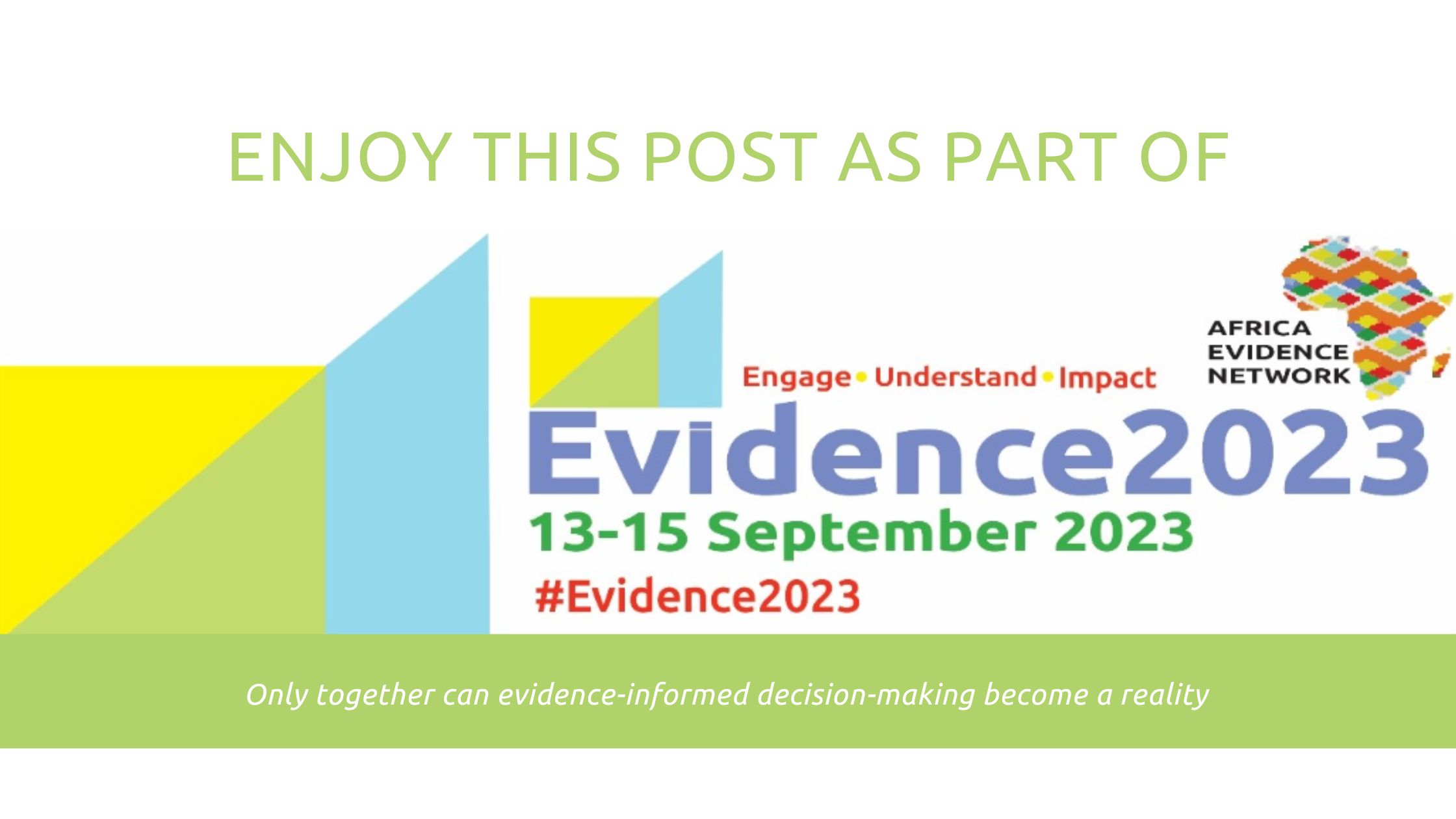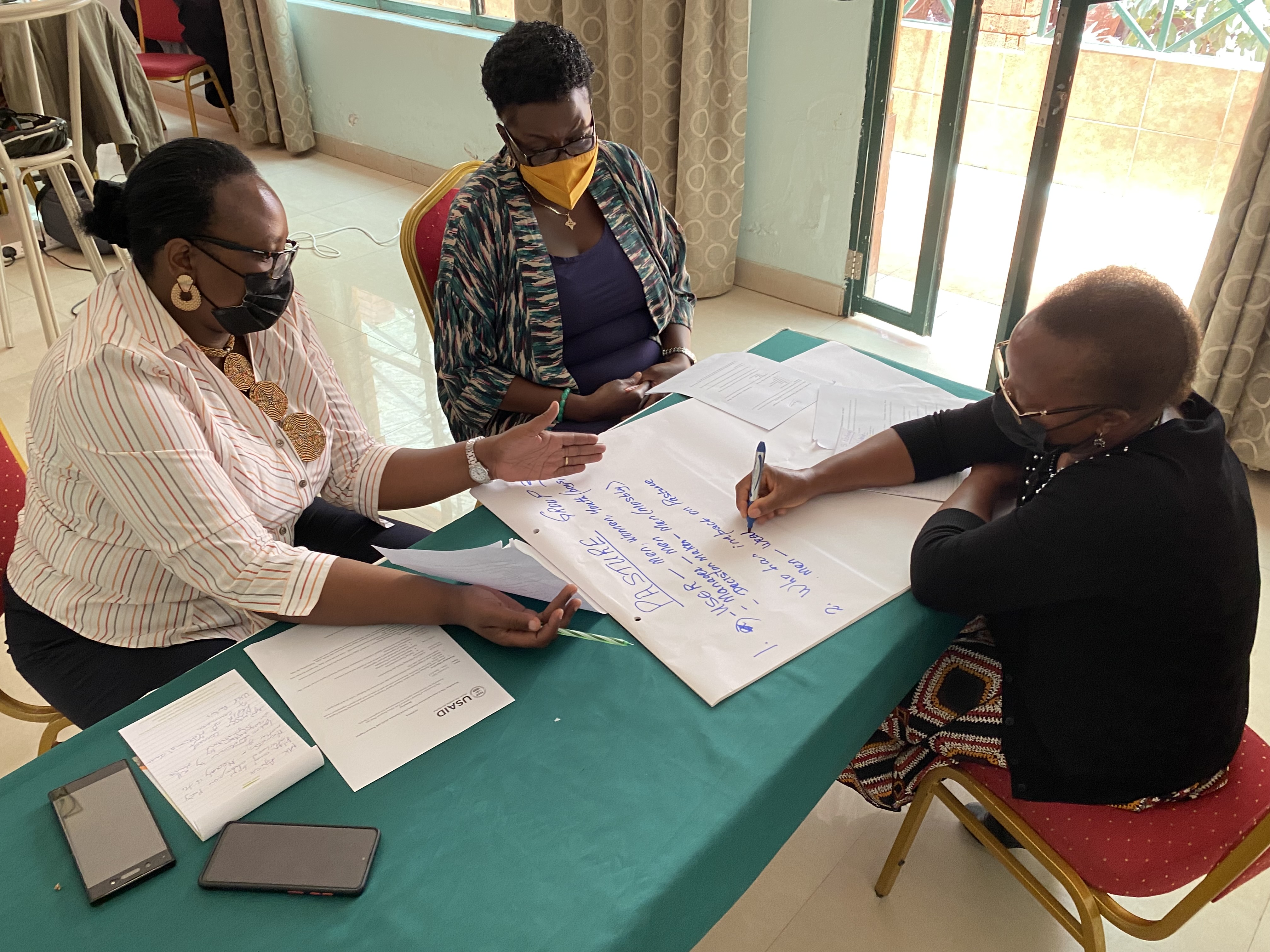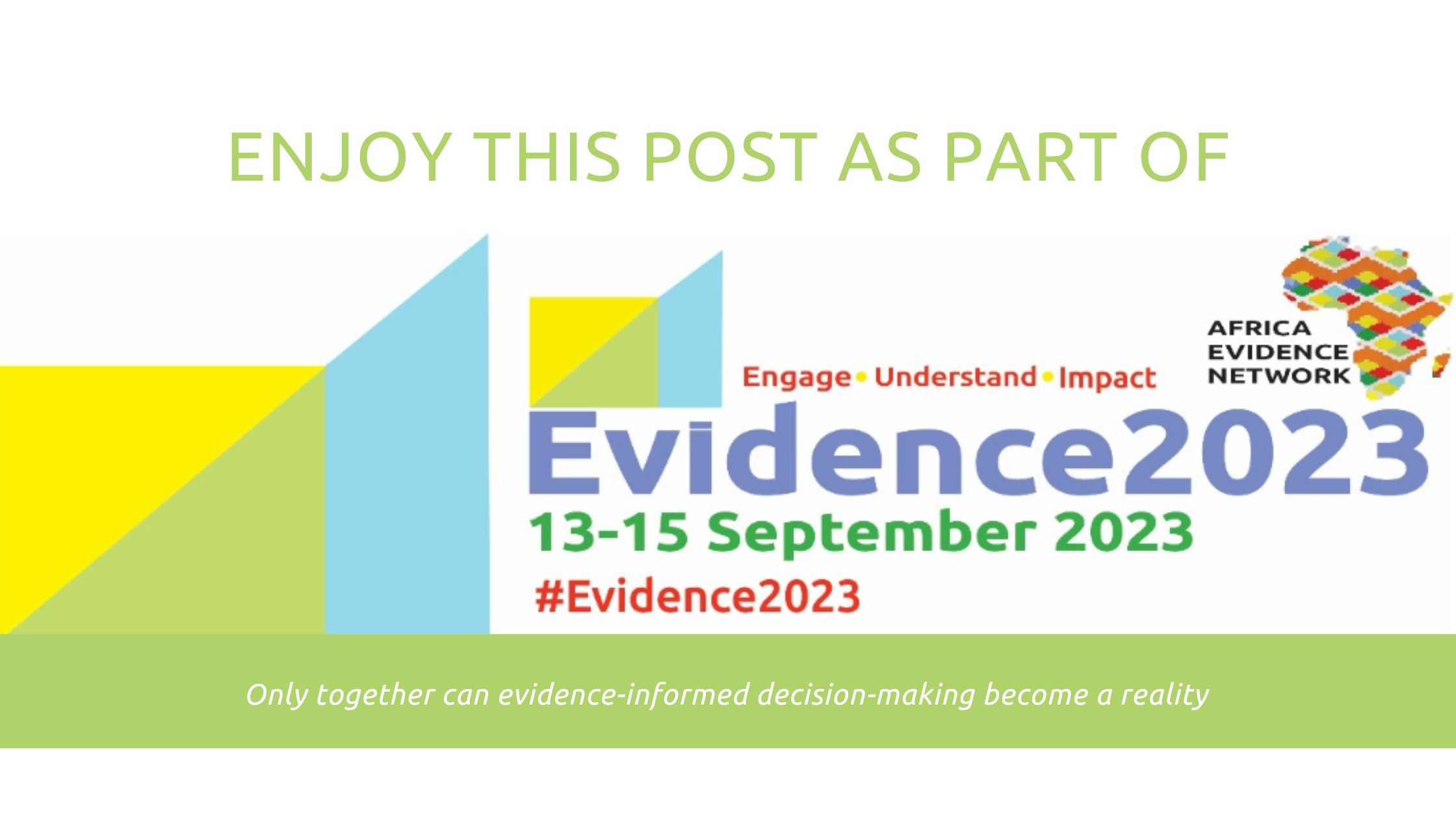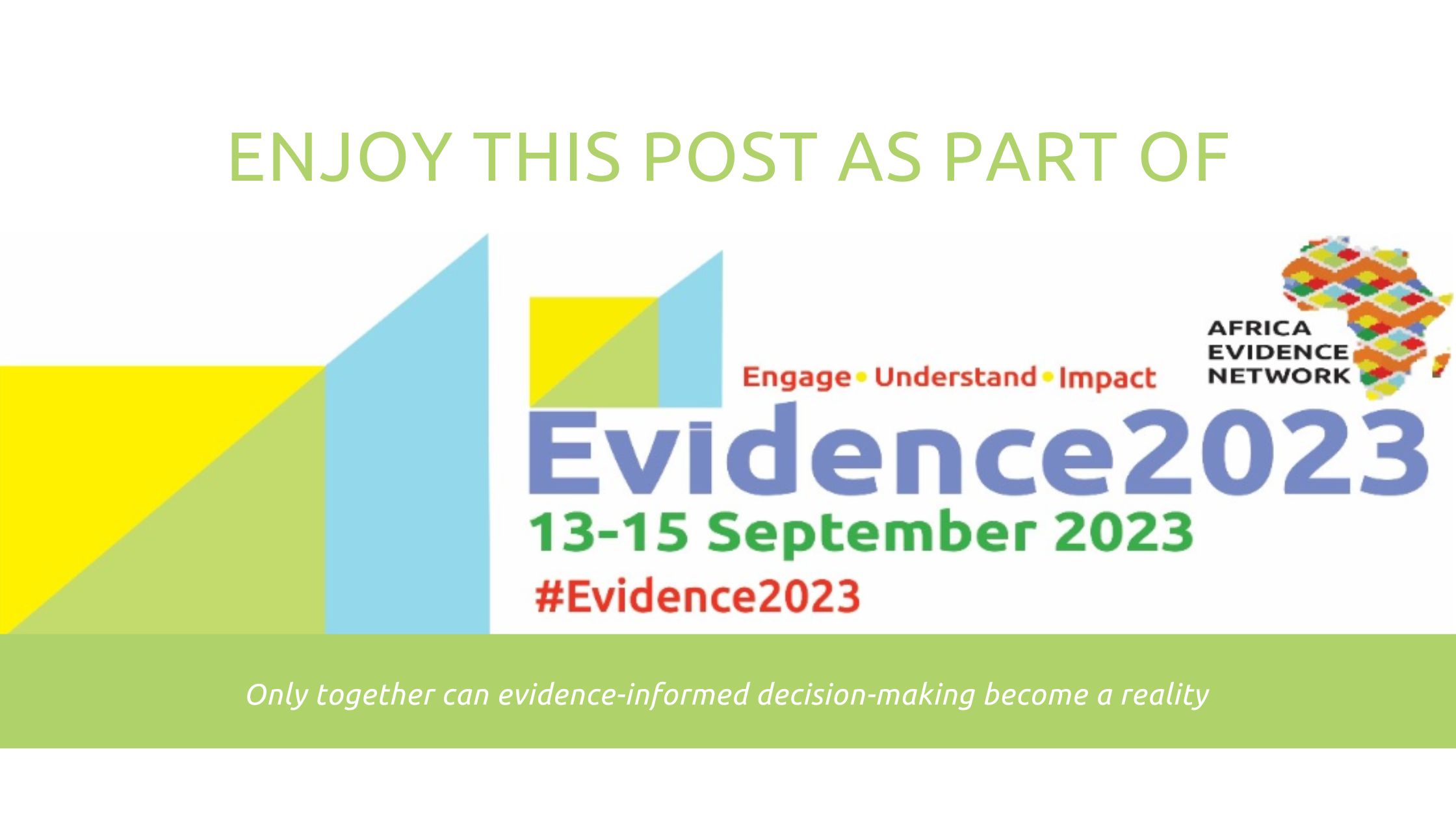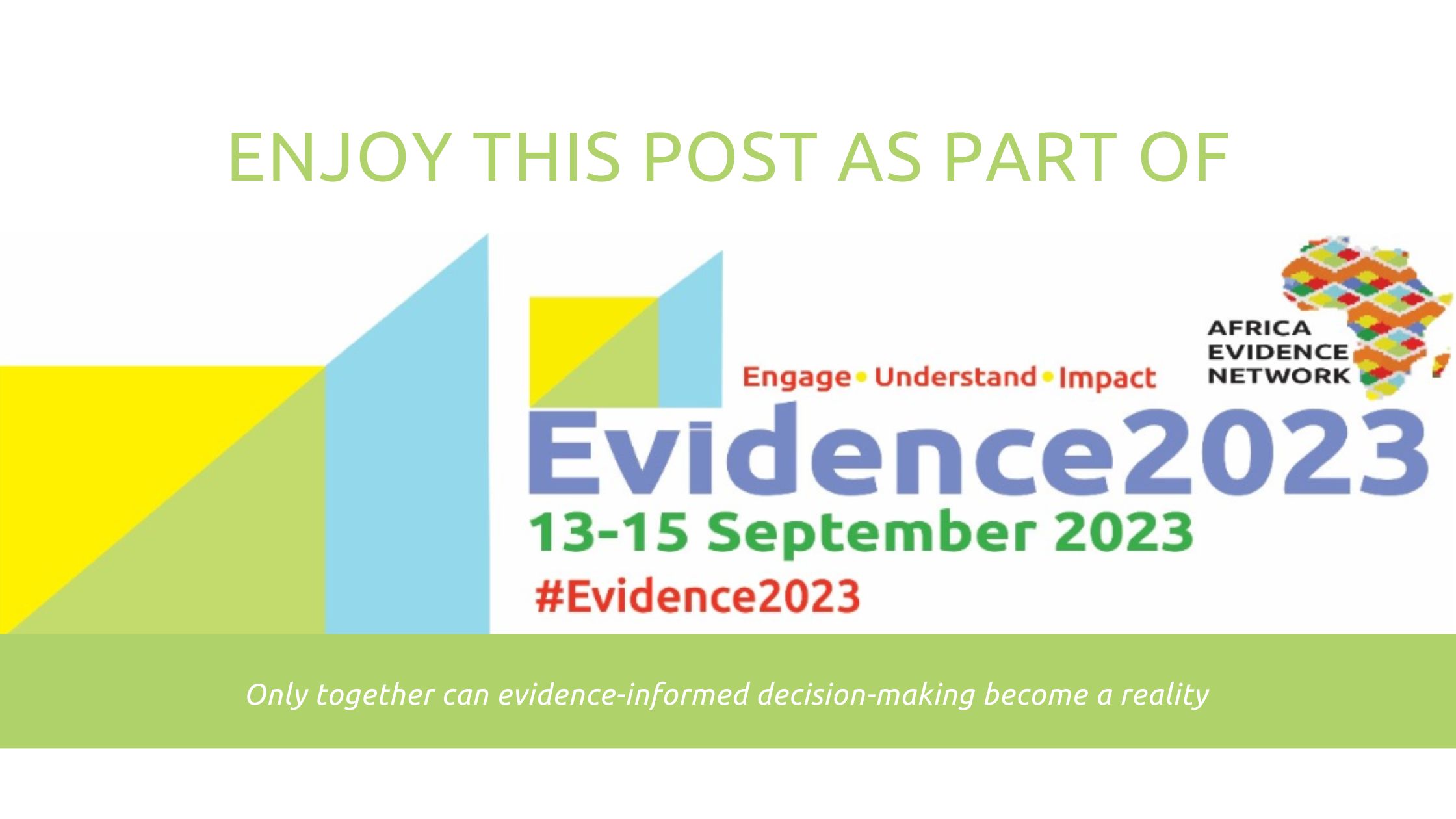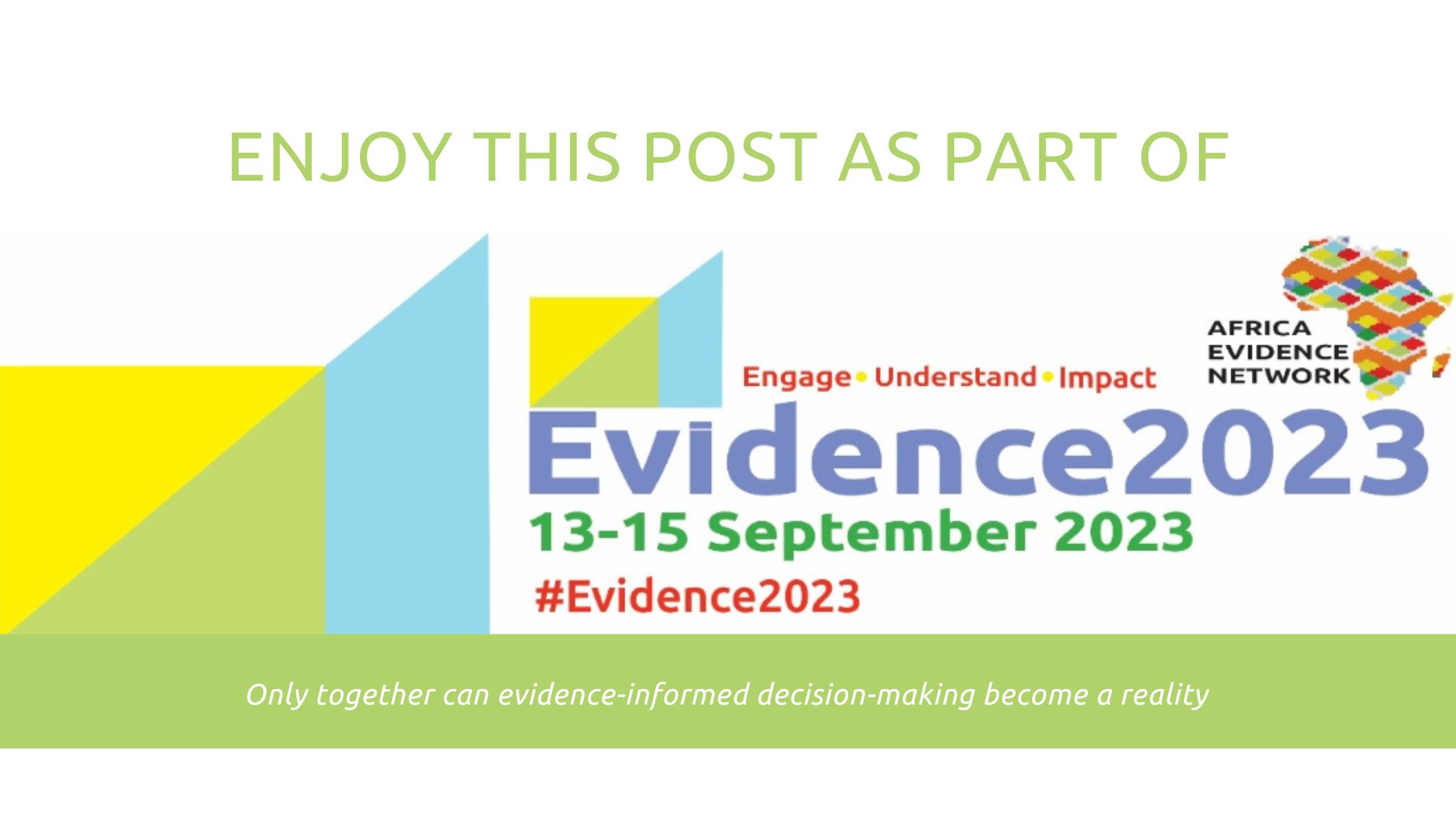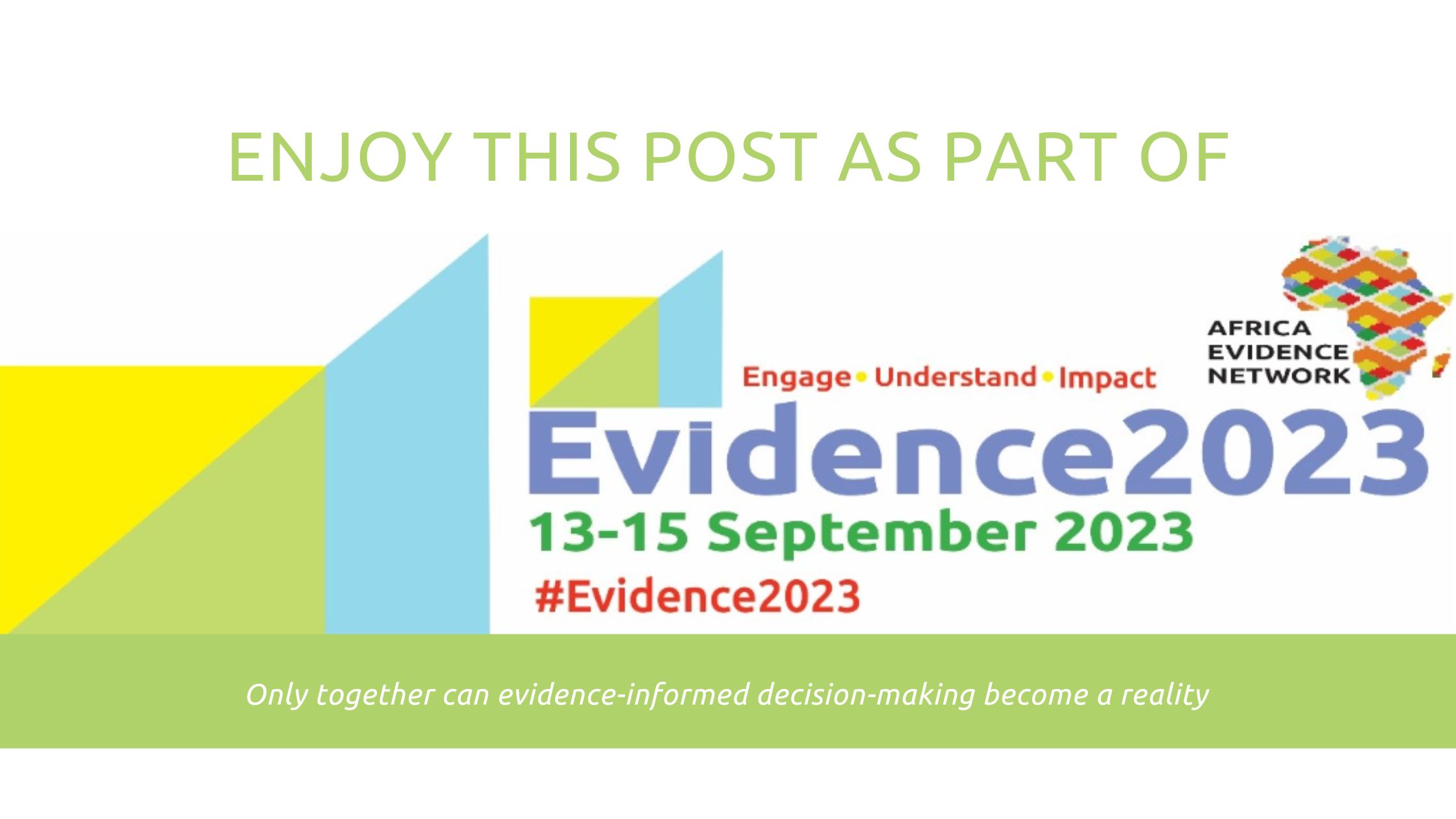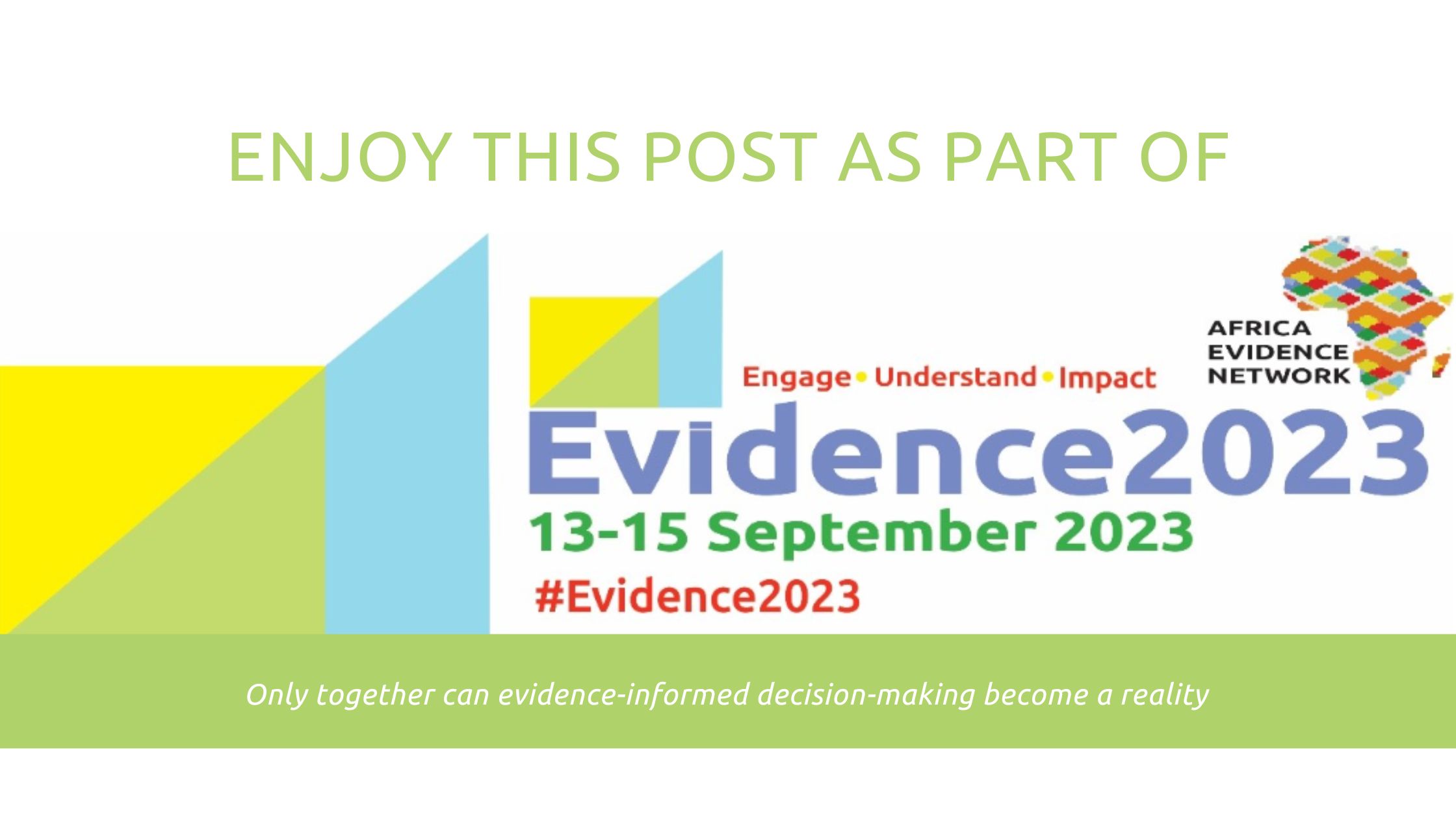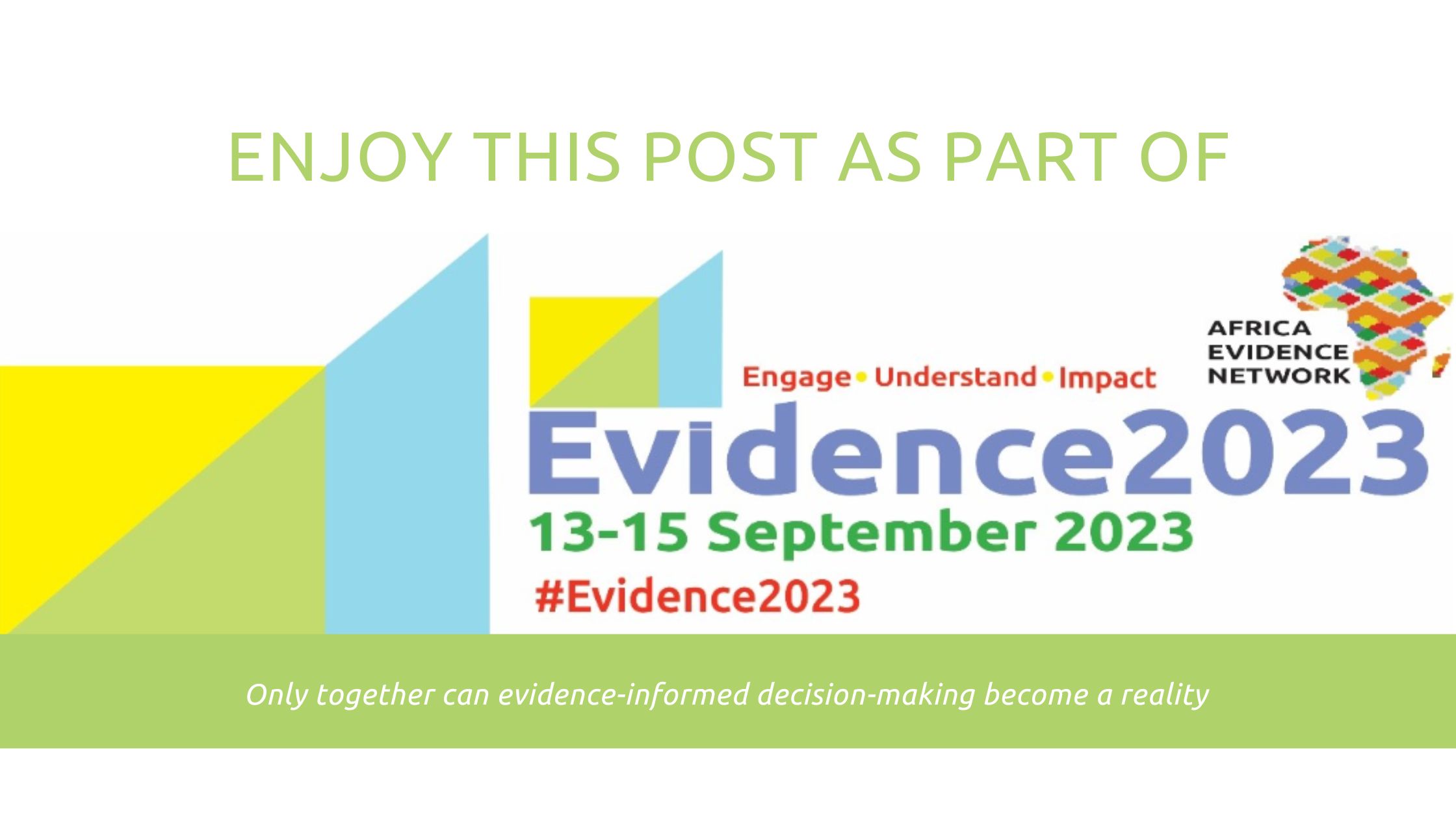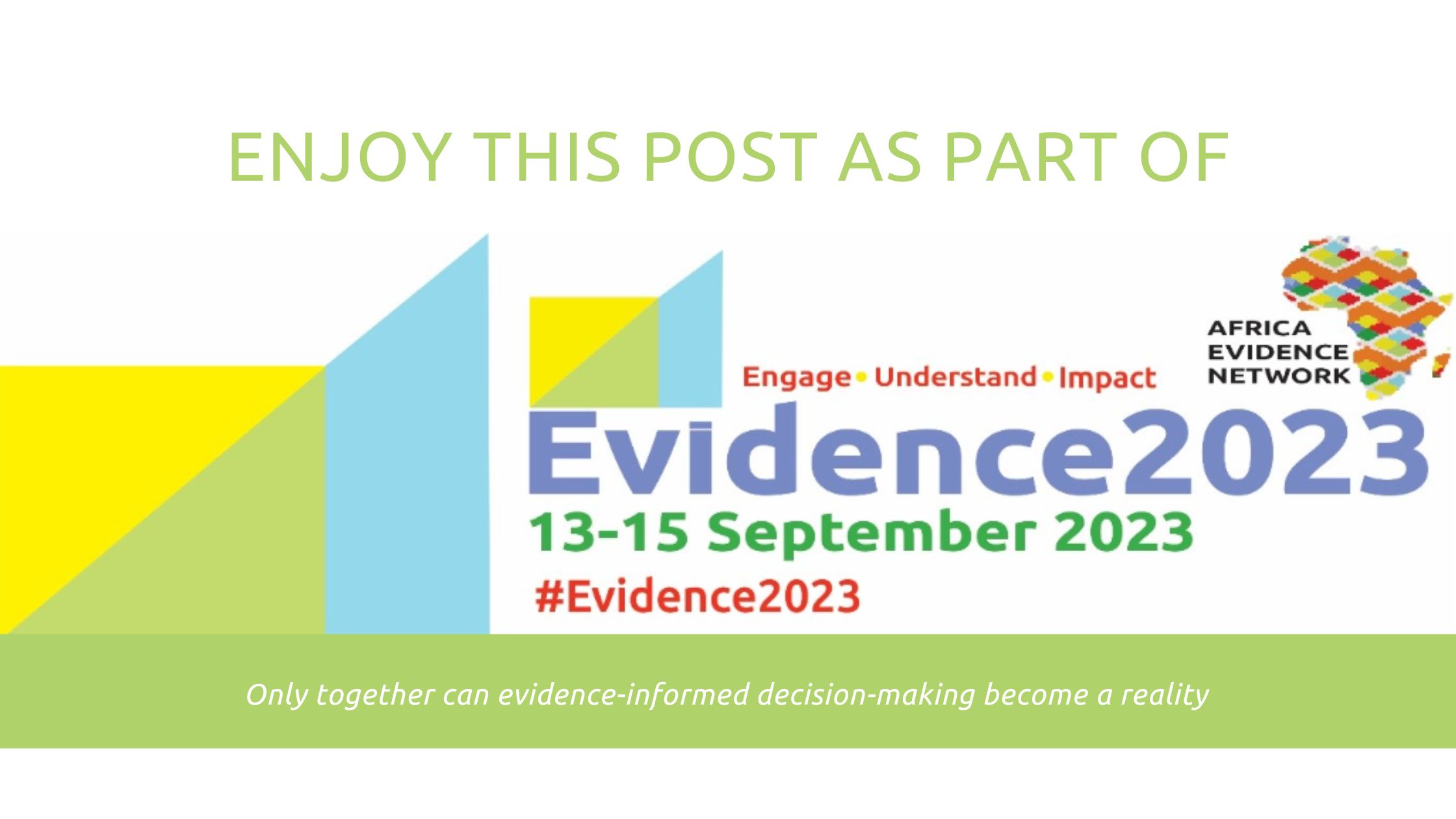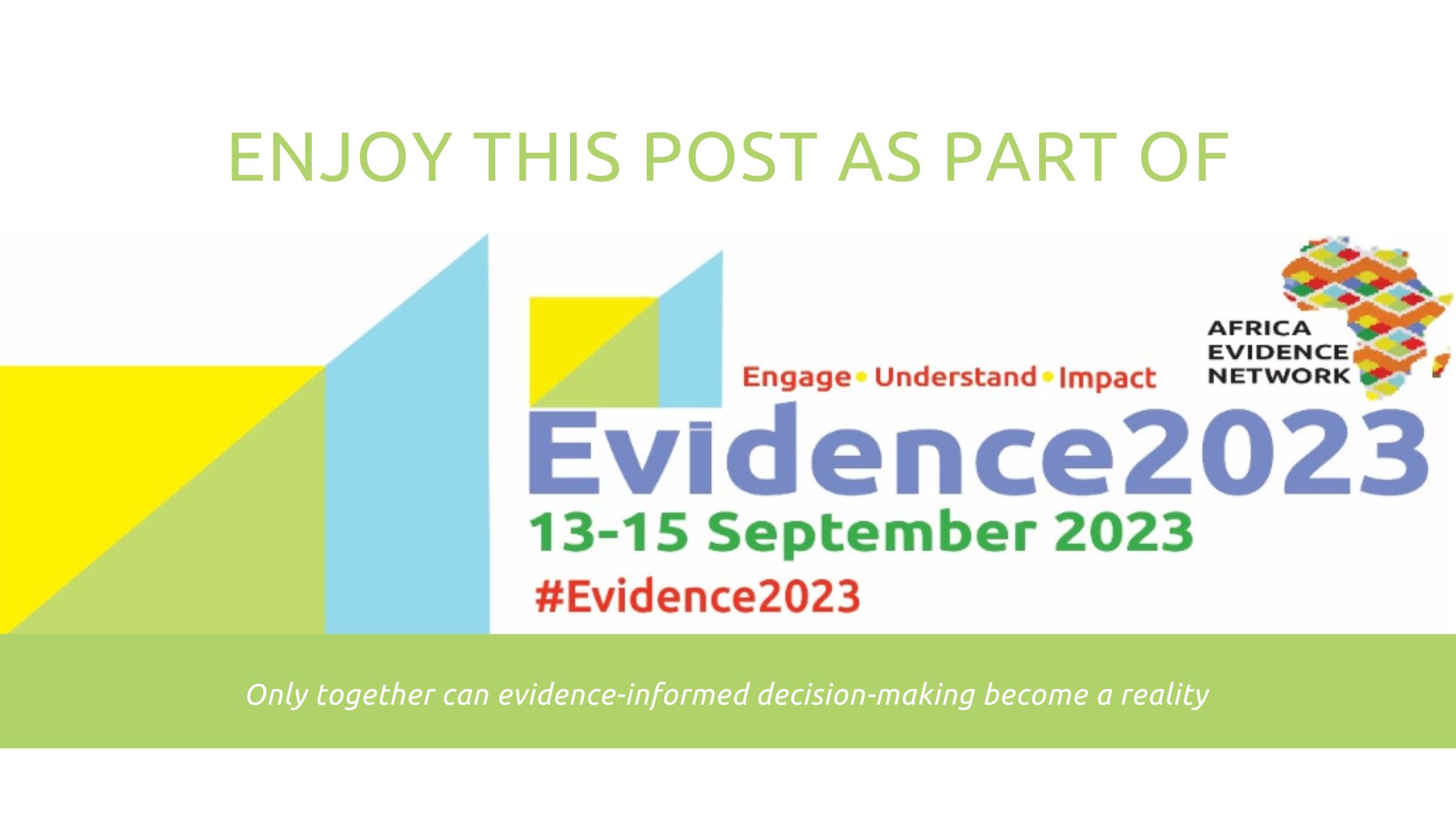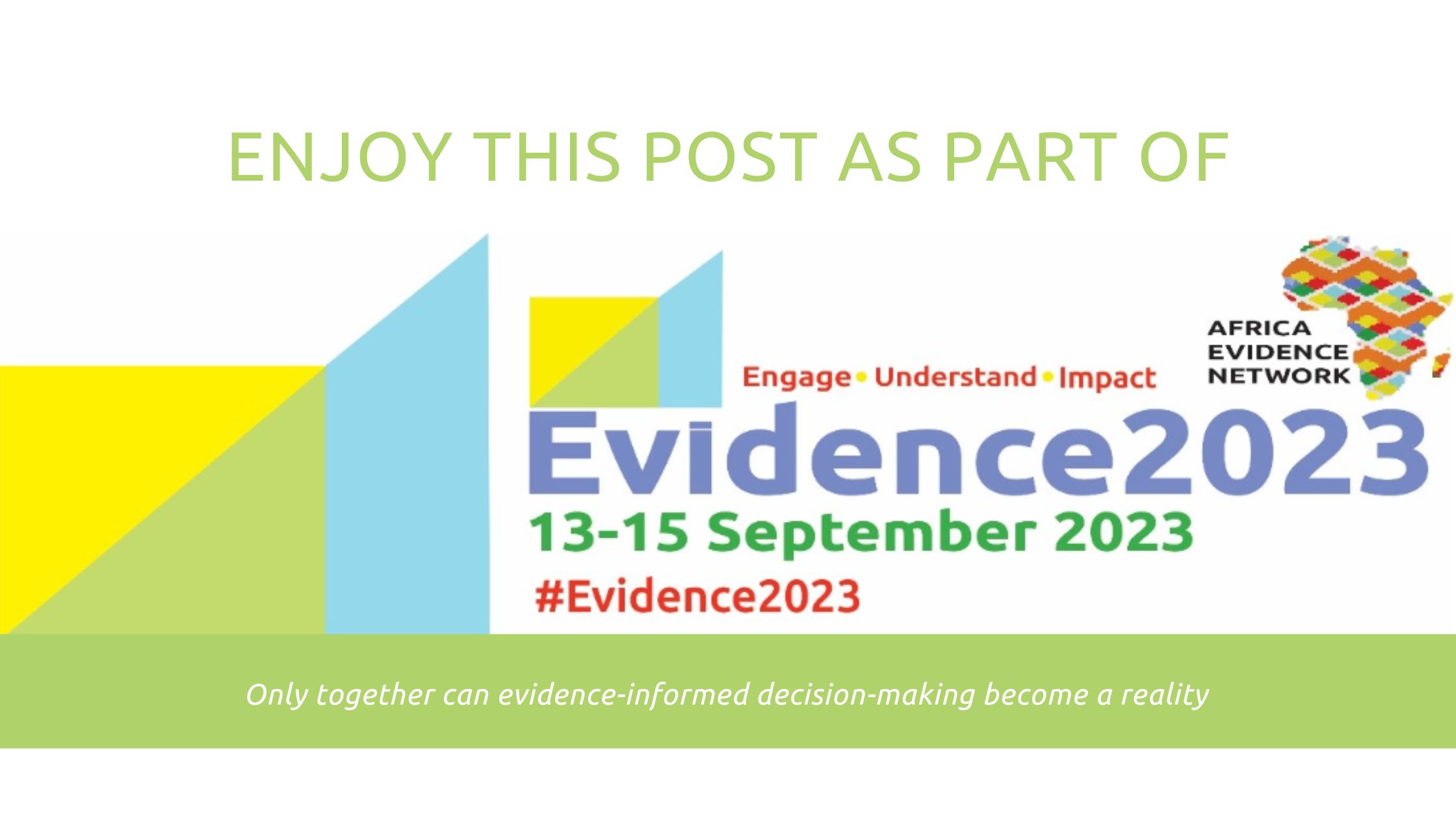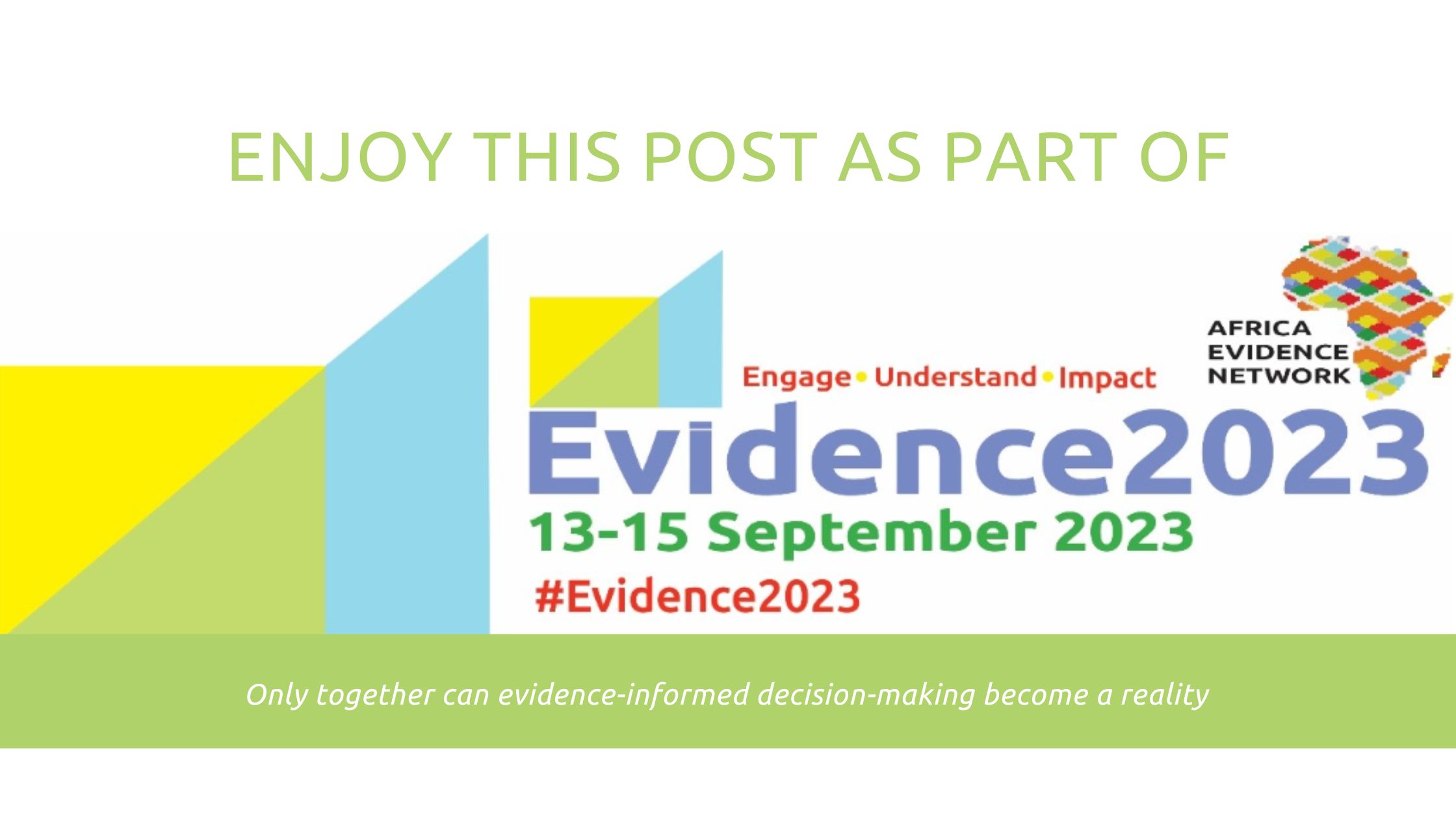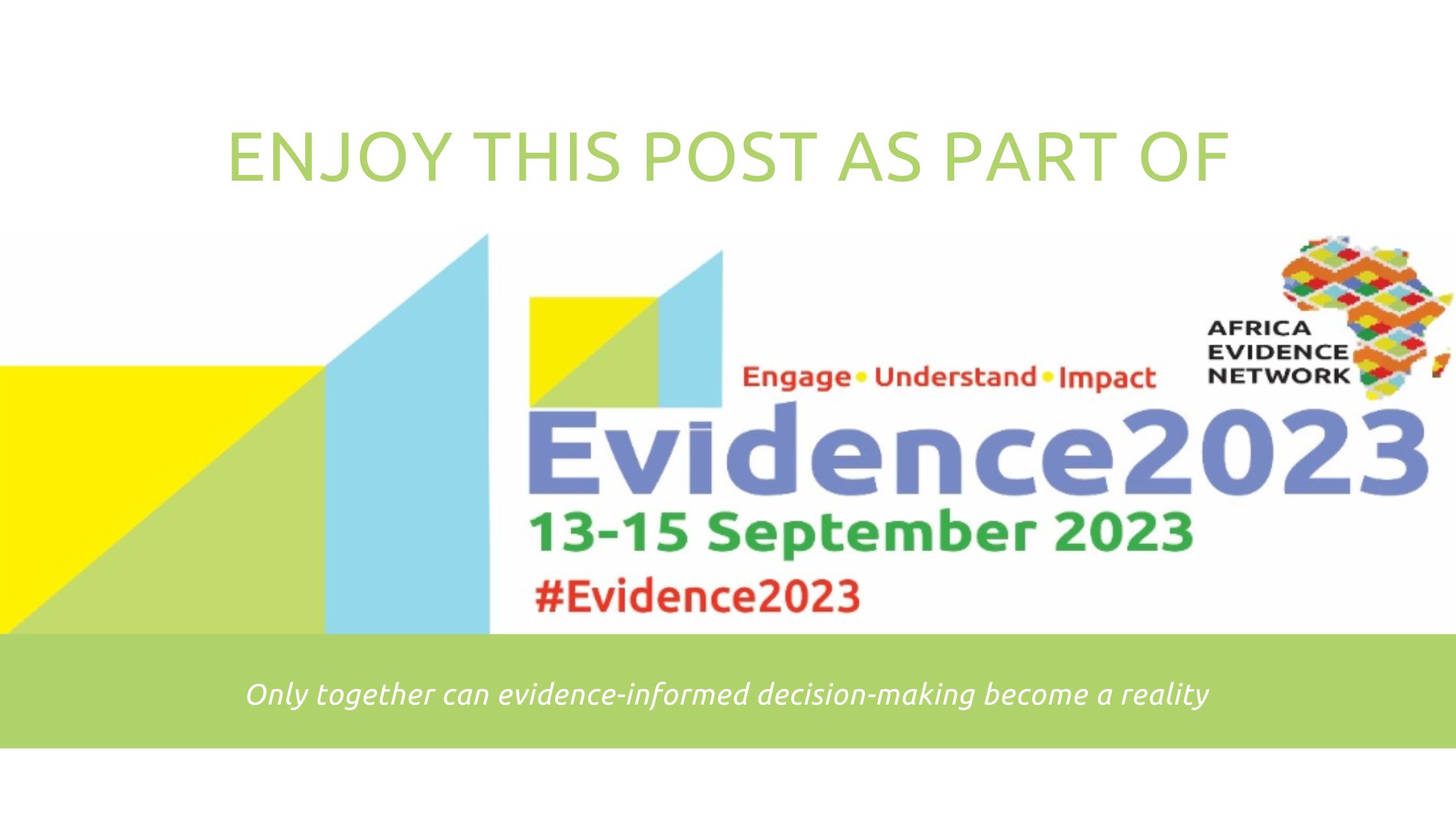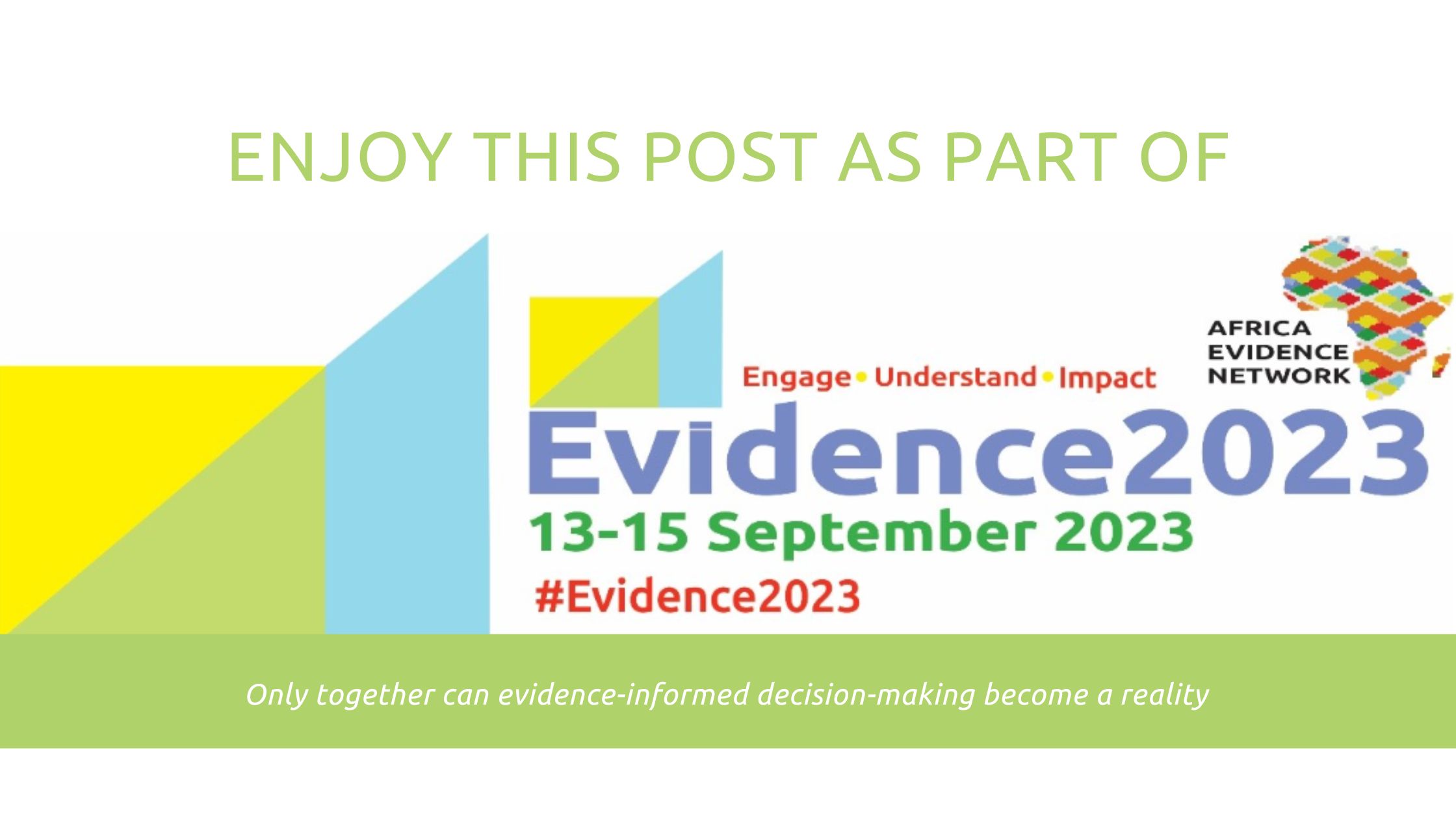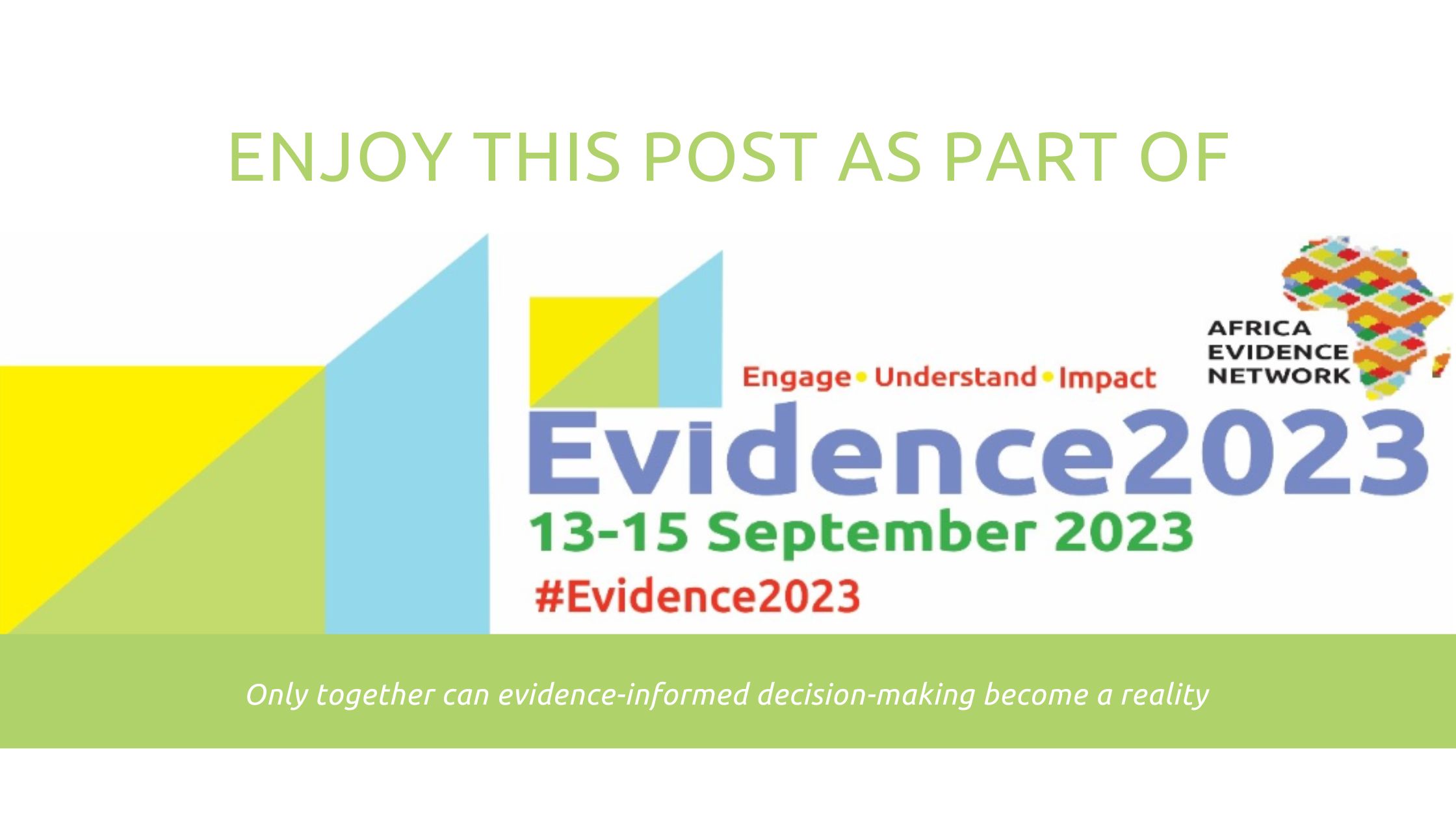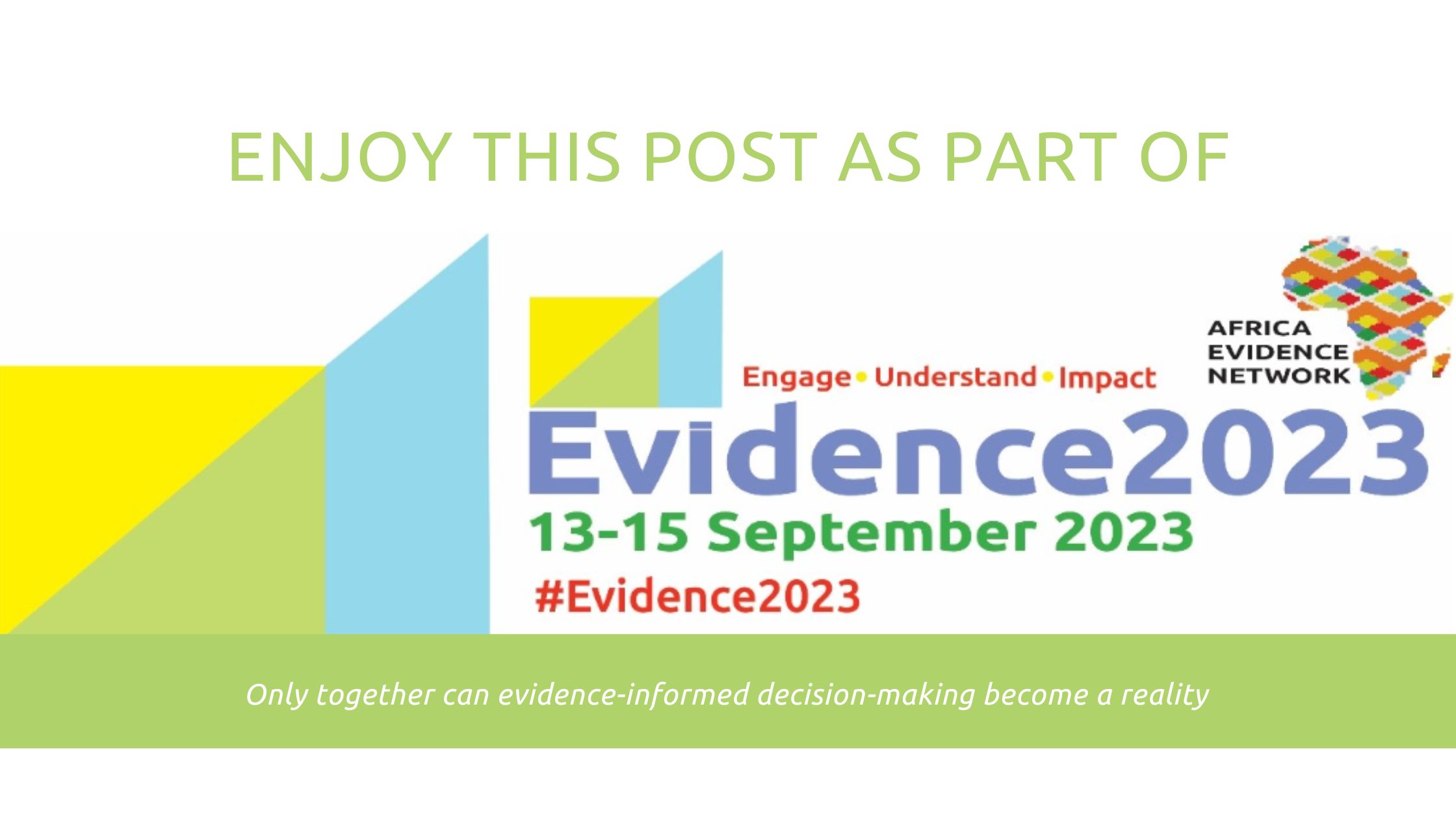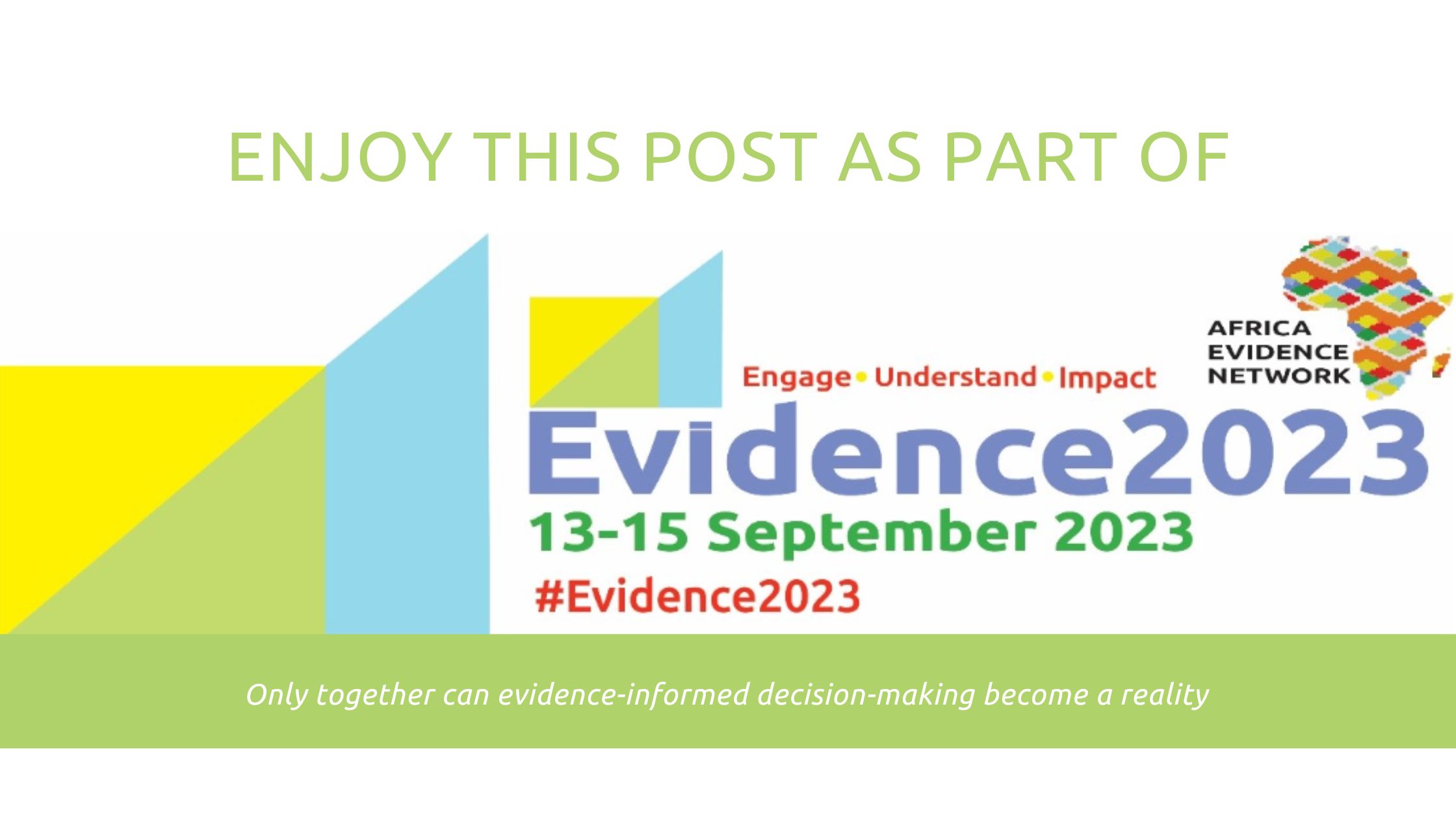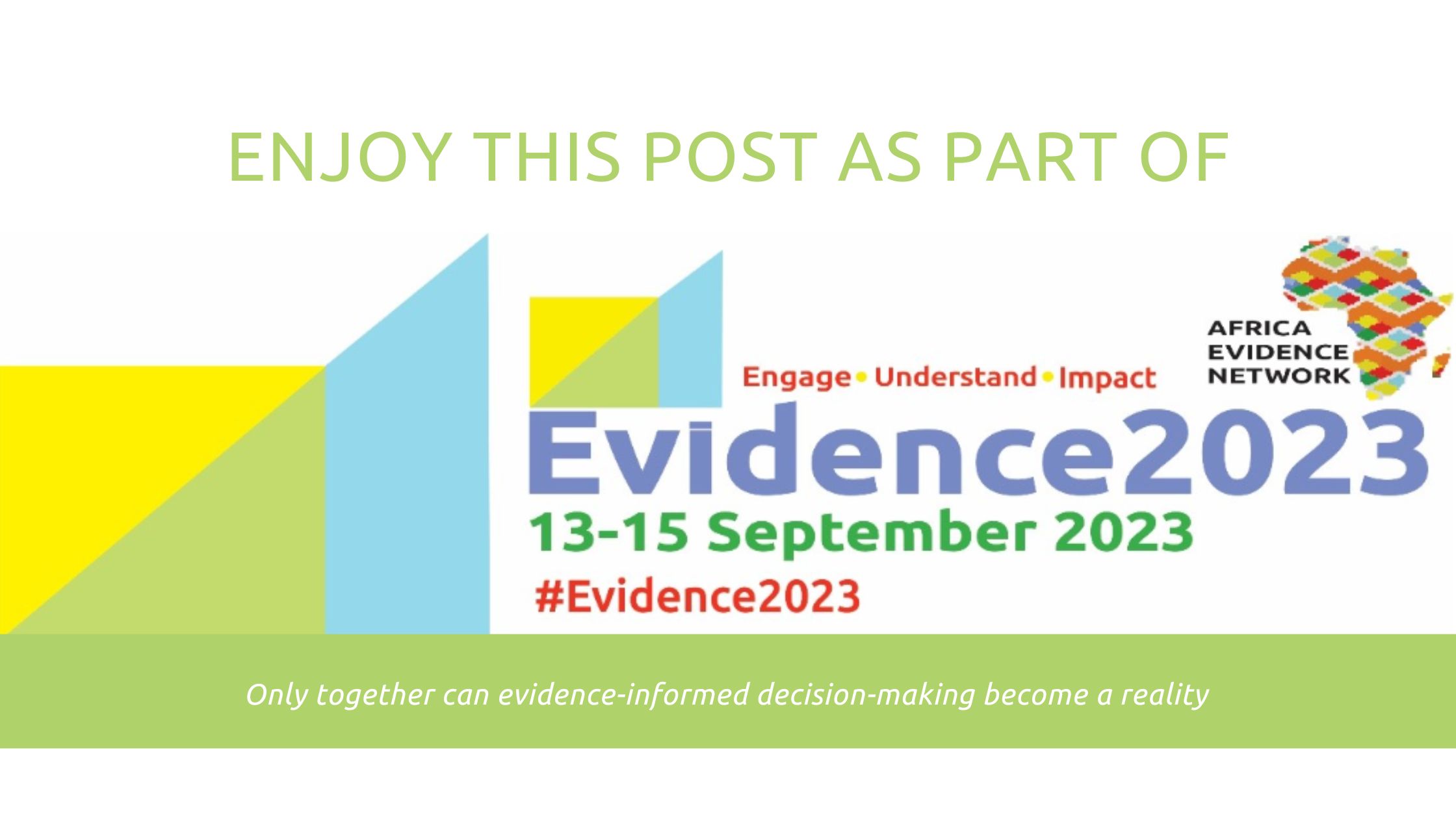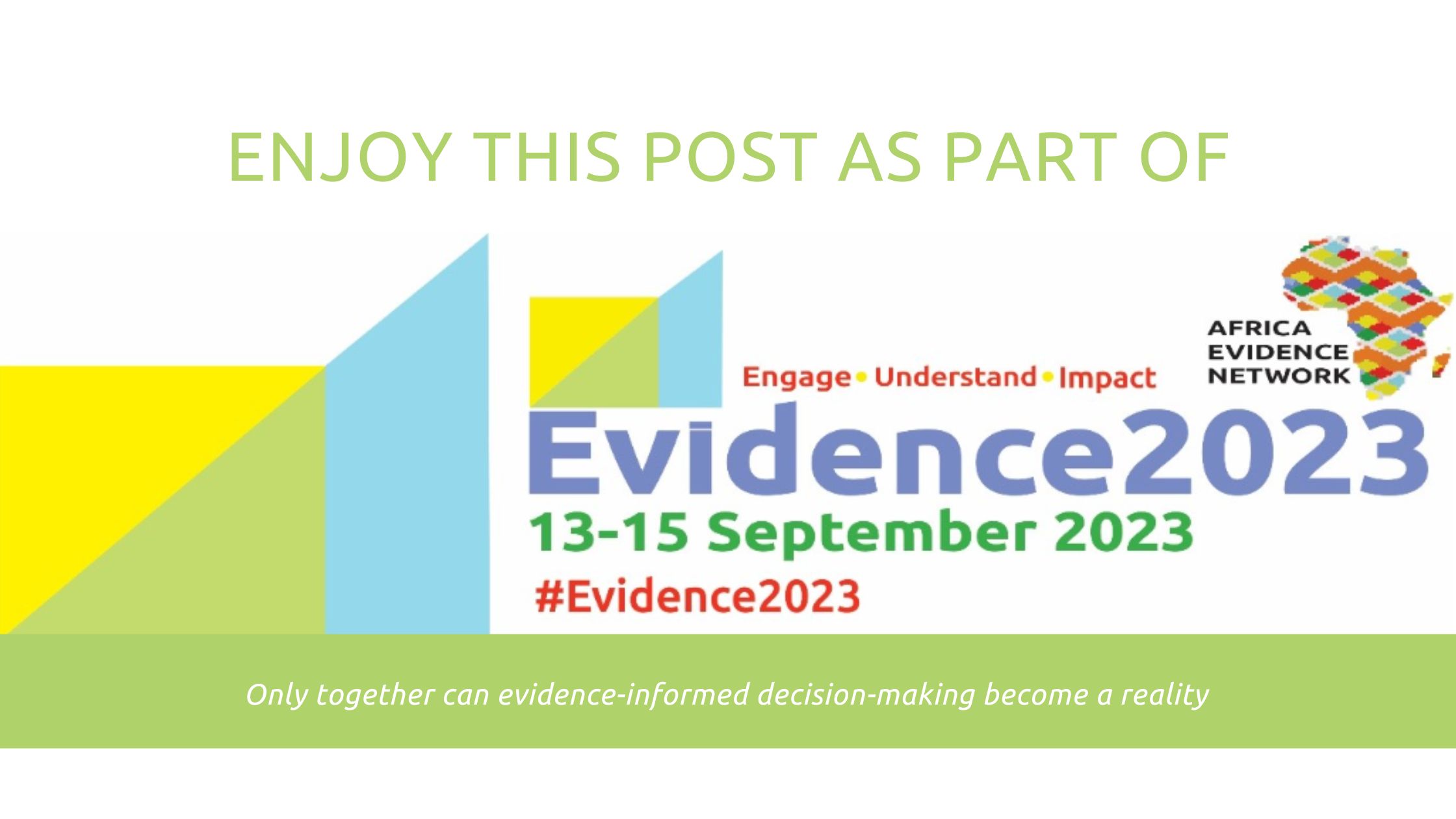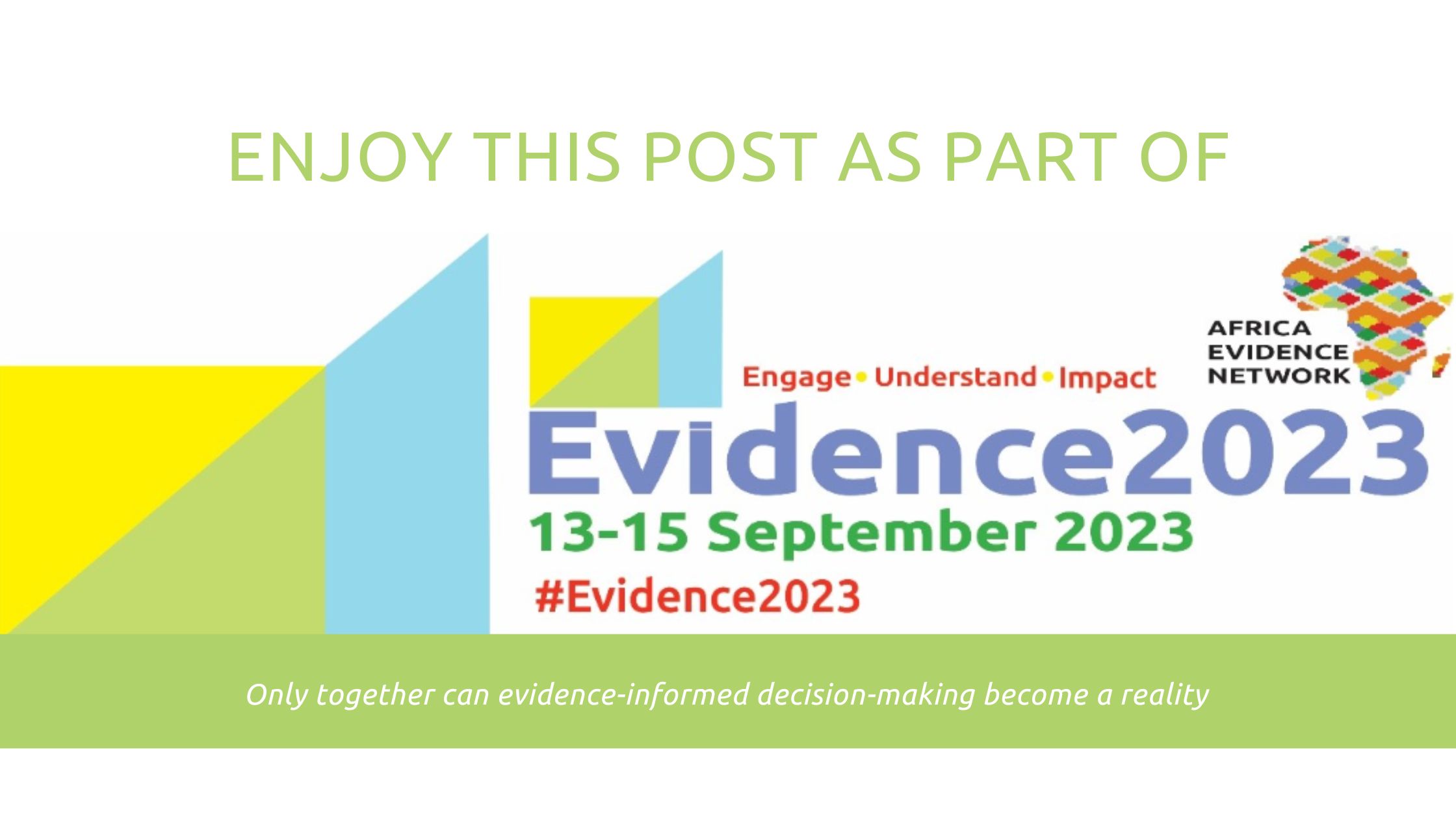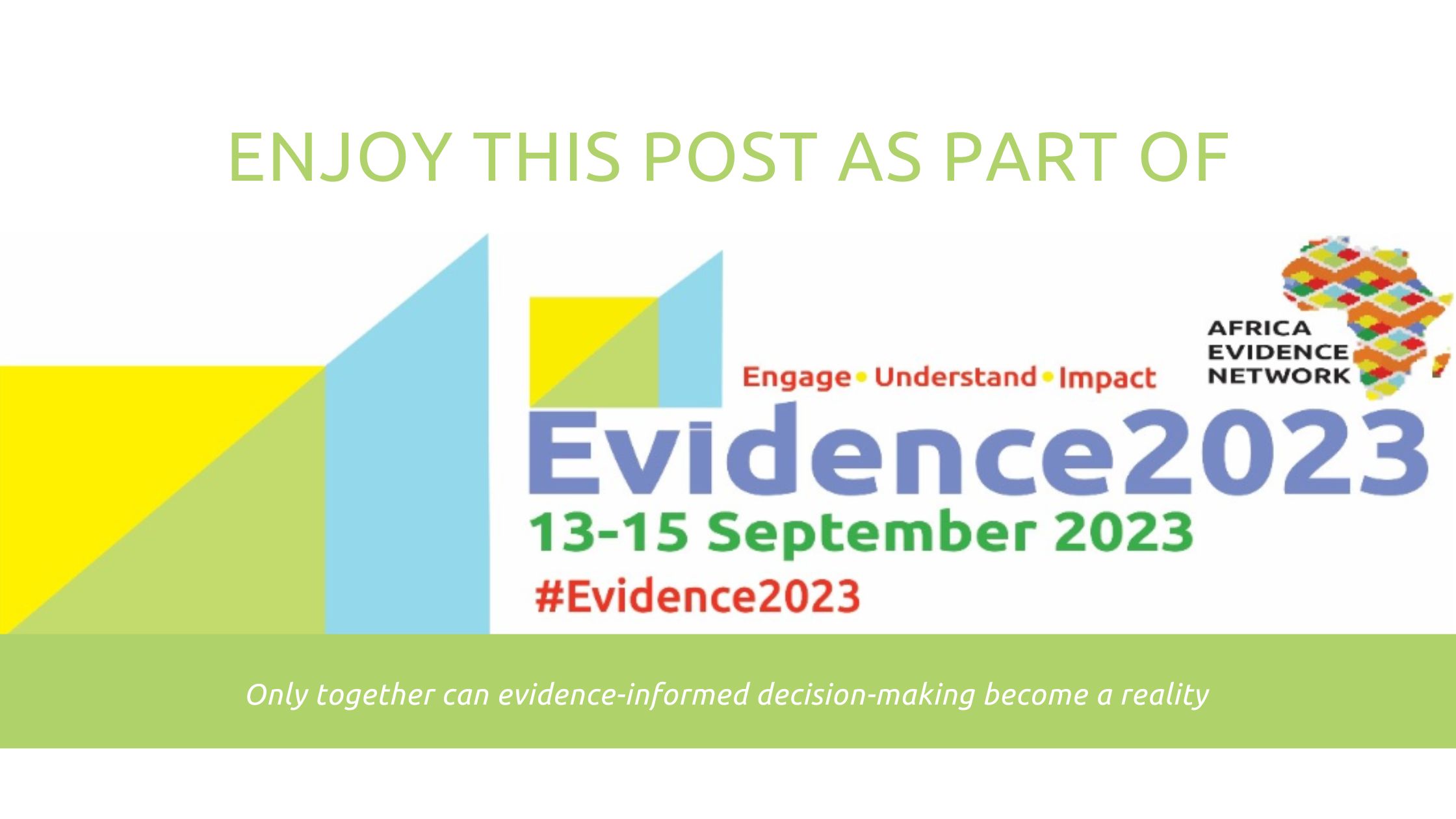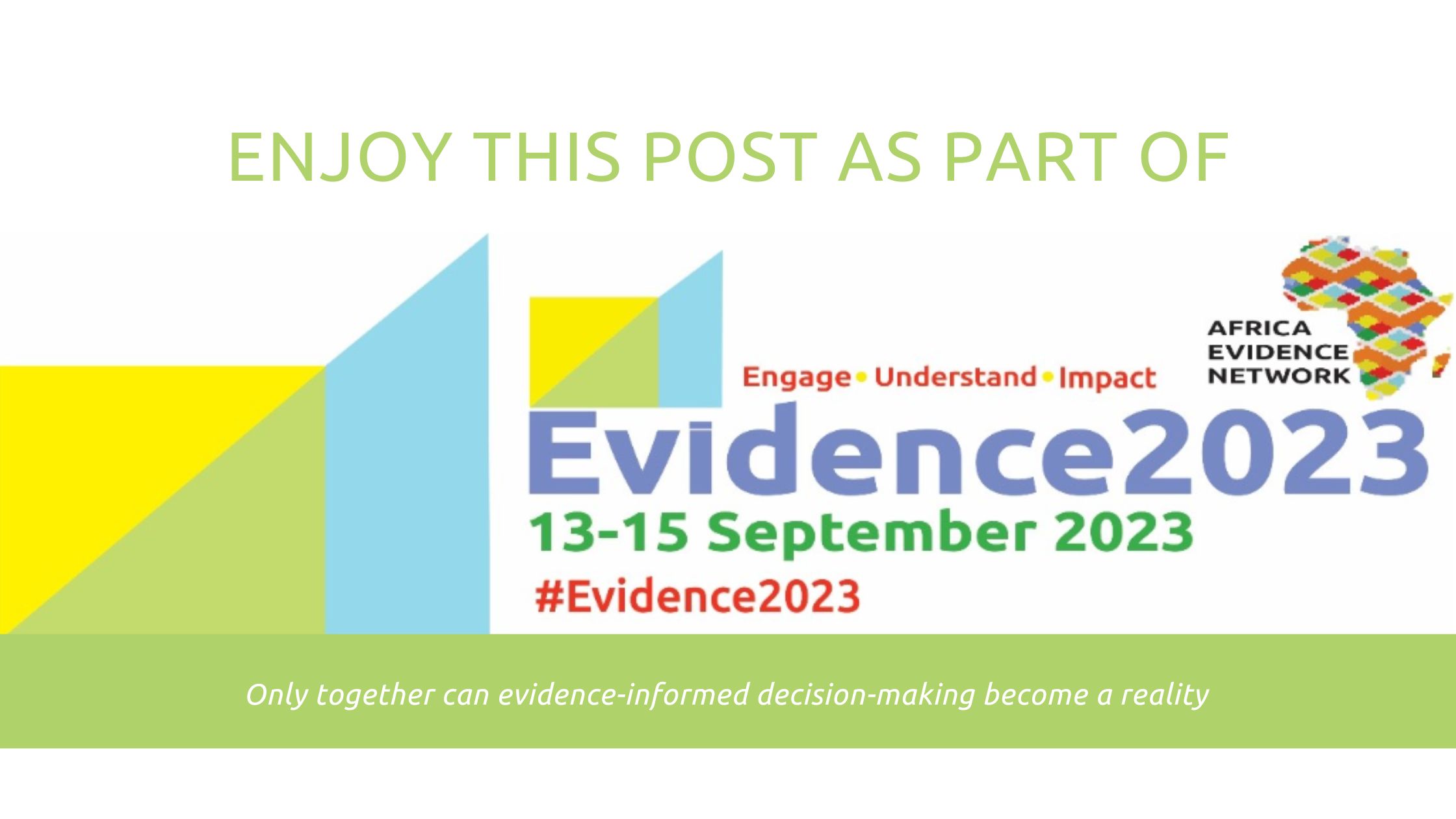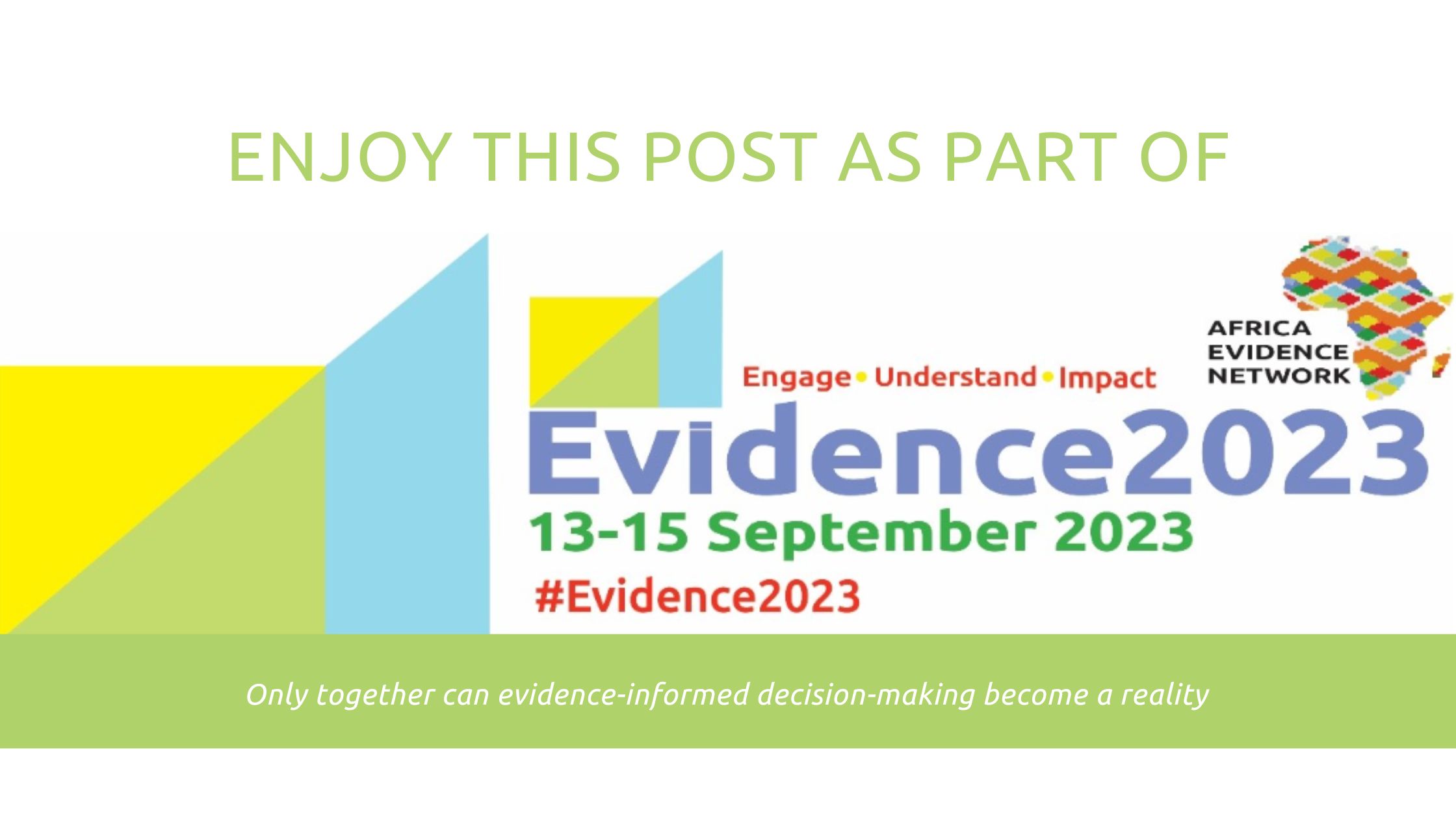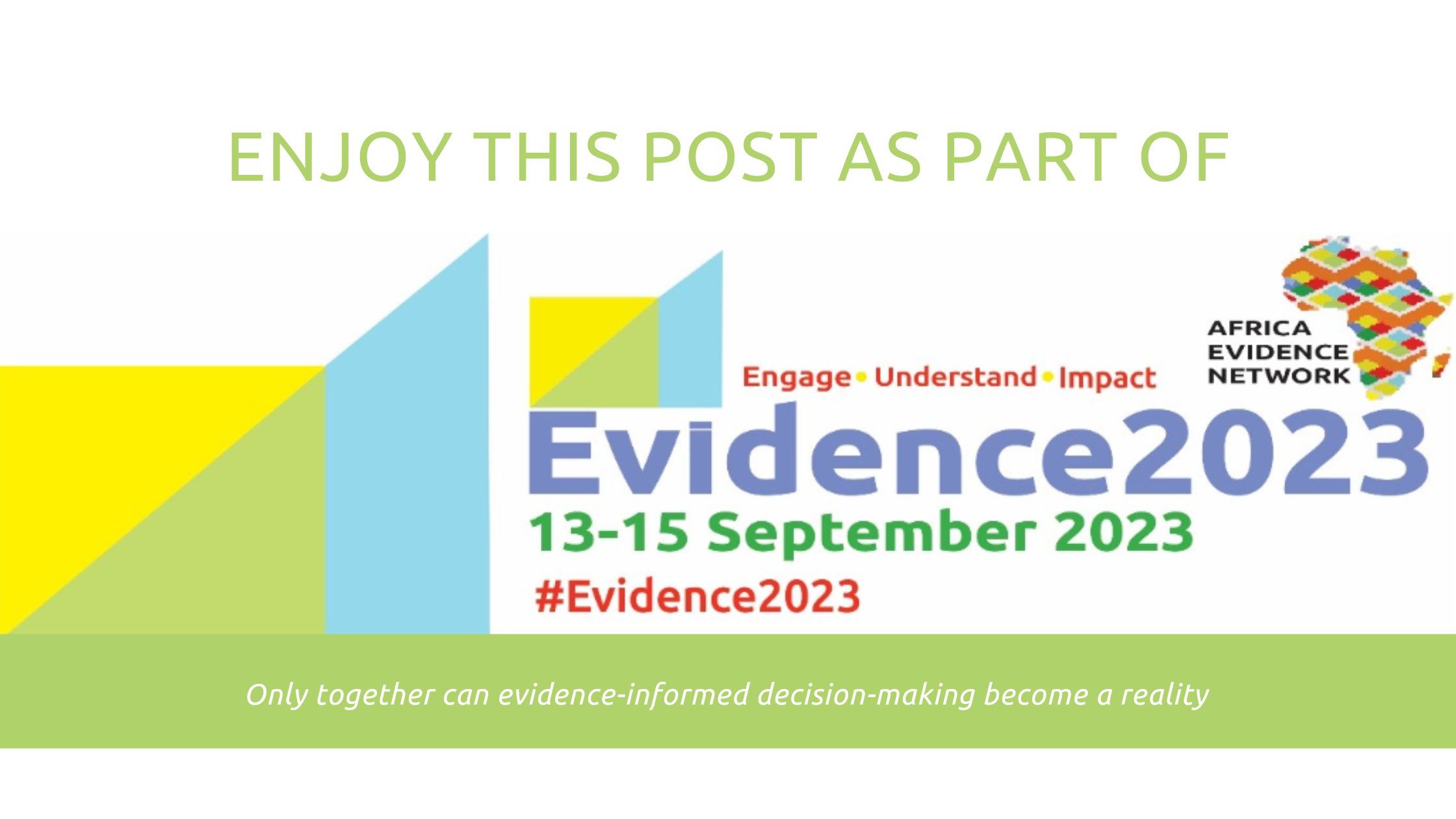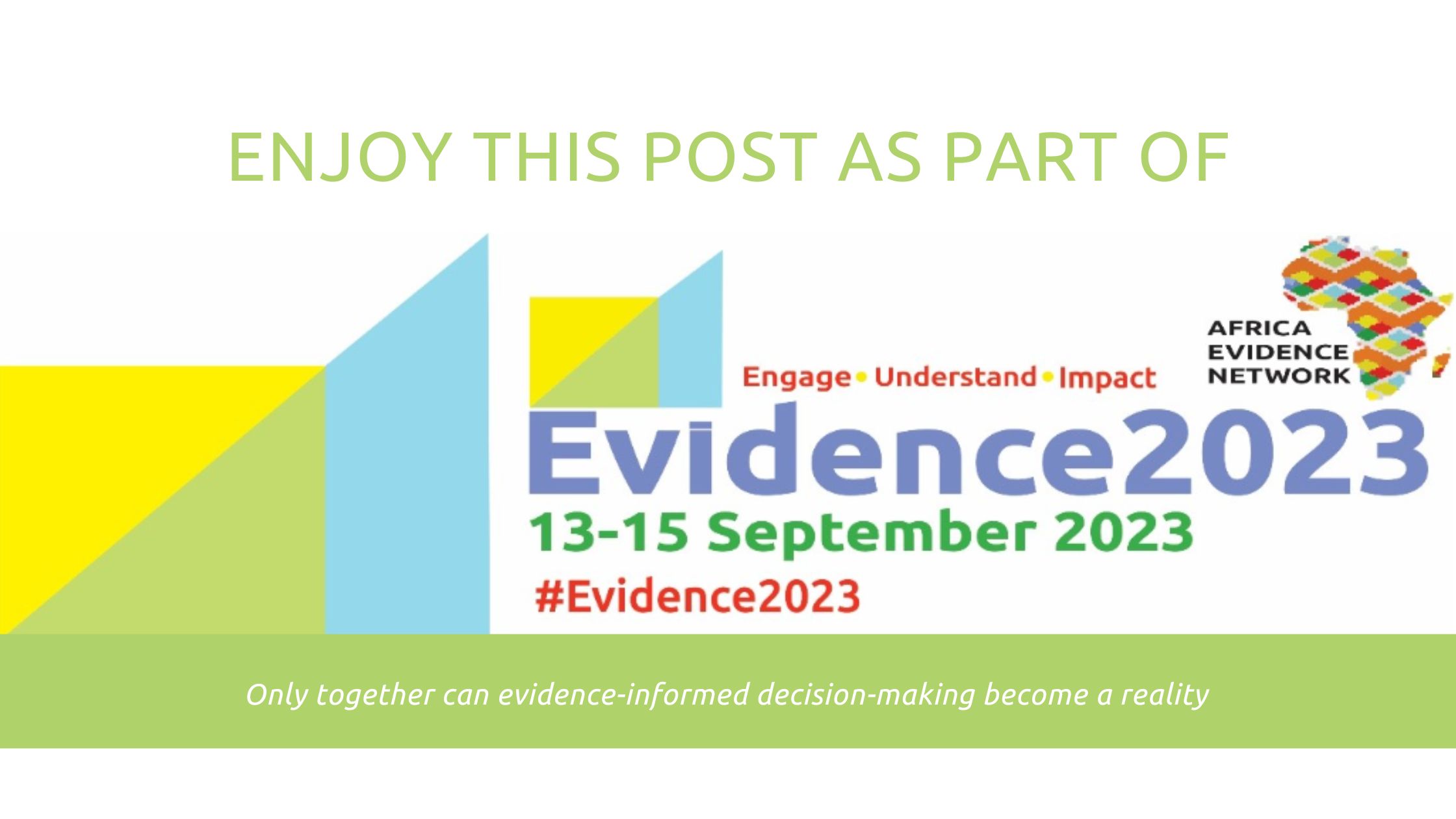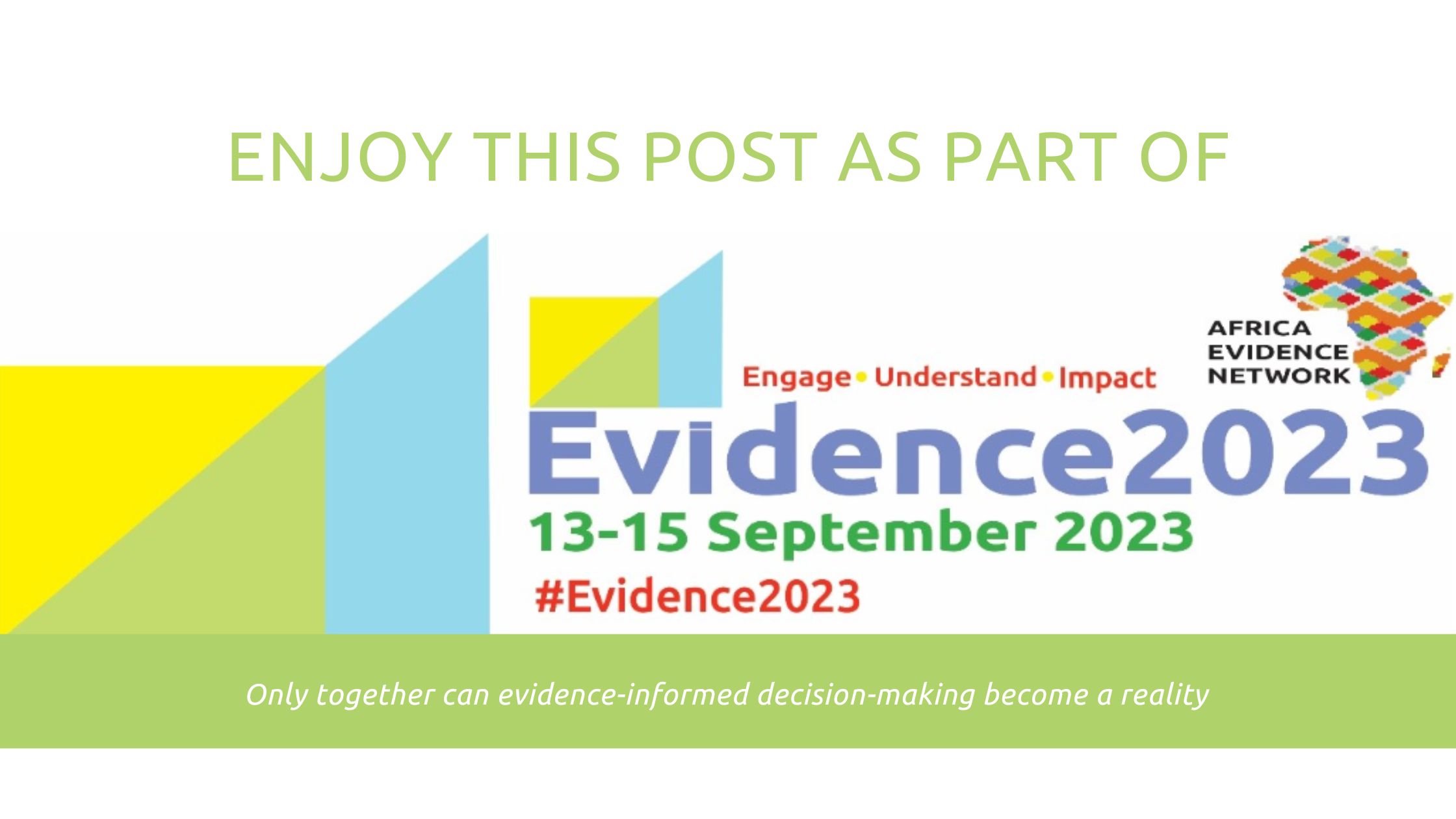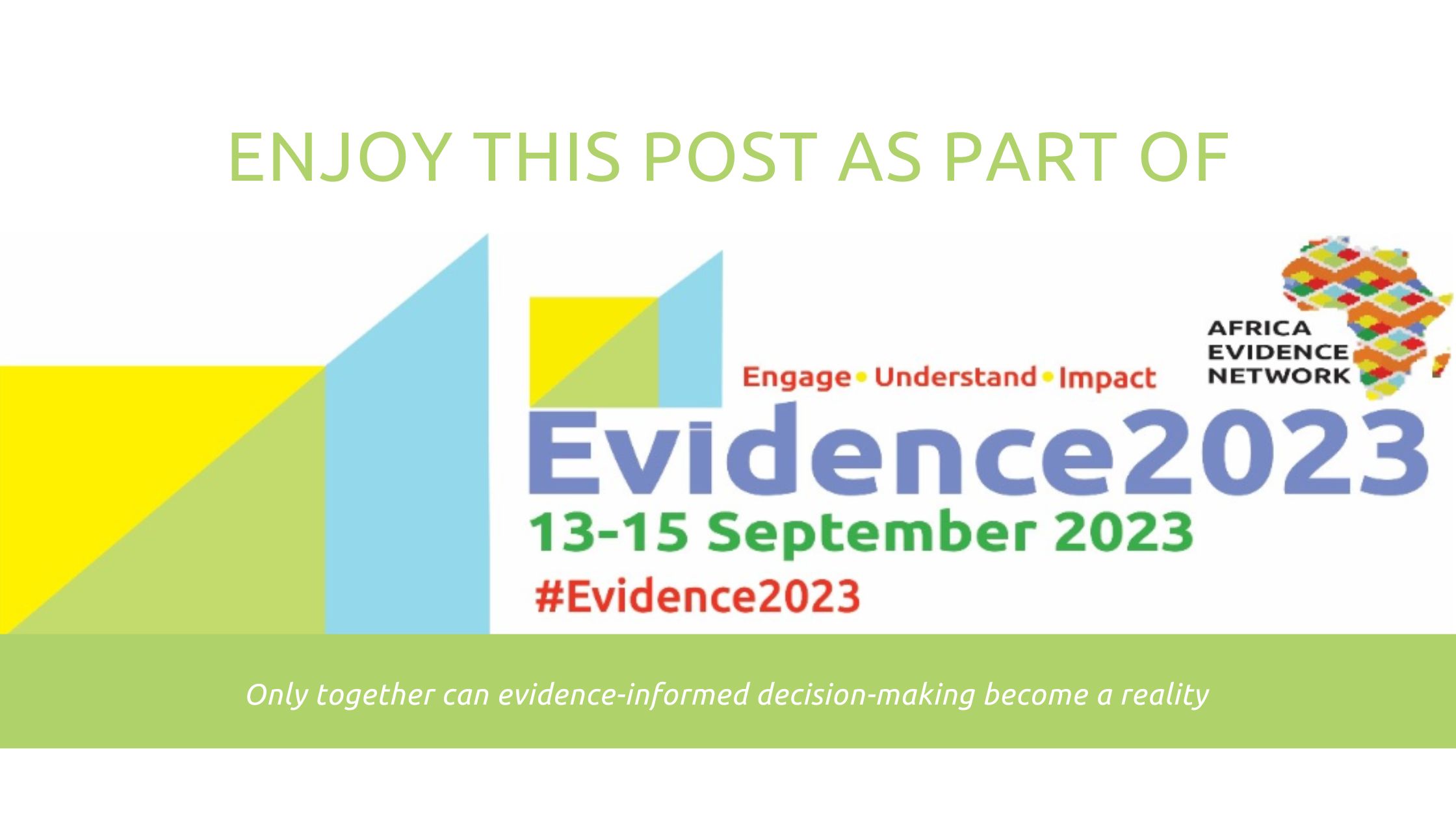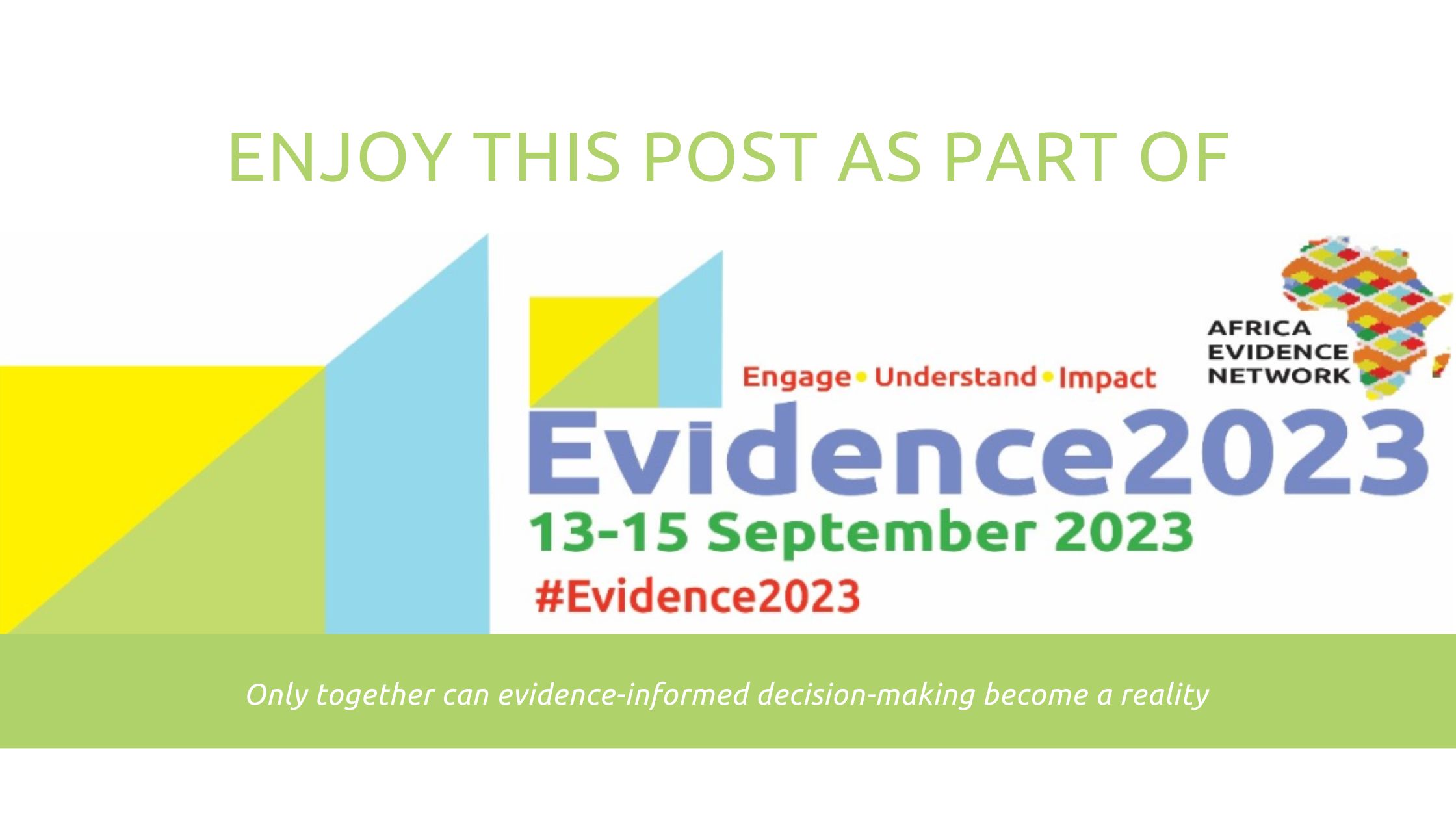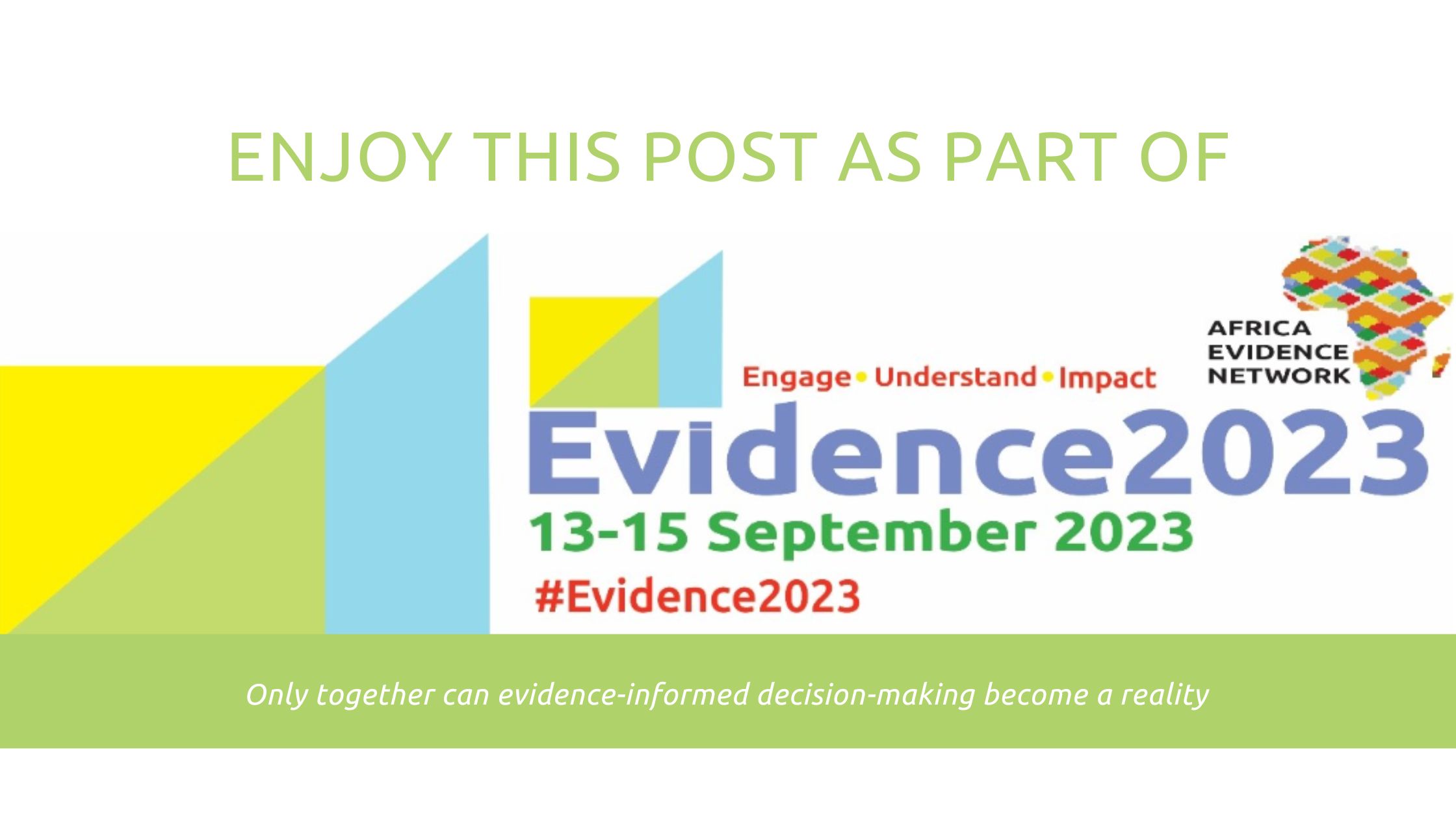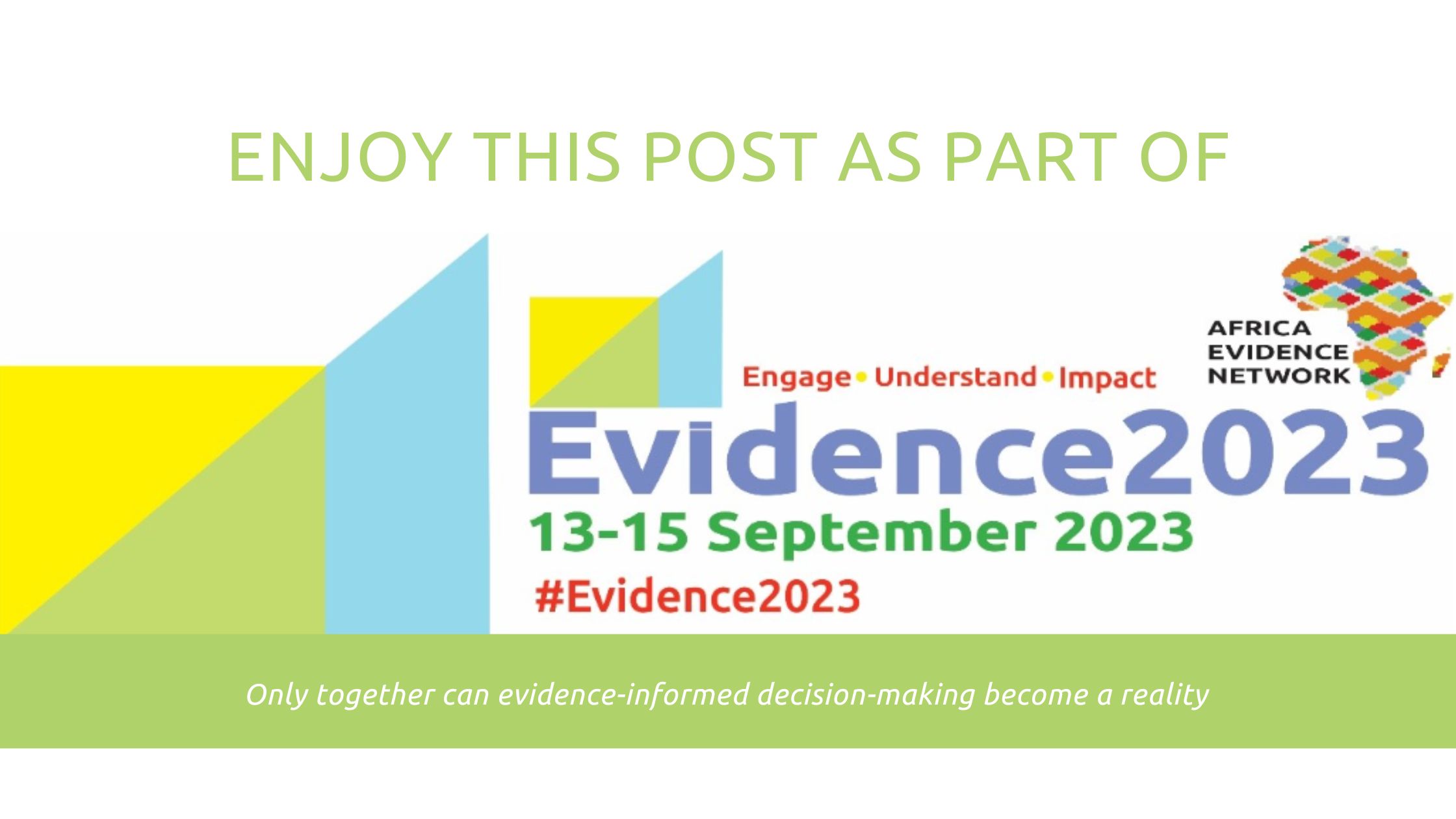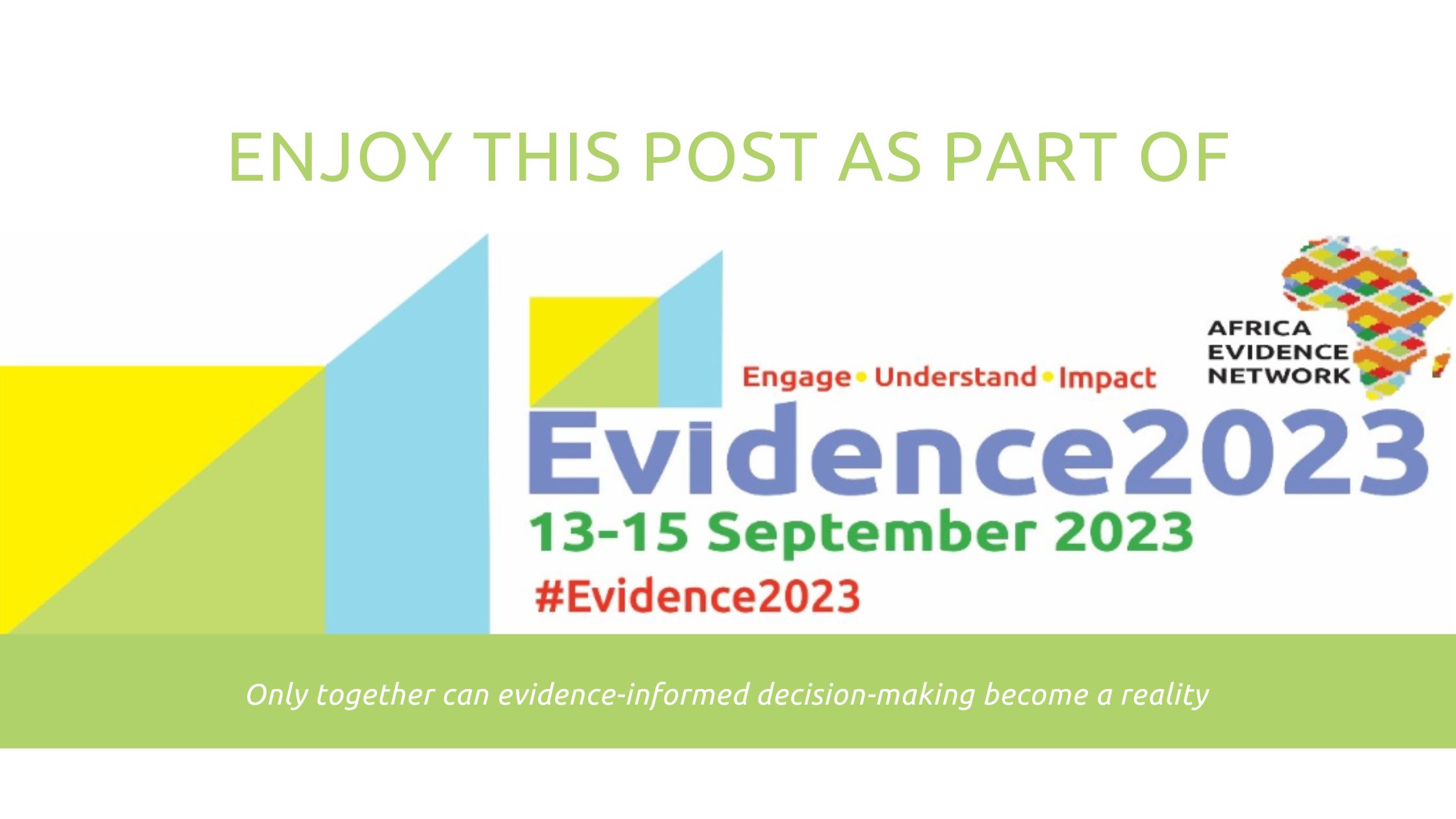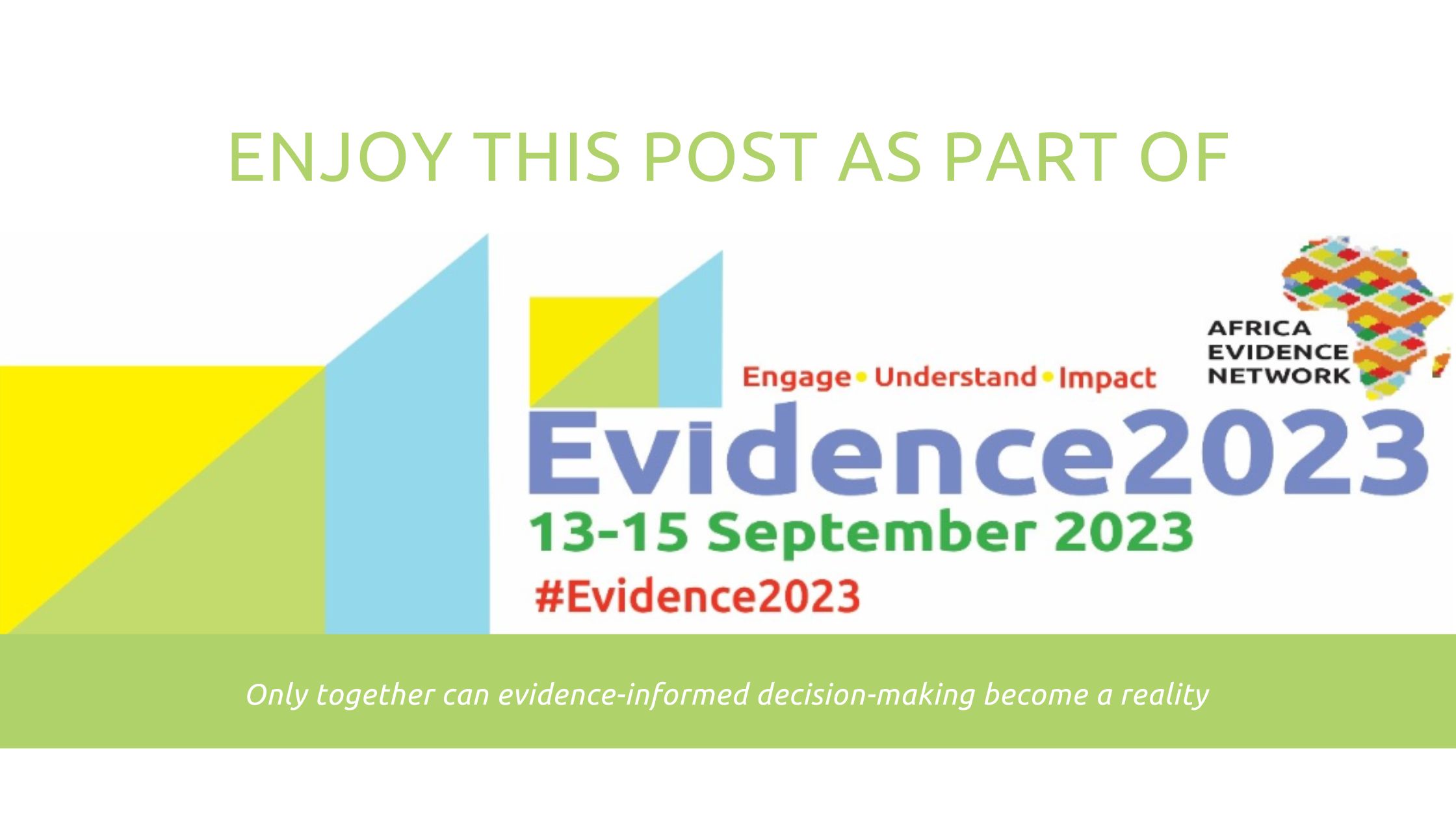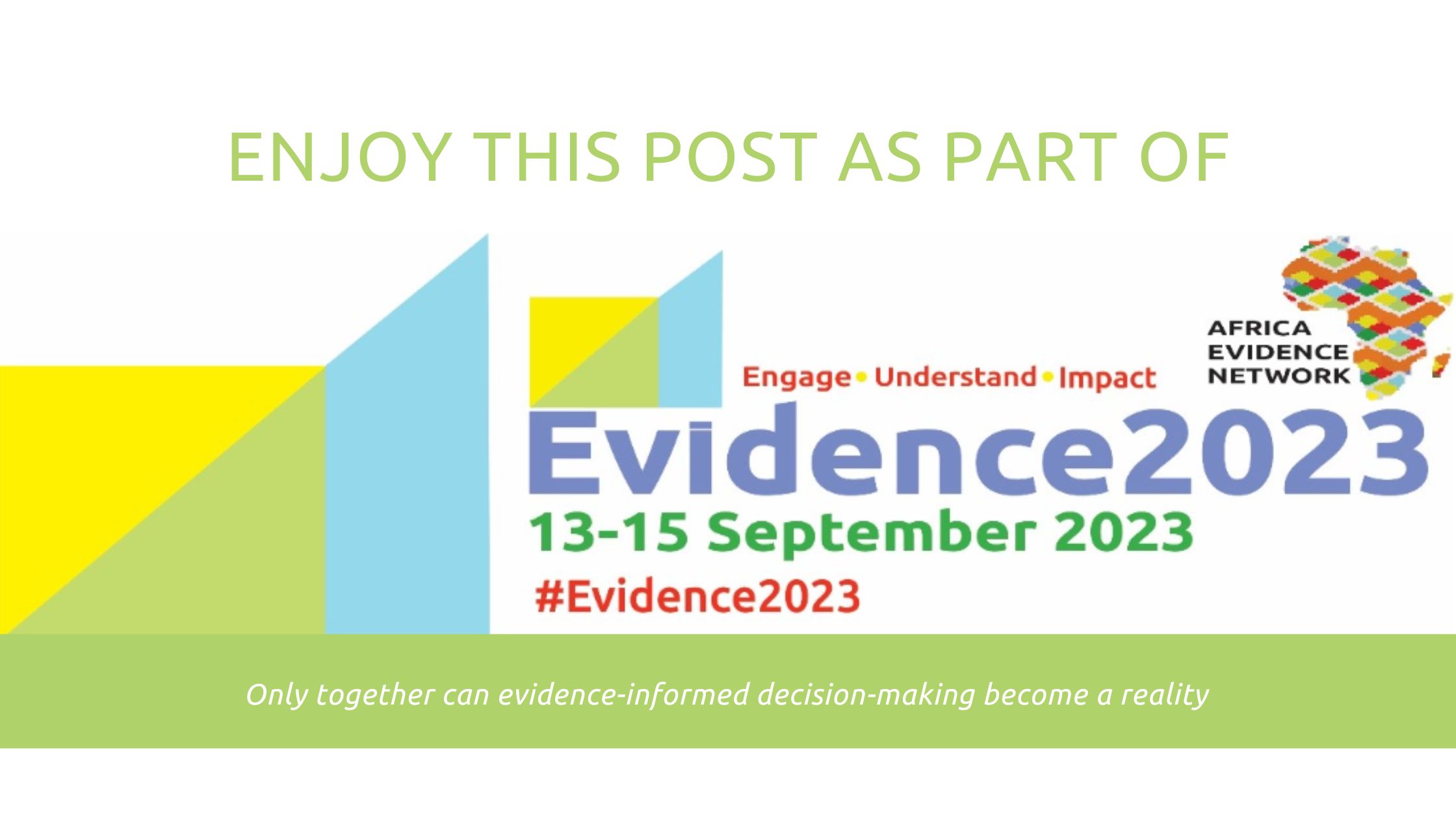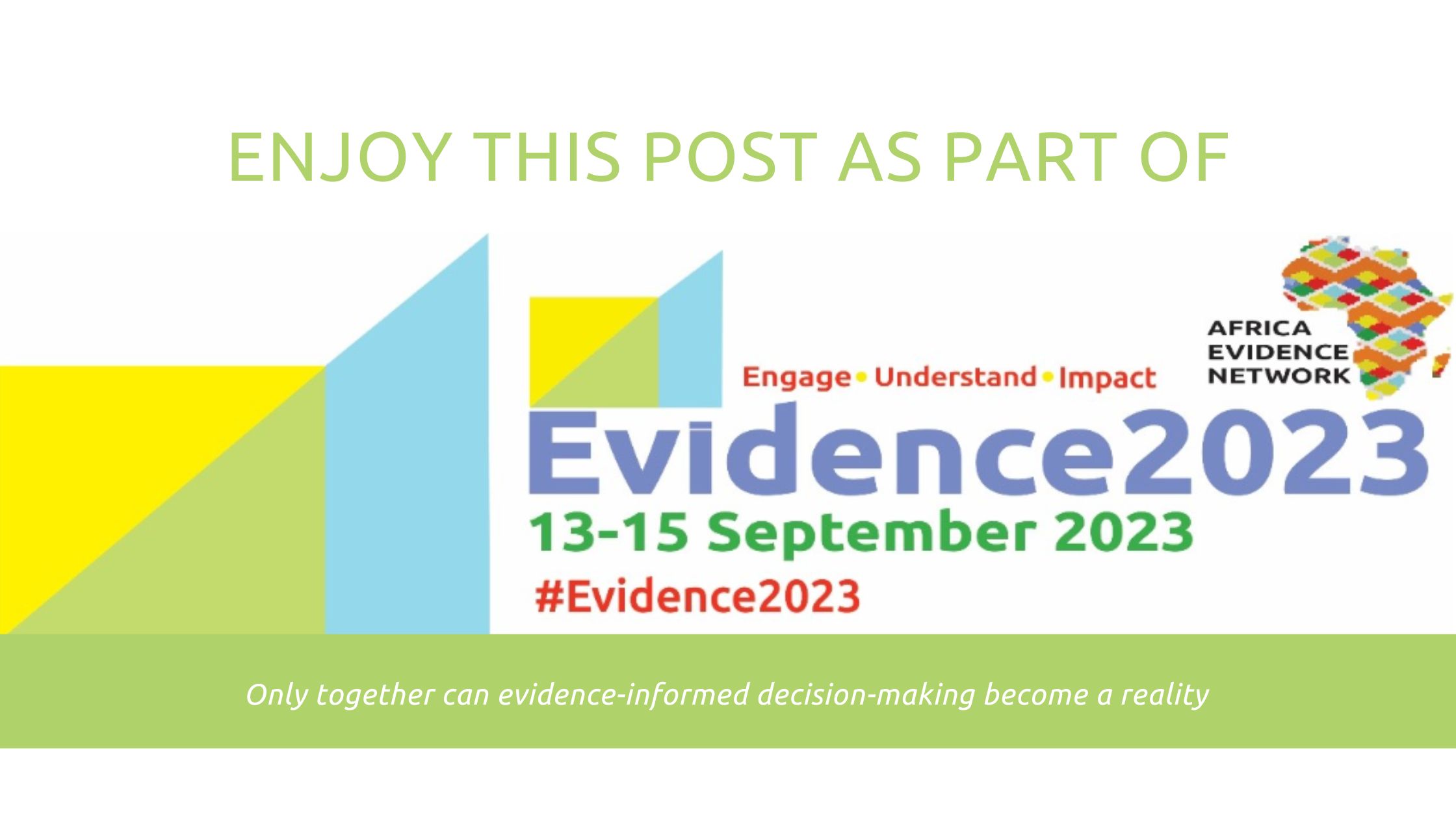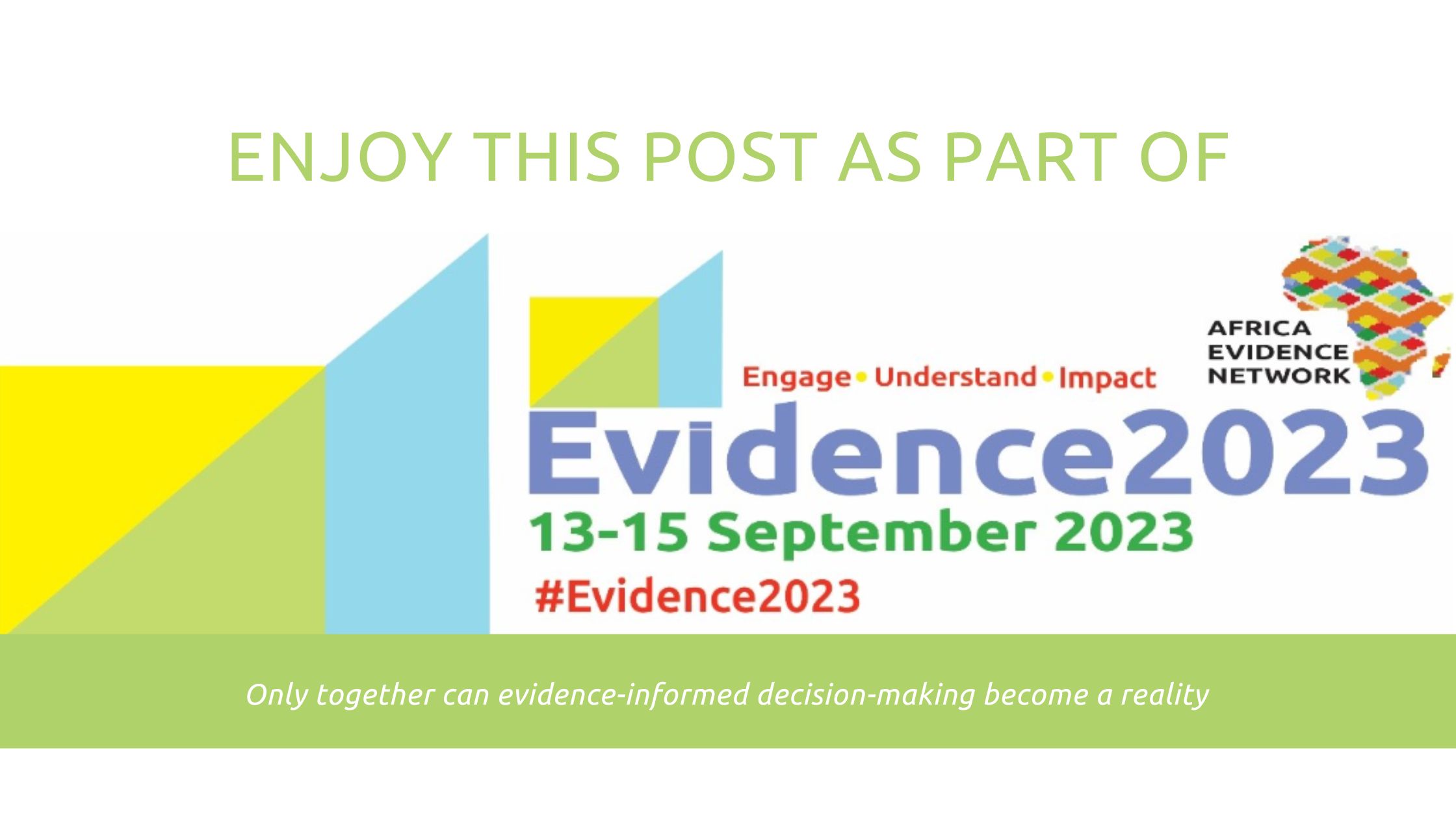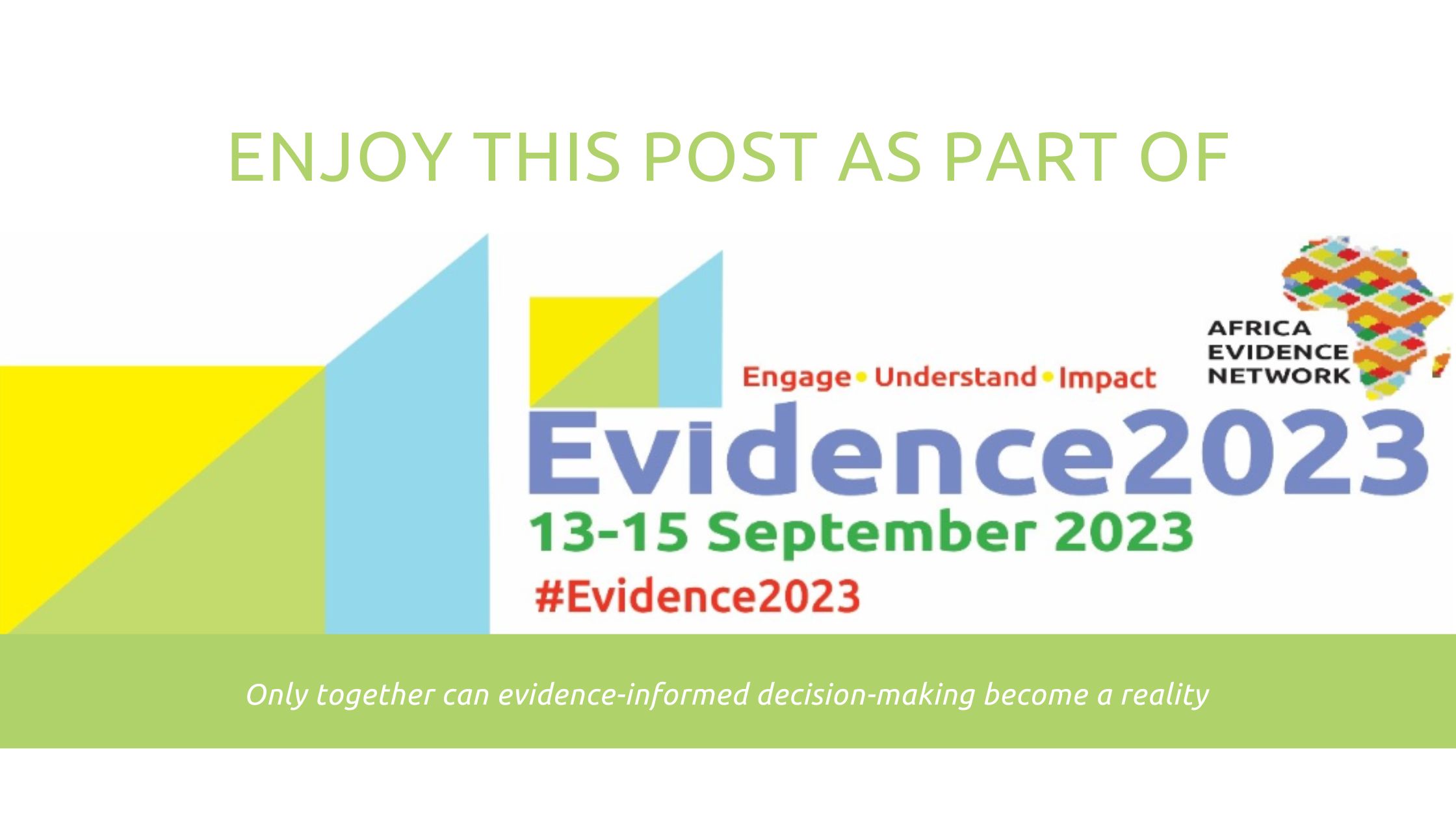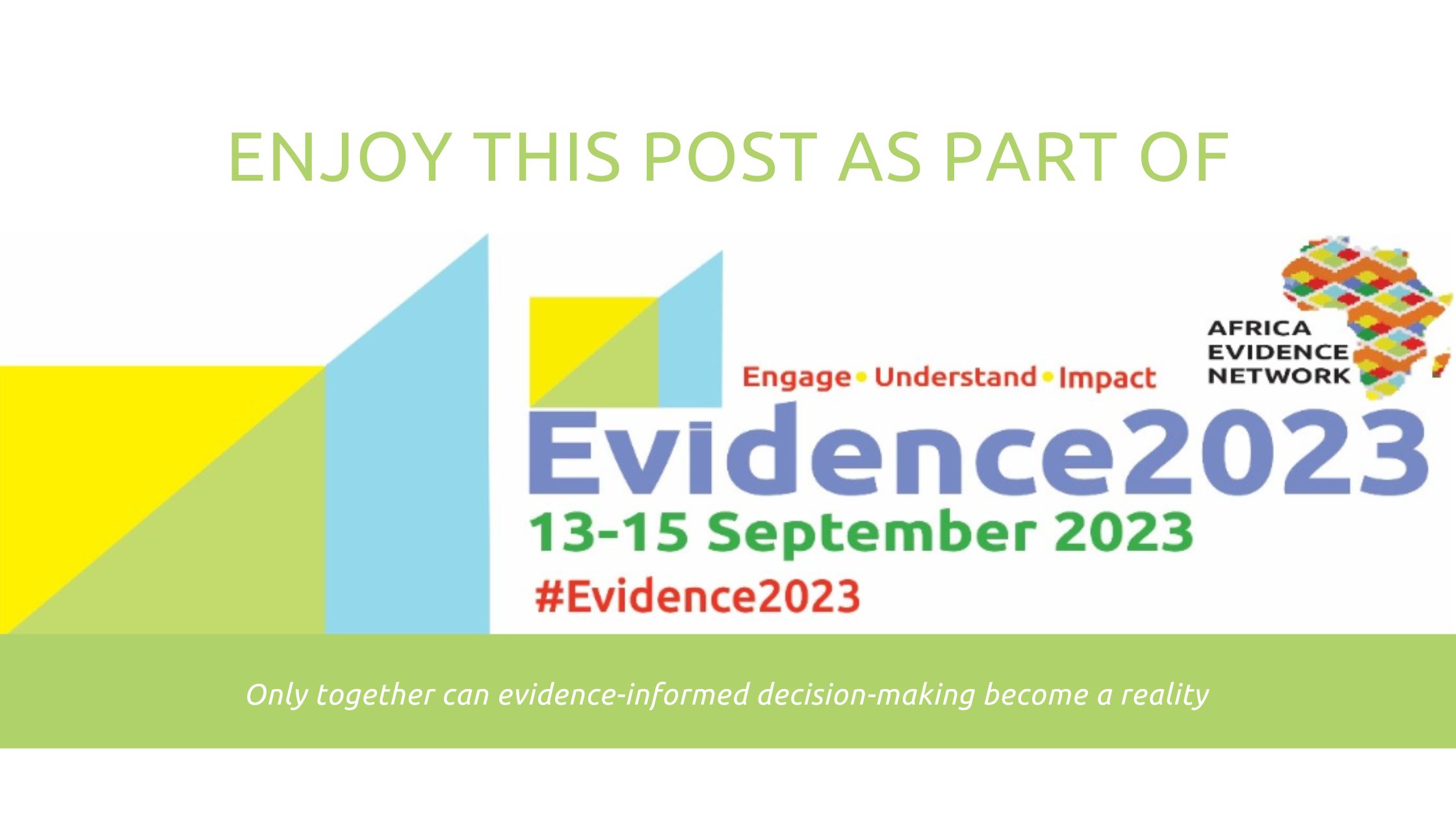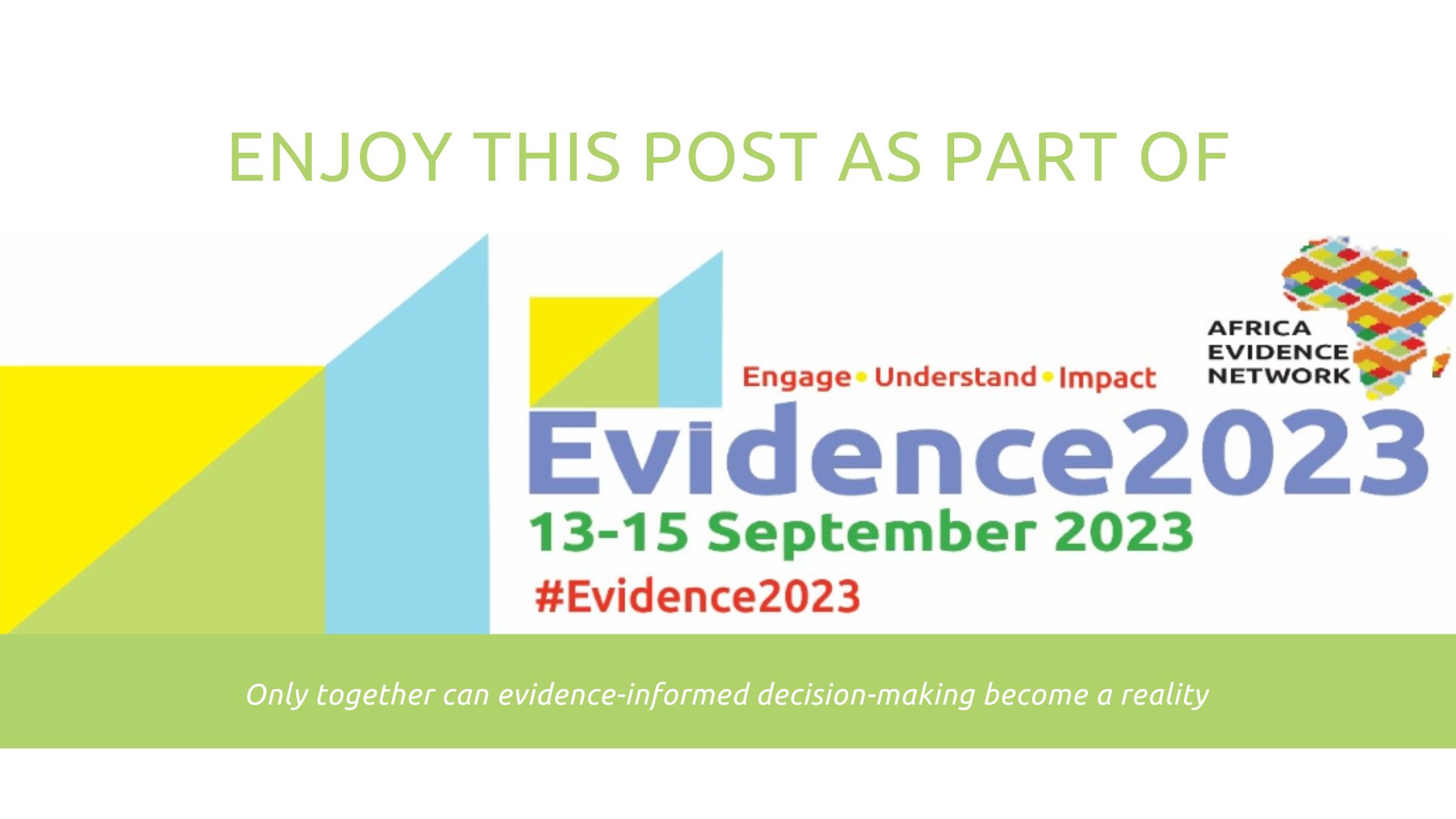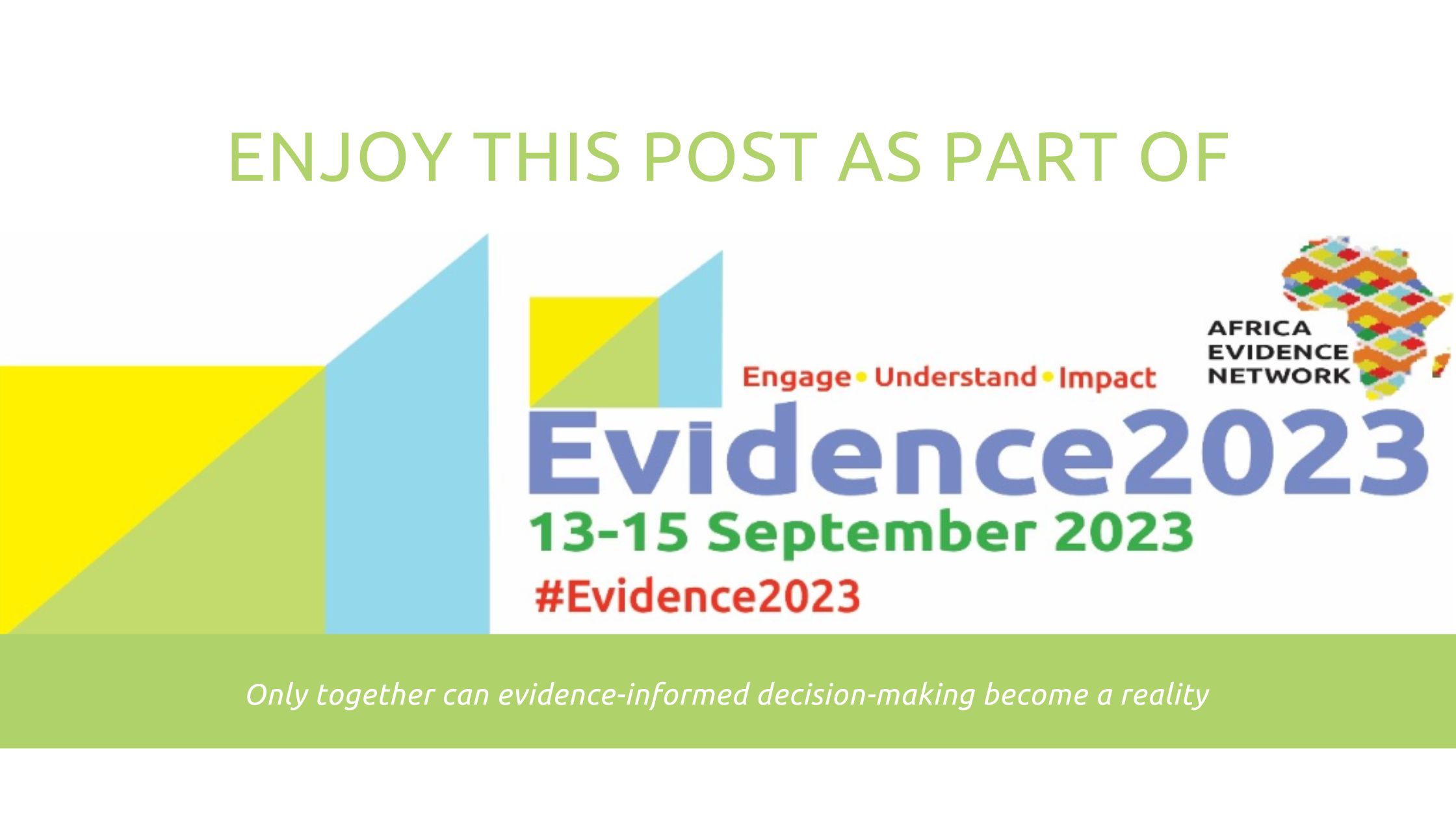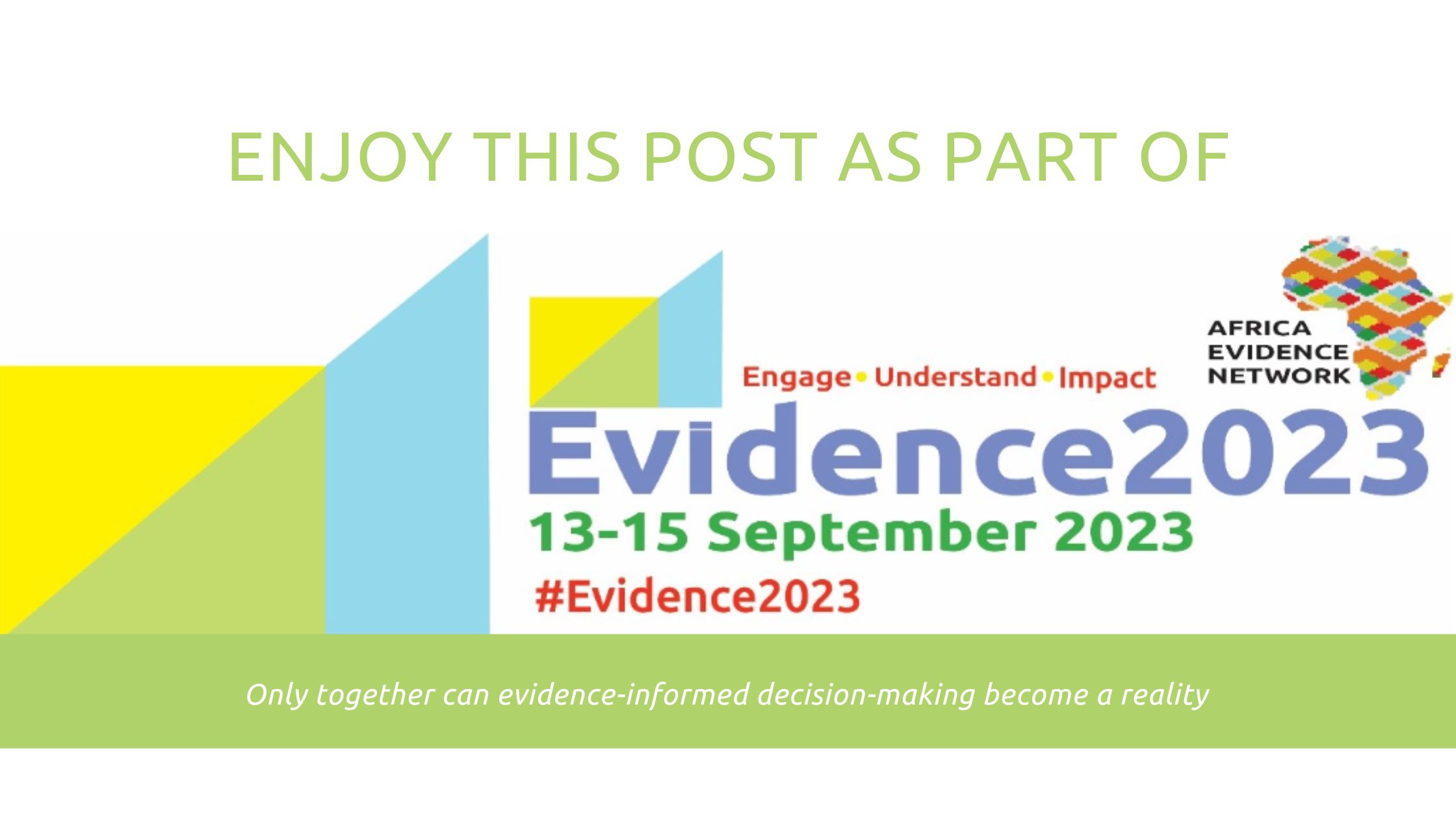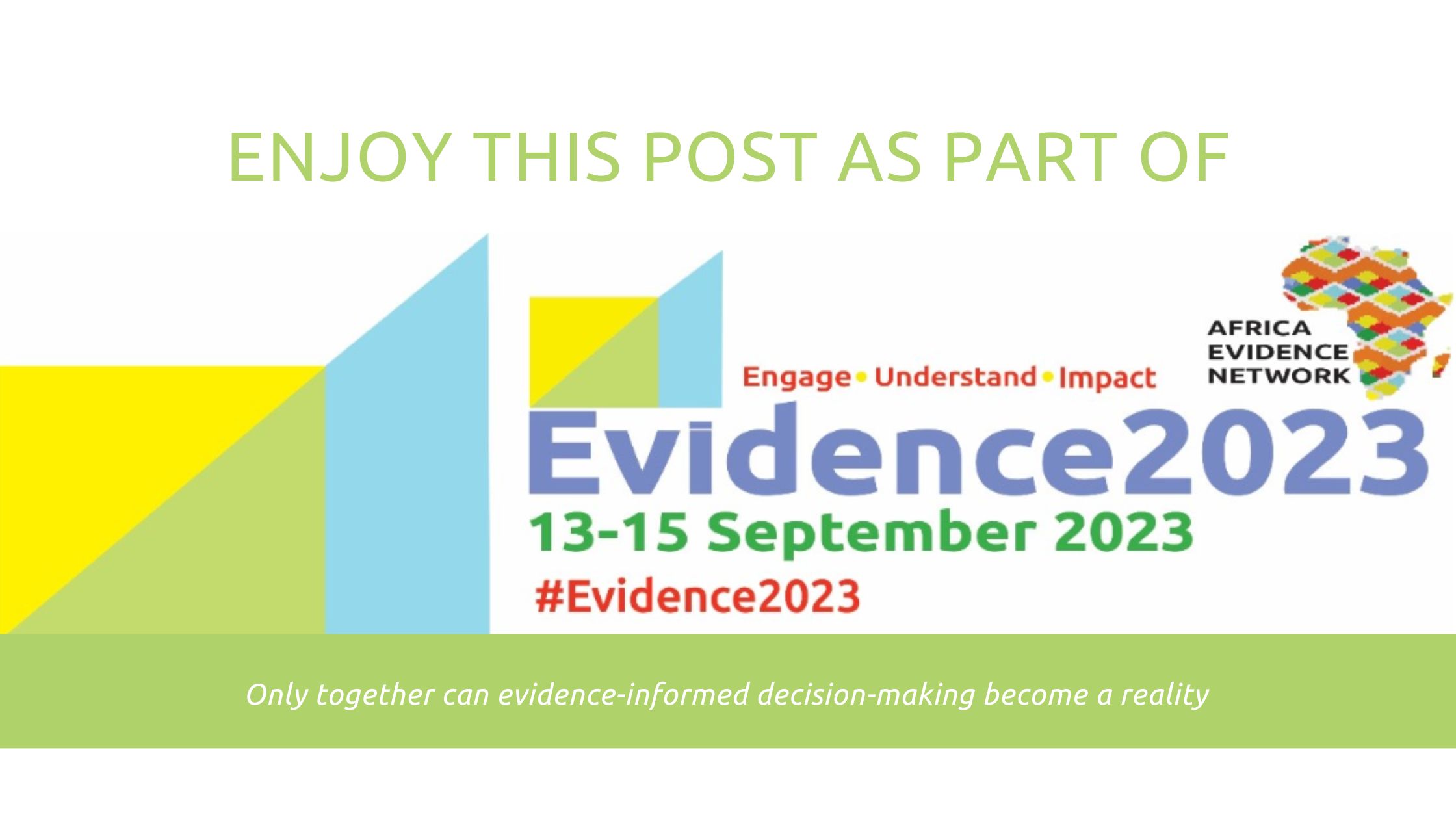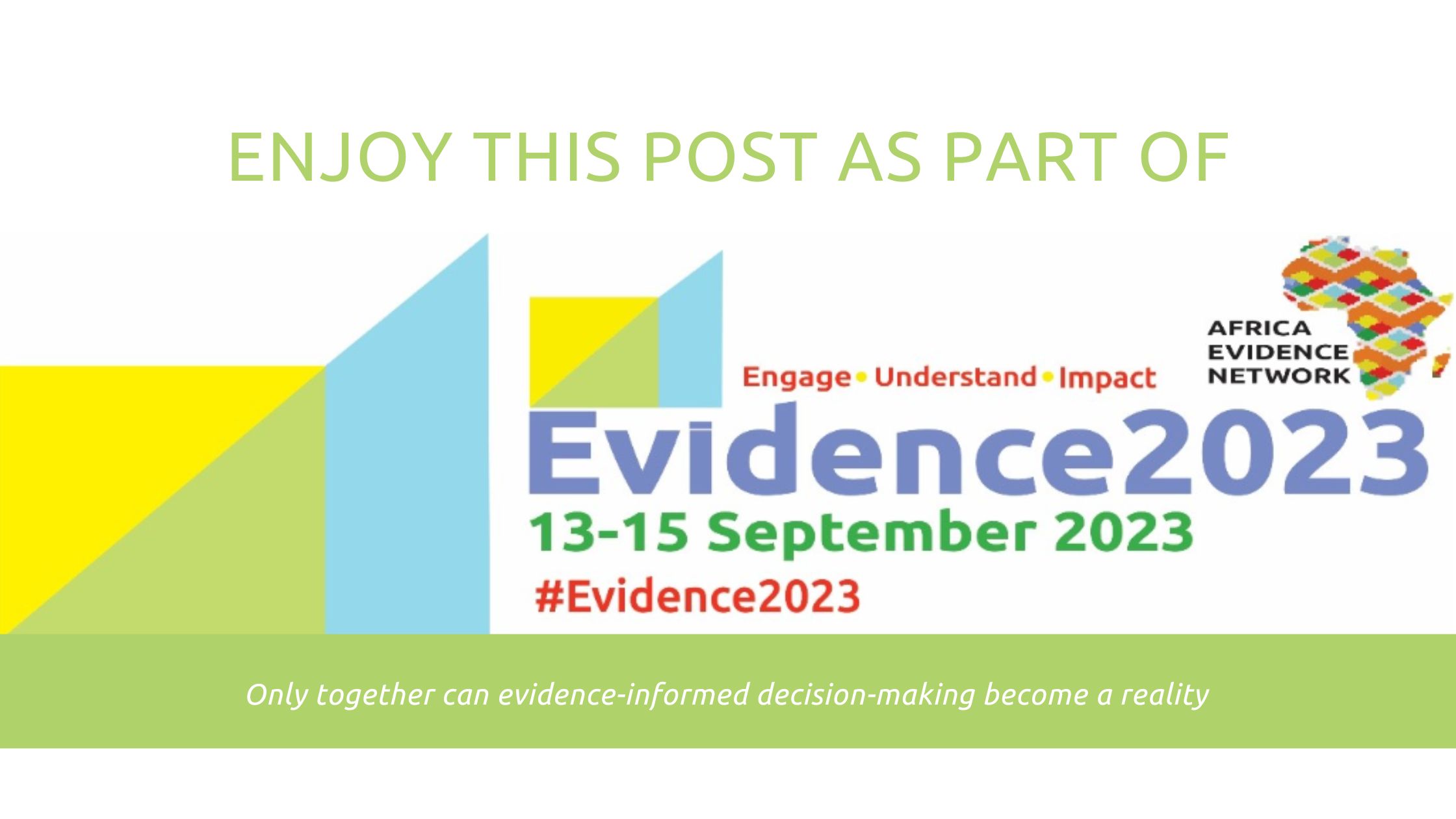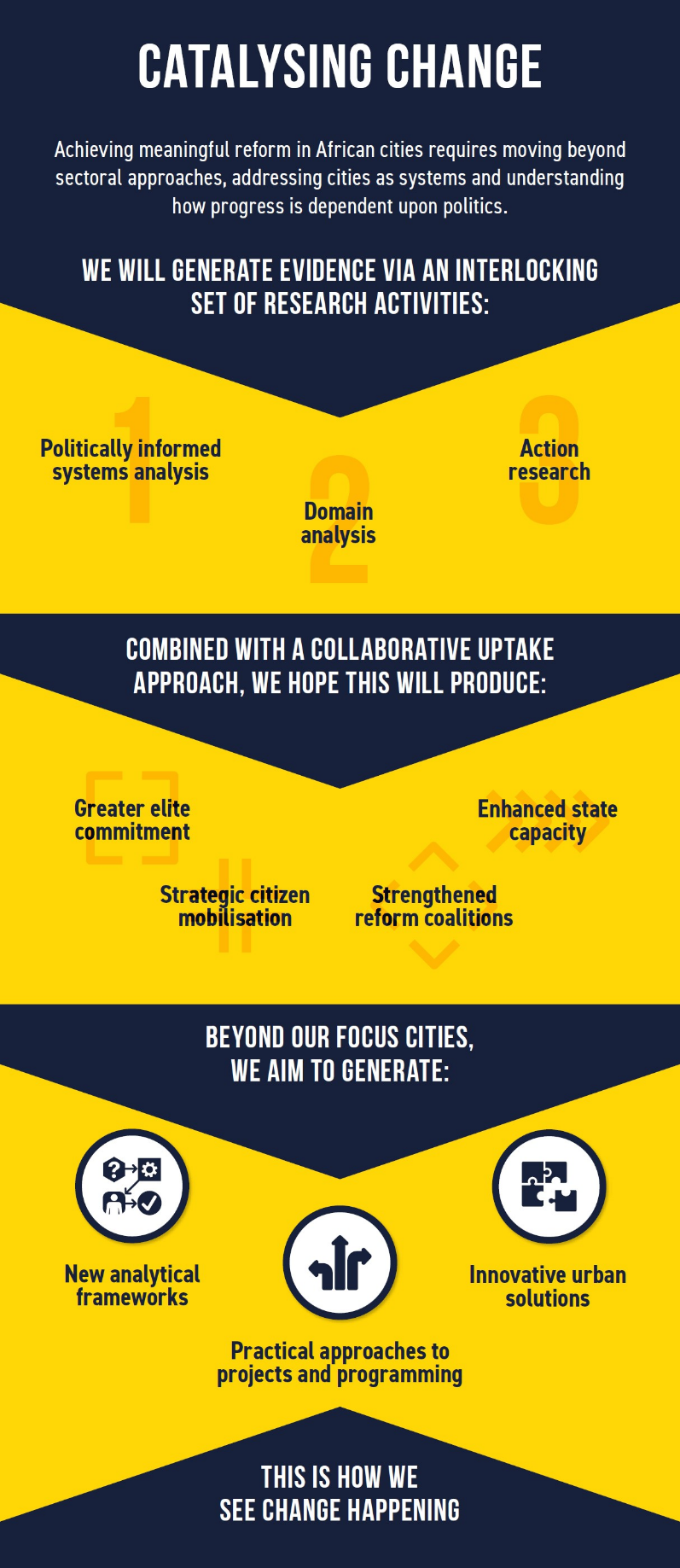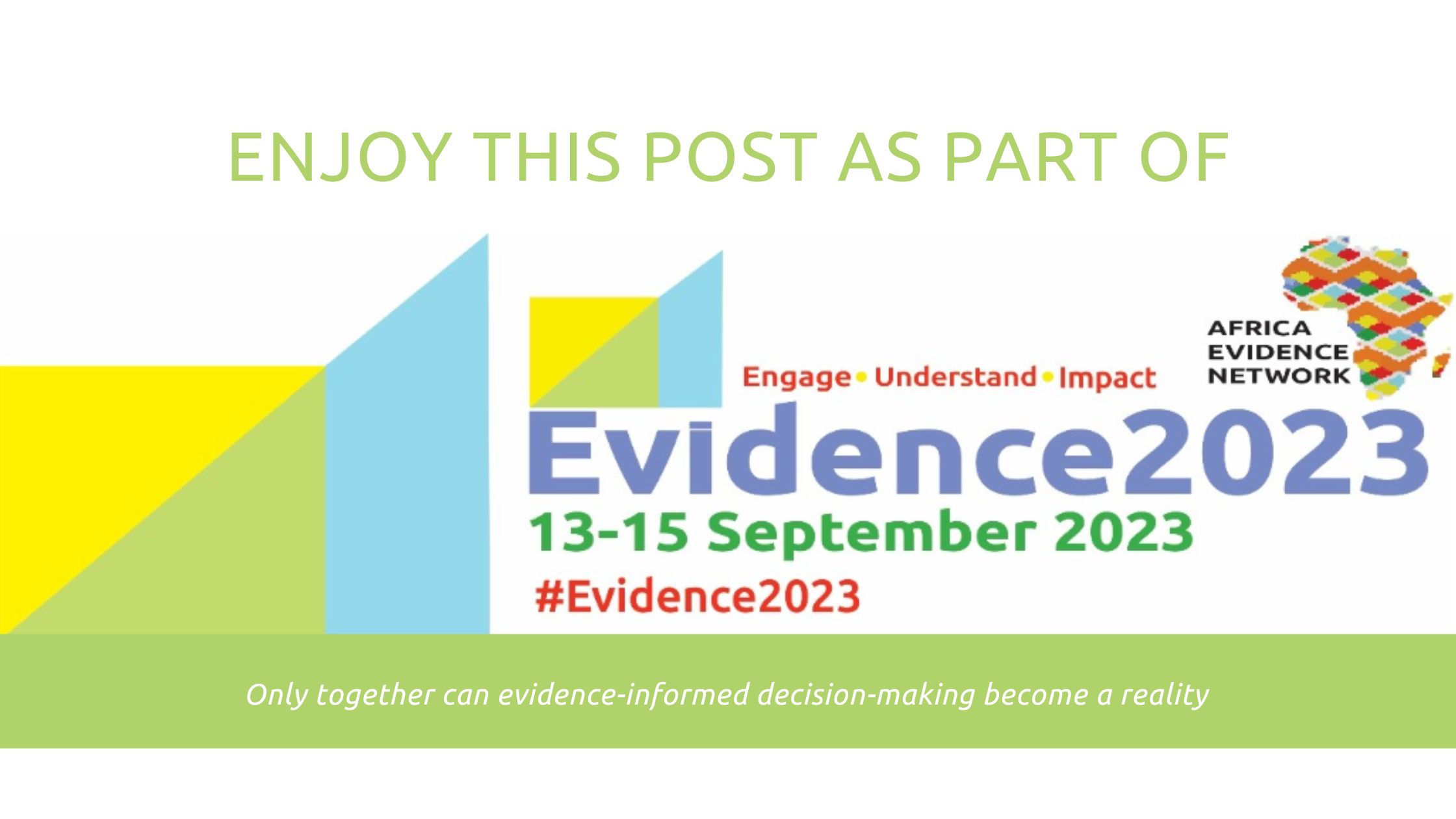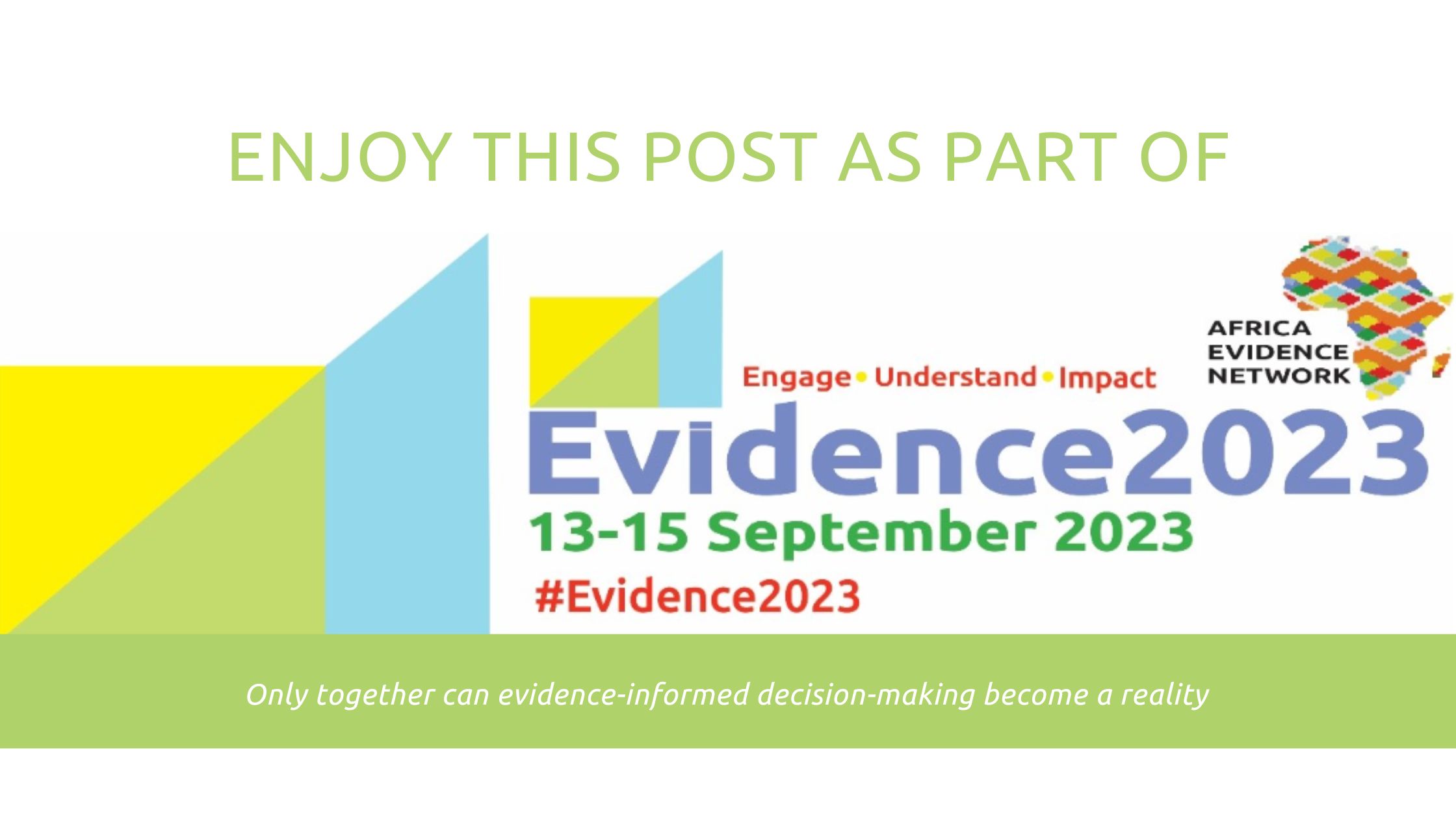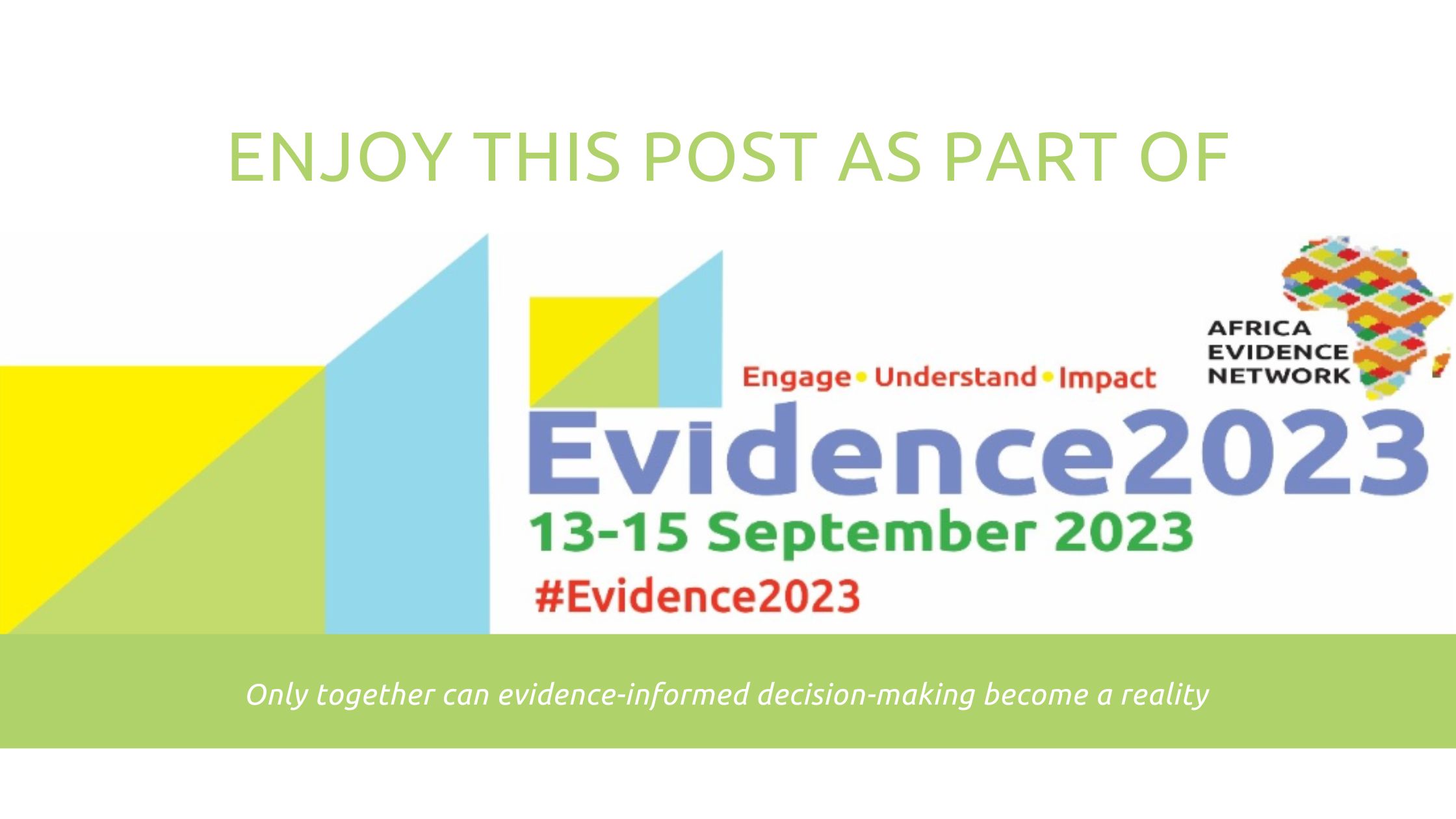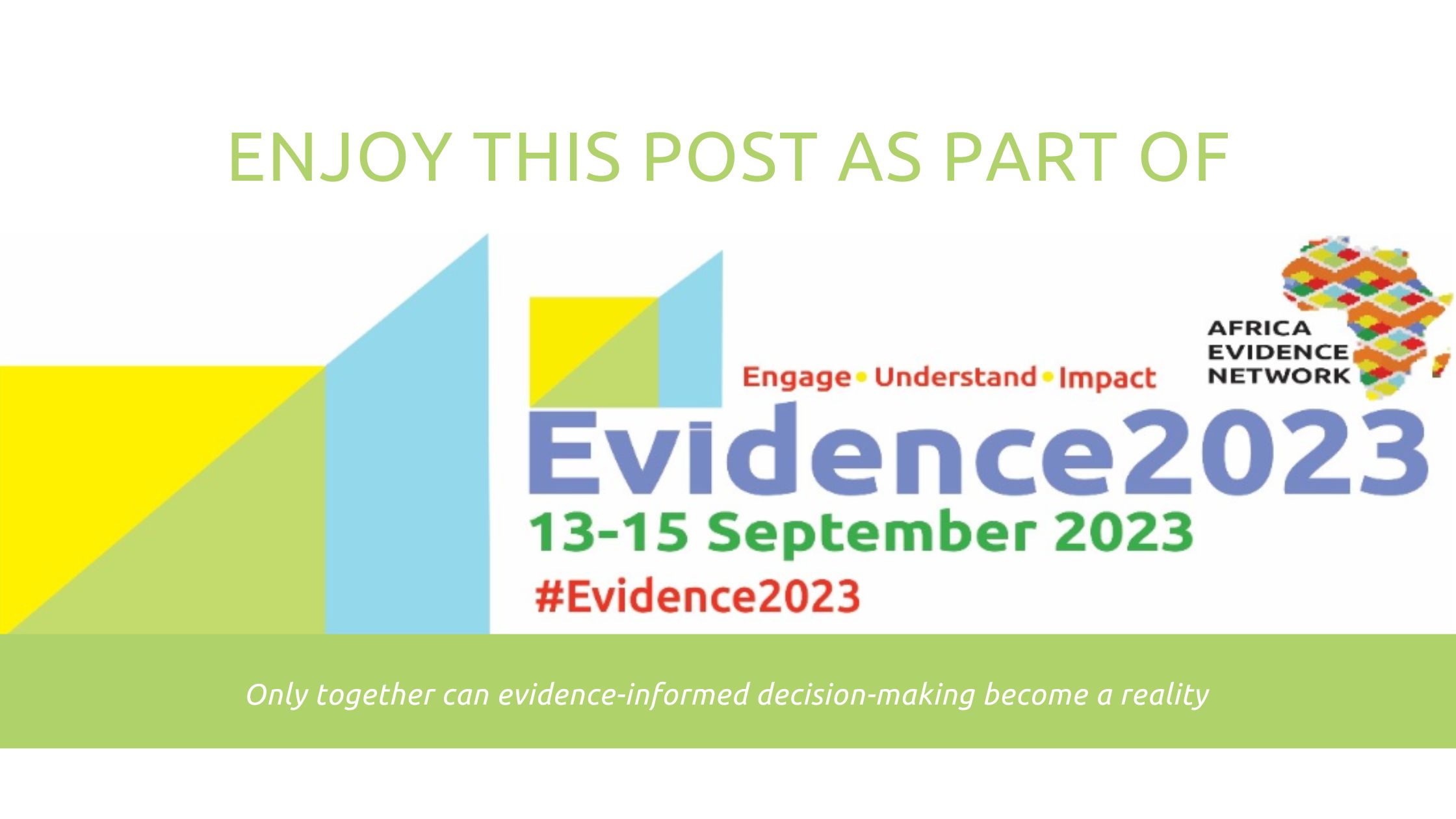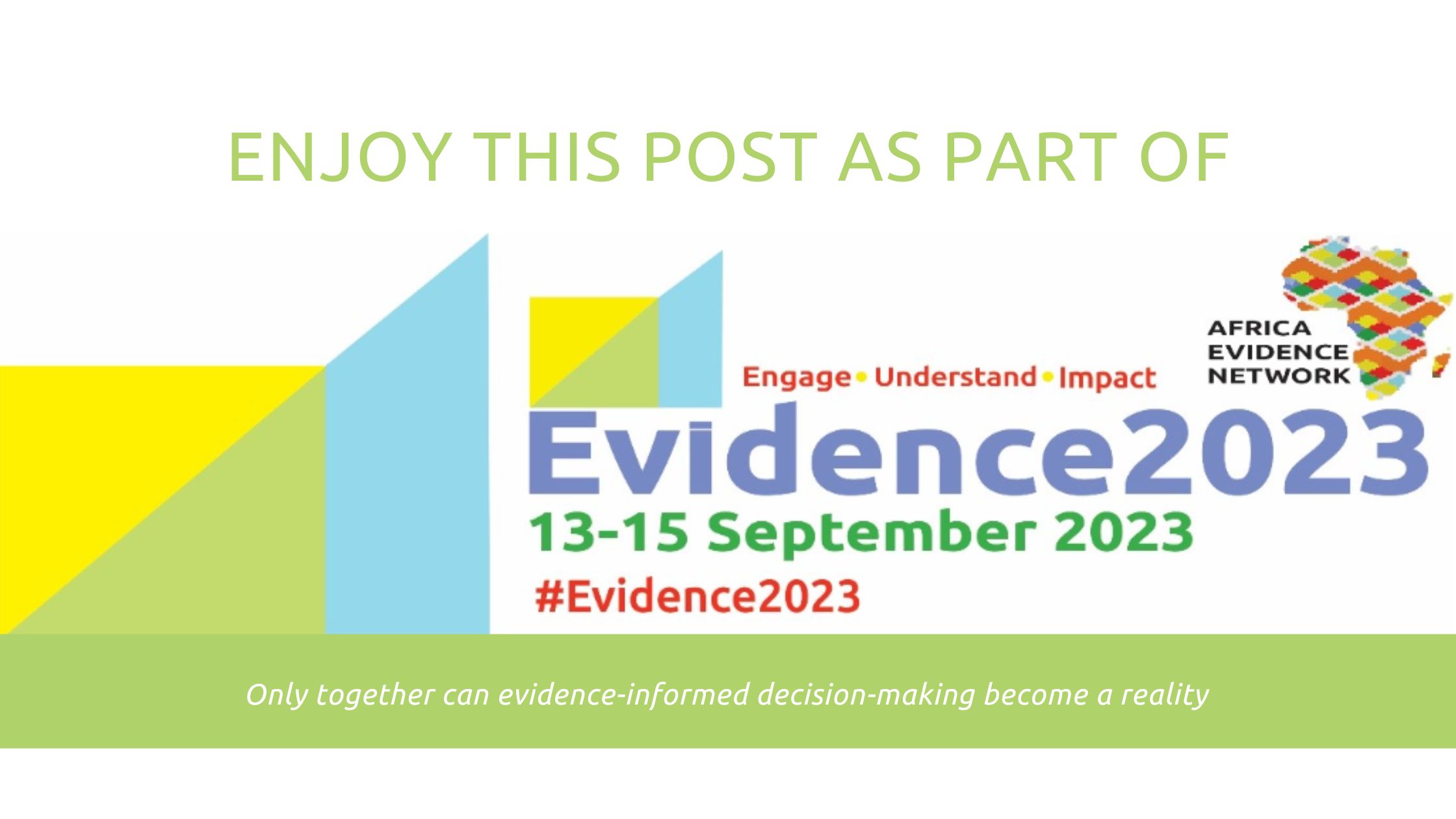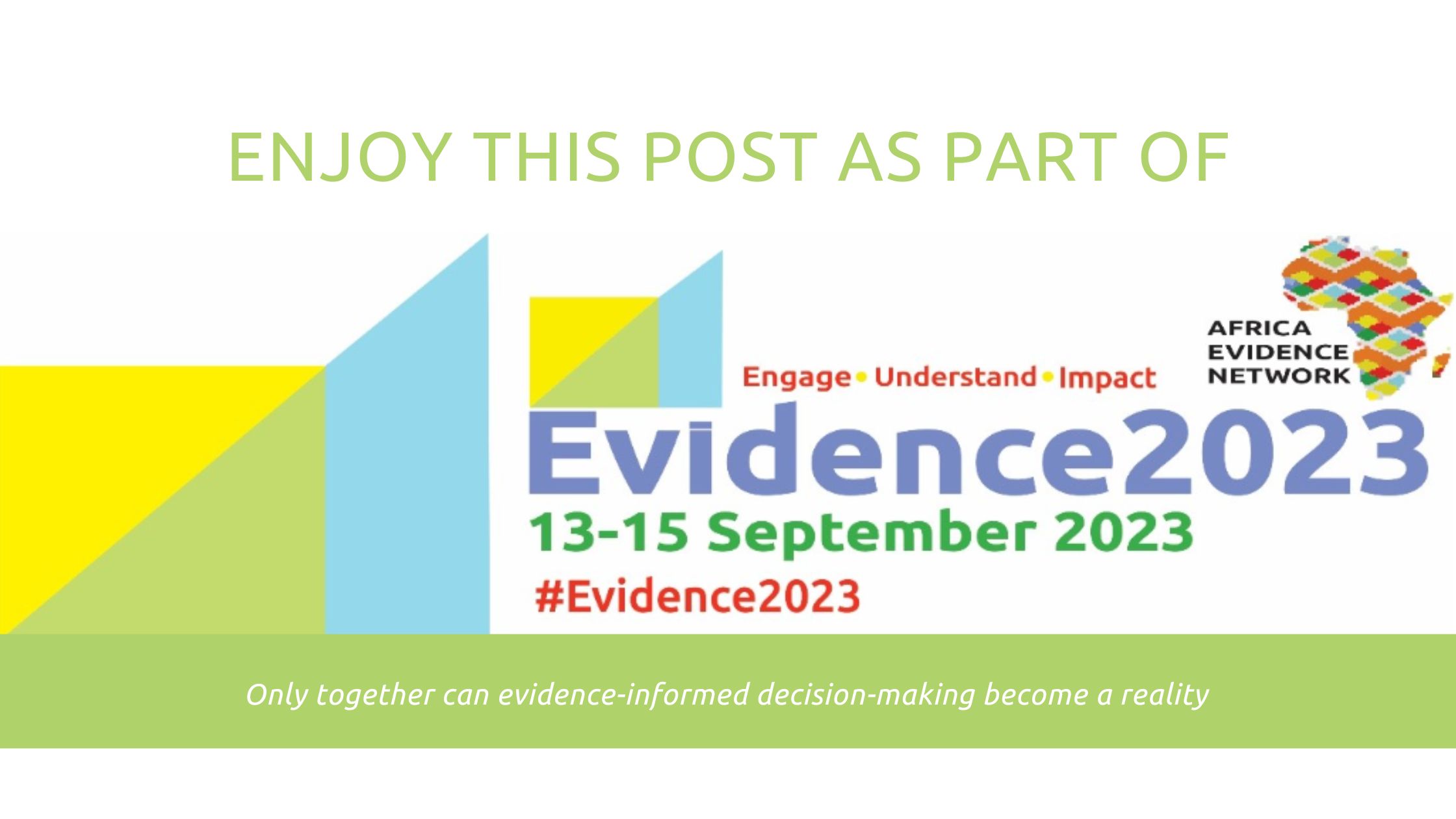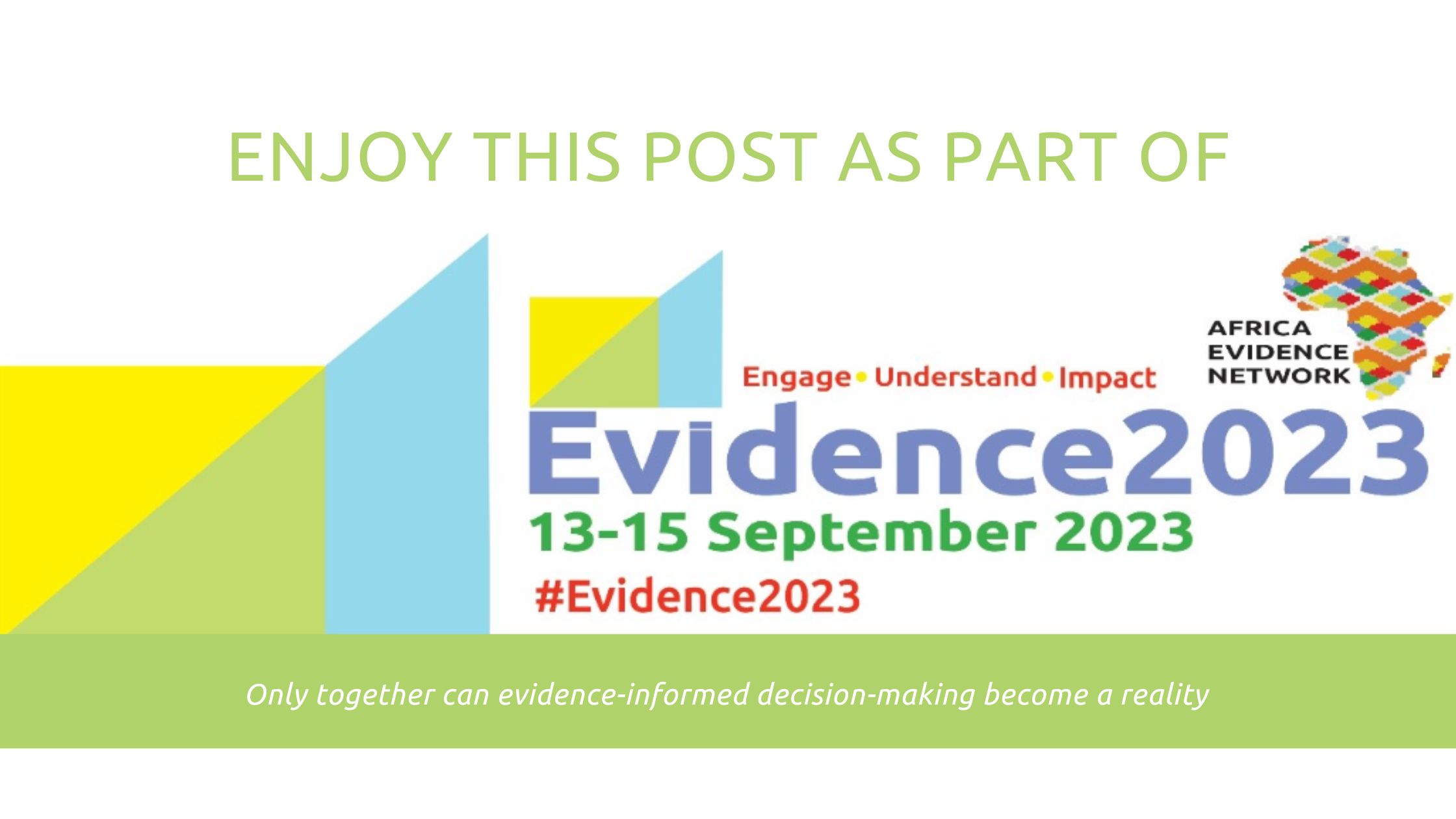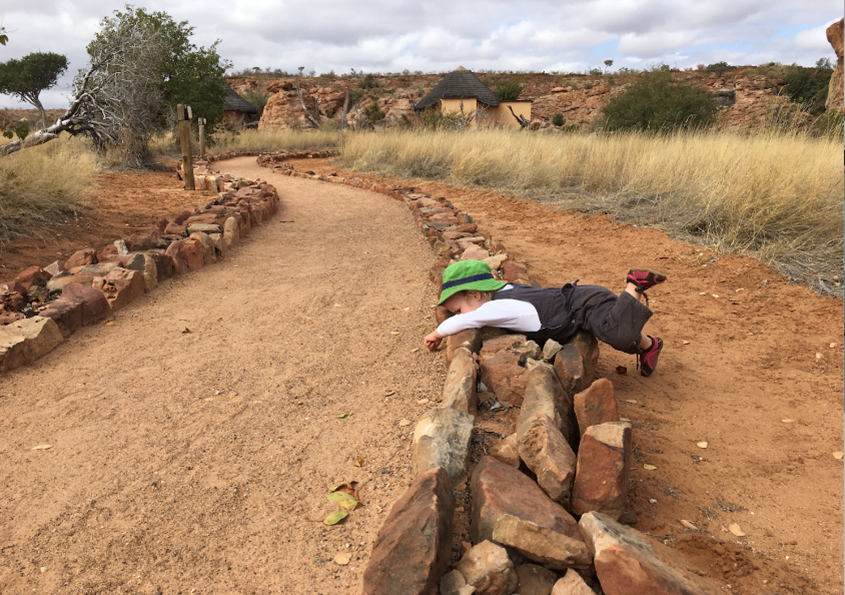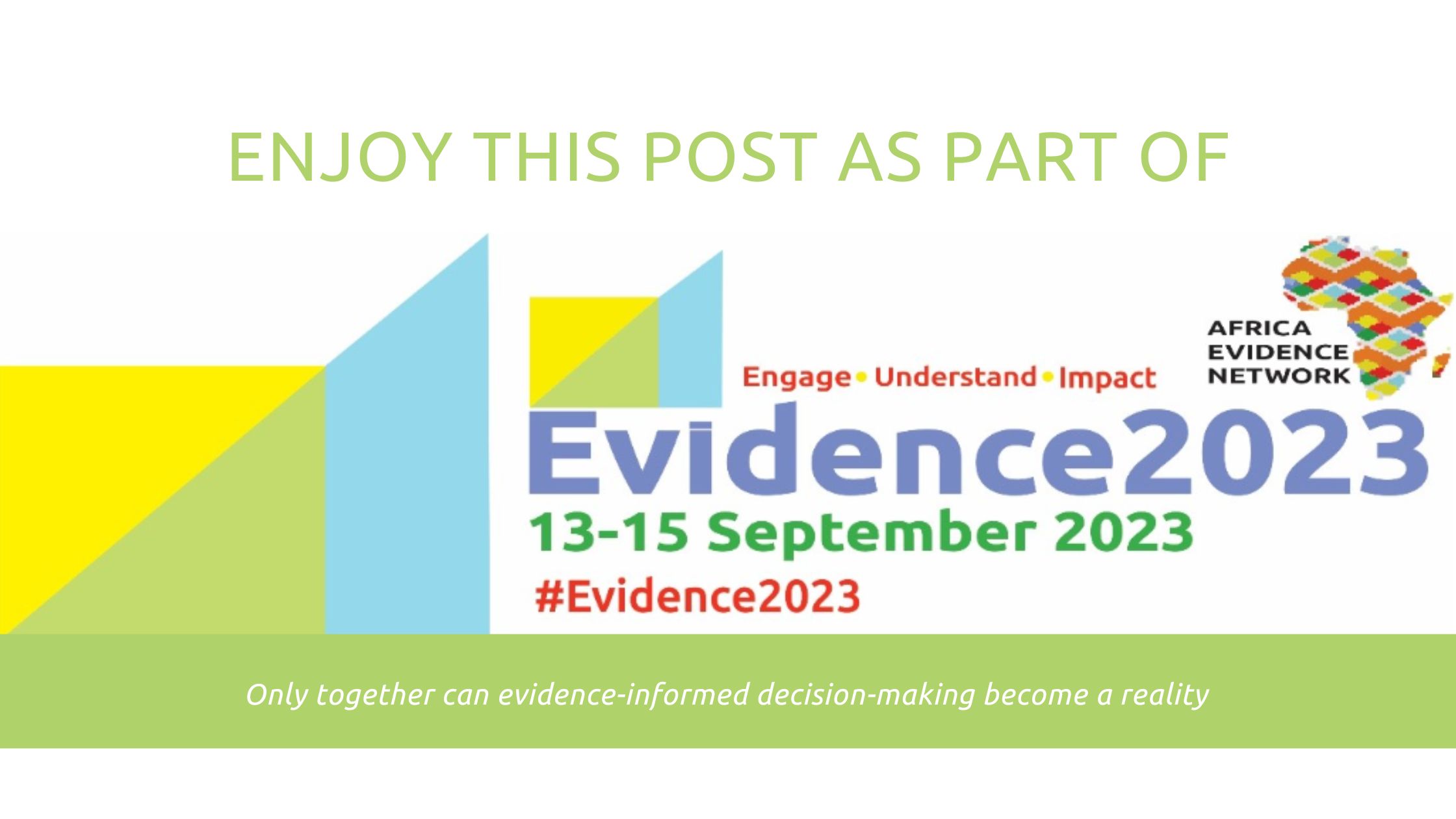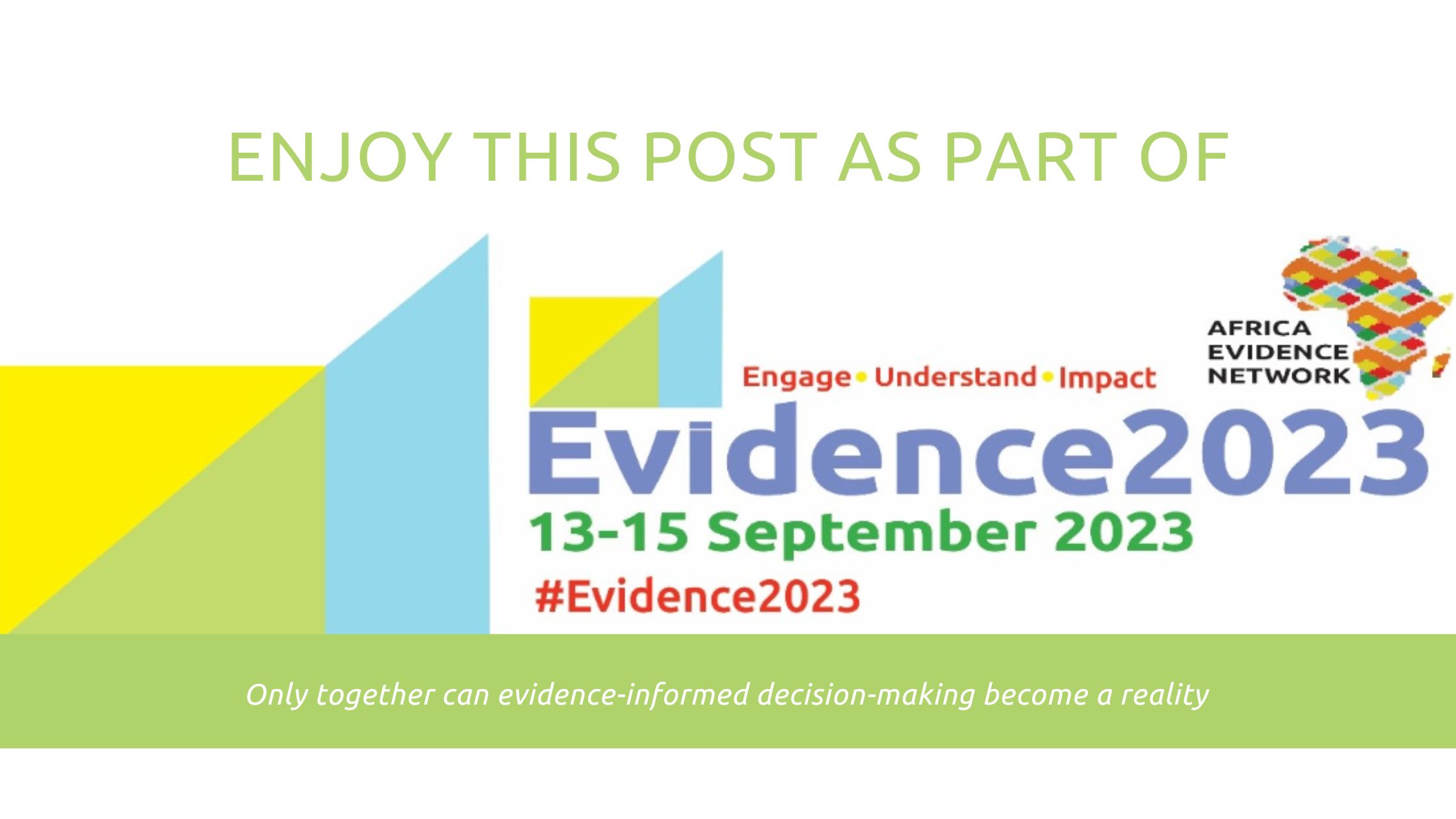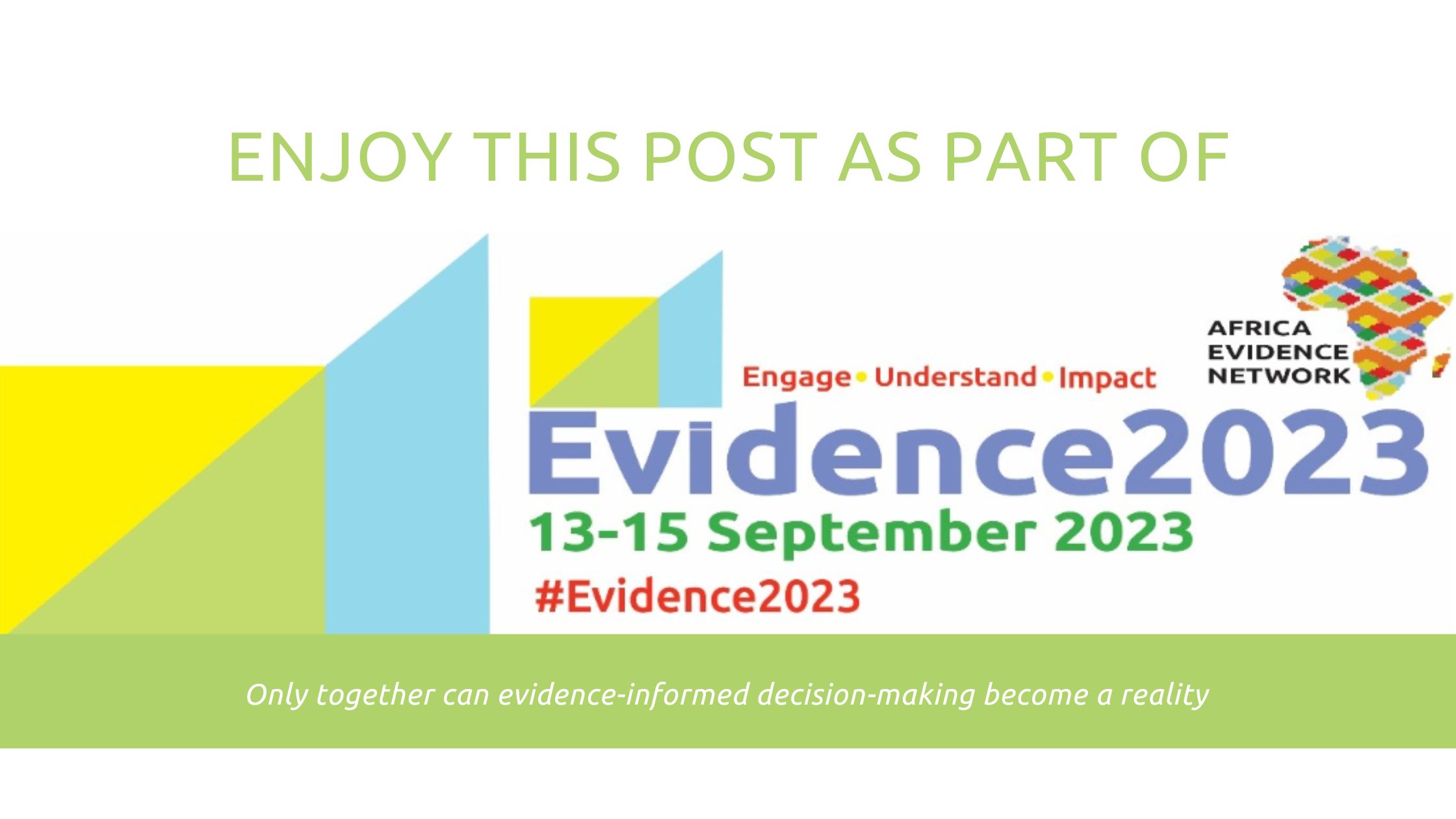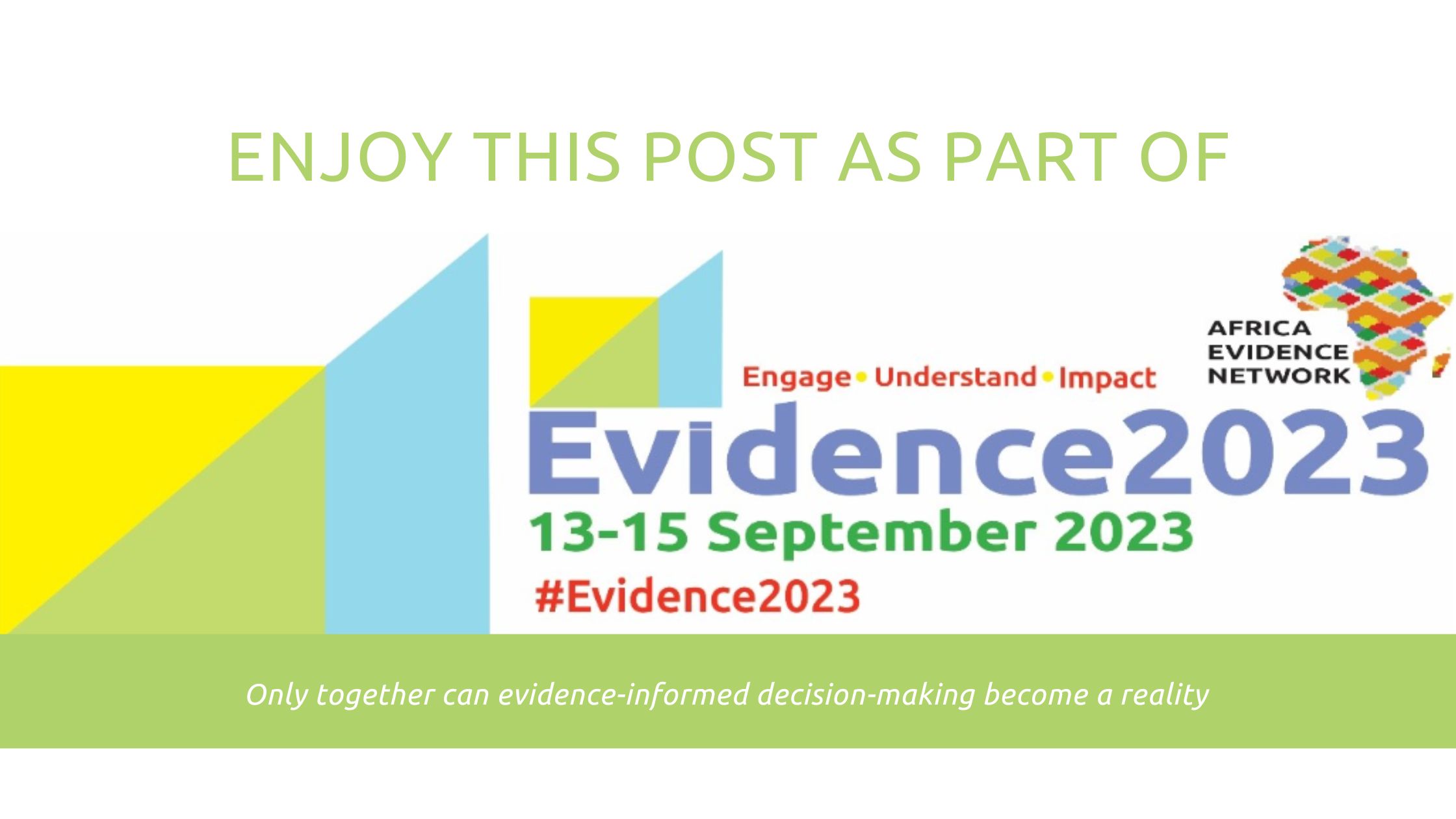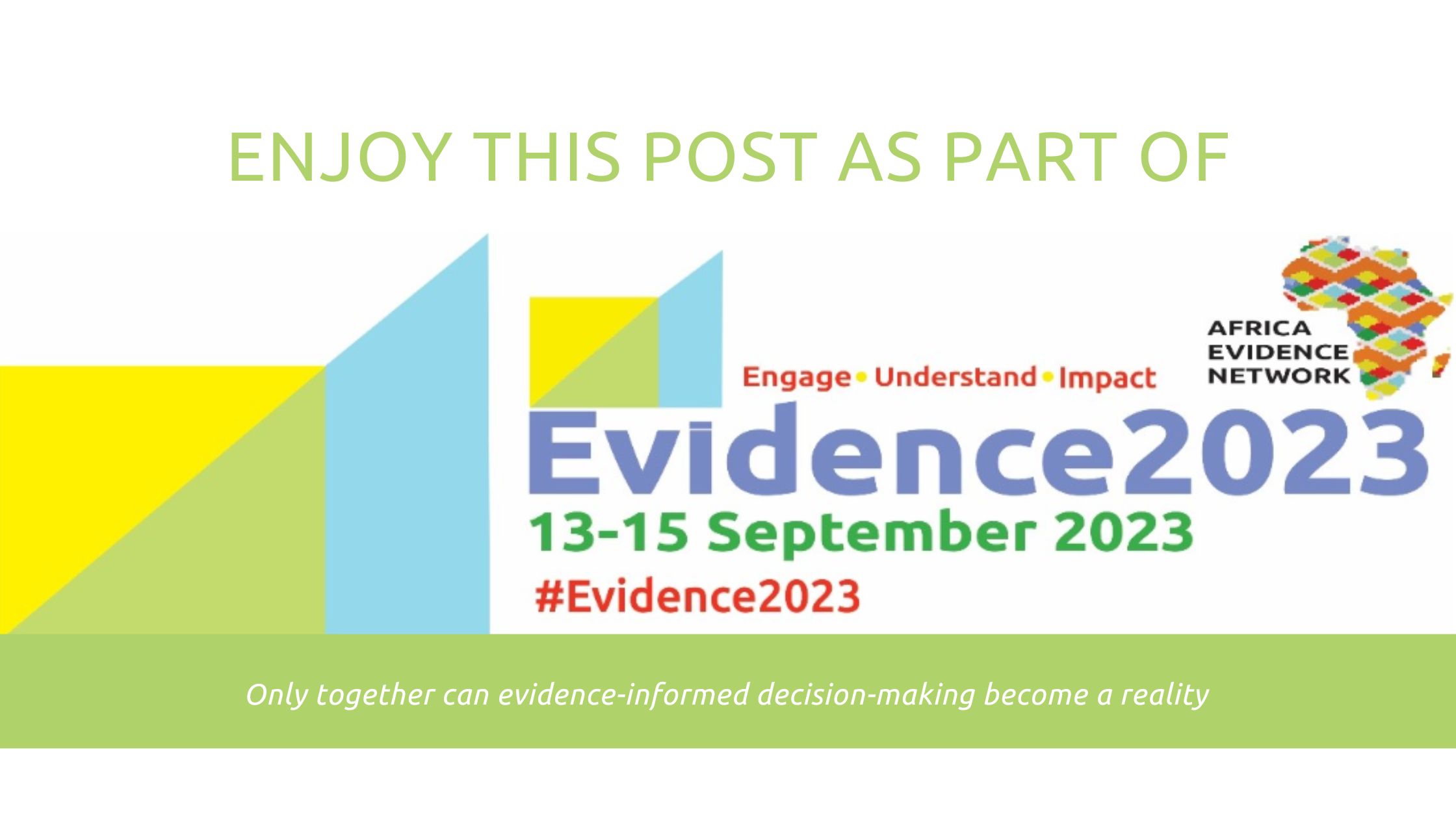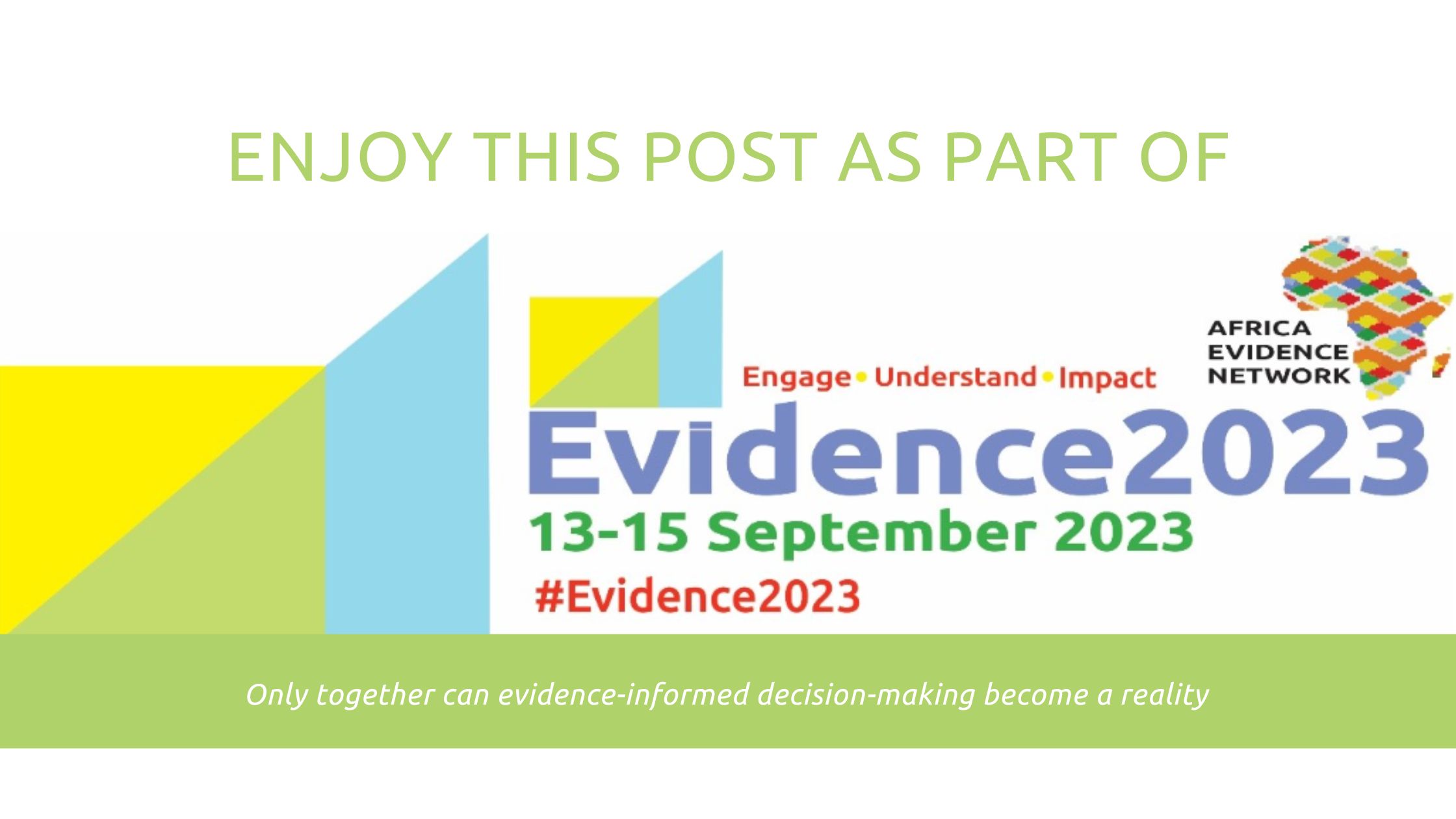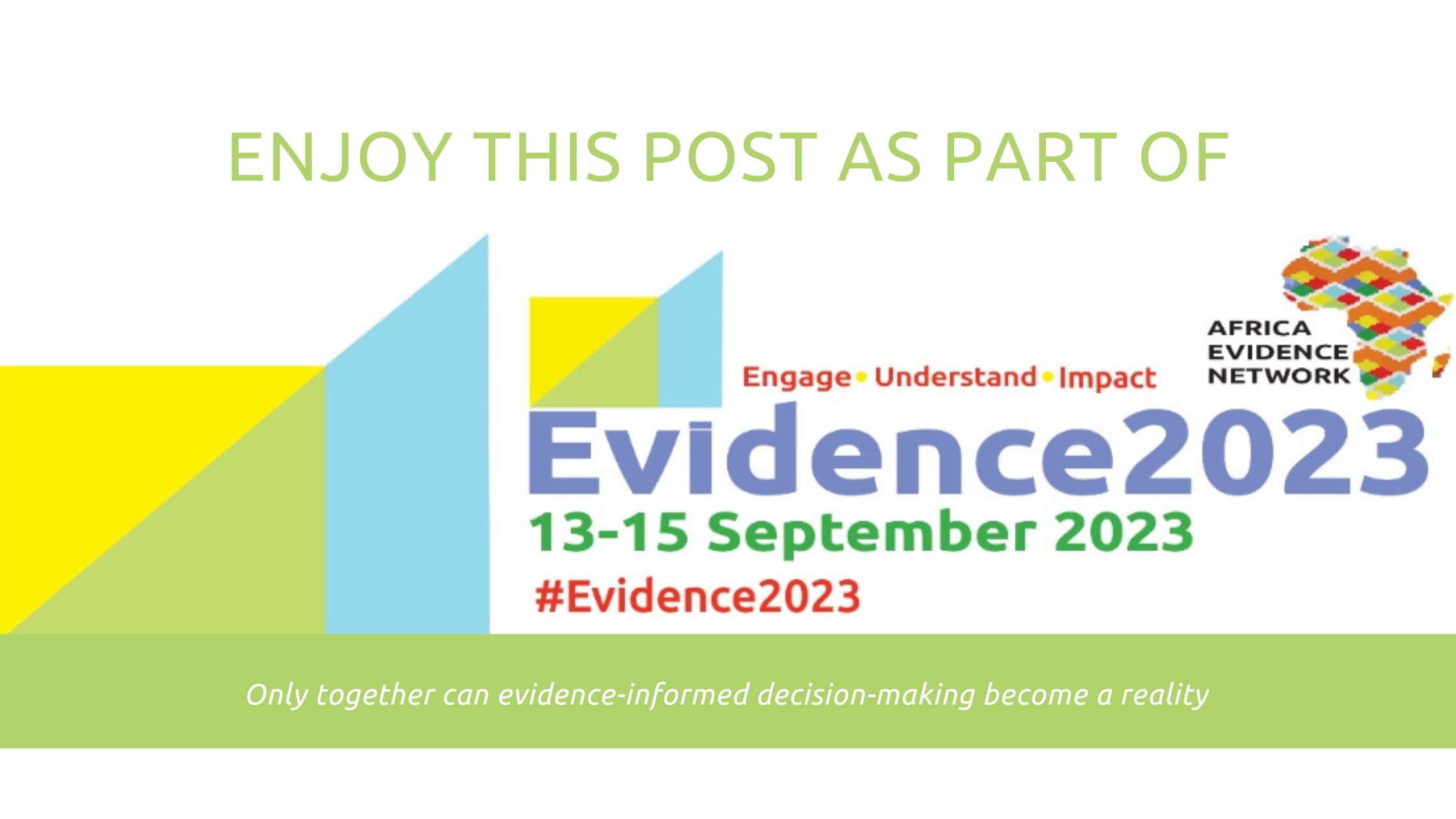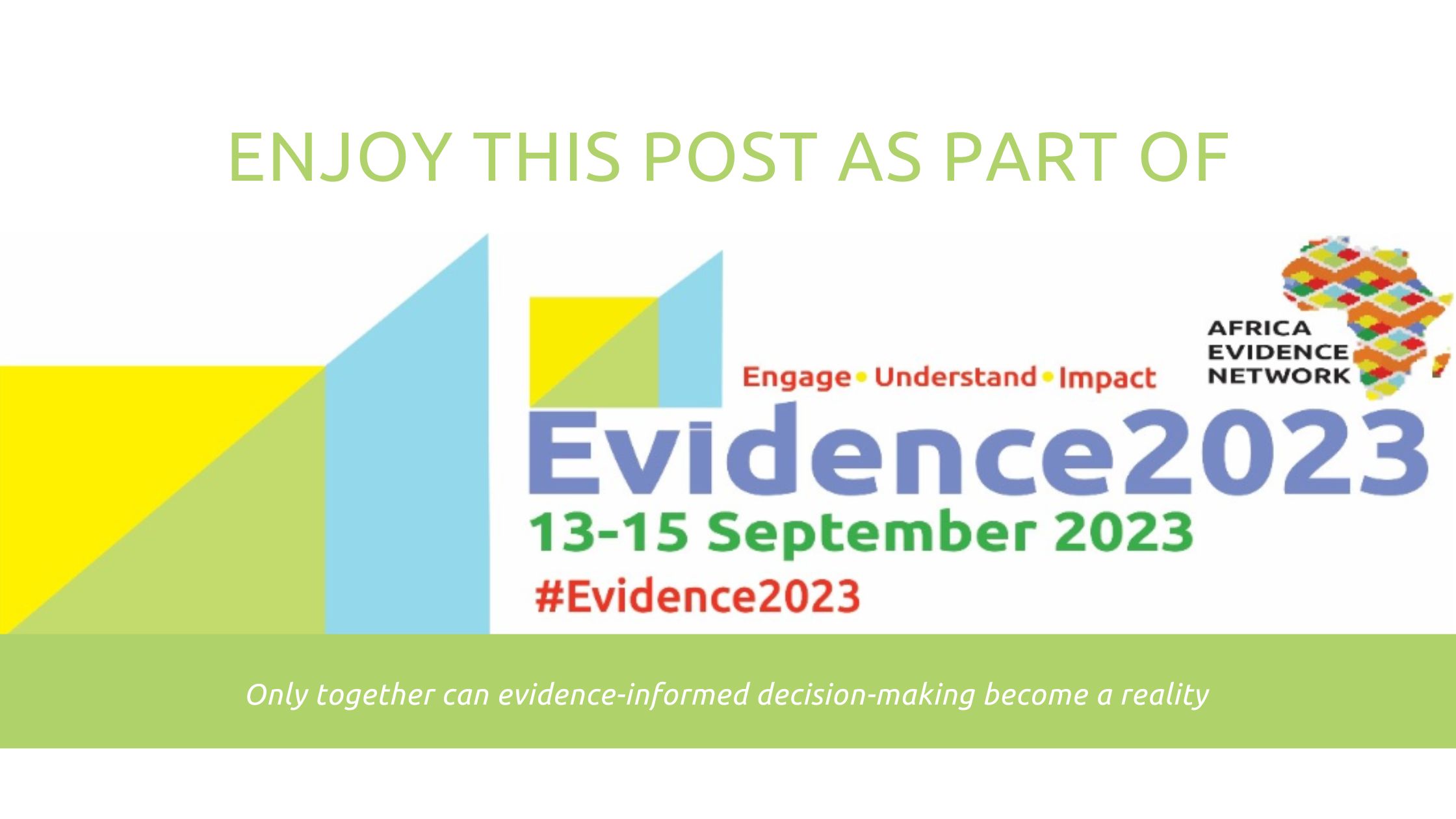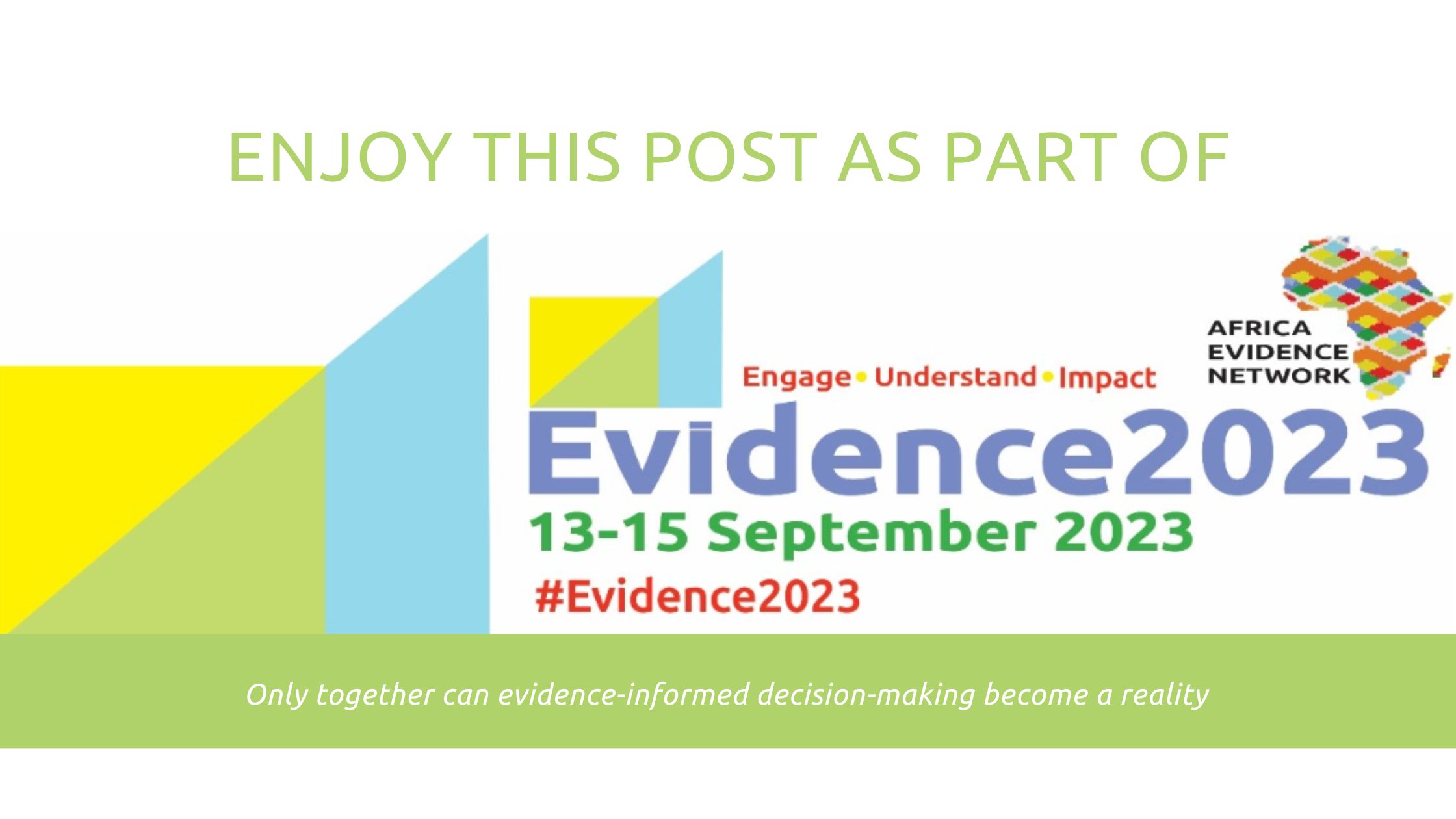
Background
A key EIDM challenge is that policy makers may not understand how to make use of research evidence for evidence use and researchers may not know how to share this evidence with policymakers to formulate effective policies. My study seeks to address such capacity gaps through e-mentoring as an intervention to ensure uptake of evidence by policymakers and for researchers to understand the policy environment in relation to the generation of research for evidence use. The study proposes online mentoring as a way of addressing this gap and development of a tool that has e-mentoring design features useful for EIDM stakeholders to promote evidence use and aide in effective policies to alleviate poverty and inequality in Africa. Whilst there are numerous studies on mentoring and e-mentoring in Africa in general, there are fewer studies (and programmes or interventions) on mentoring and e-mentoring for EIDM in Africa (Van Rooyen et al 2021). This study will add to the field of knowledge of EIDM capacity sharing approaches with e-mentoring as an intervention.
Methodology
The study applies a four-stage methodology of two evidence synthesis methods (an evidence map and systematic review), followed by in-depth interviews with key experts, to then produce a tool for the design of online mentoring programme for EIDM in Africa. A mixed-methods sequential research design will be adopted. Next, based on the findings of the systematic review, I will conduct in-depth interviews with specific EIDM stakeholders in Africa, including mentors and mentees, other online skills transfer programmes, EIDM organisations in Africa, etc.
Development of a tool on design features for online mentoring programmes to enhance EIDM in Africa
In the final phase of my research, I will use the findings from the systematic review and interviews, to design a tool of design features for online mentoring programmes to enhance EIDM in Africa. I will present the tool that has design features tailored for e-mentoring in EIDM to the AEN for testing and first verification.
Conclusion
Whilst there are numerous studies on mentoring in Africa, there is not much on mentoring for EIDM (Van Rooyen et al 2021), and even less on online mentoring for EIDM in Africa. In conducting this research, we will be able to learn from the broader literature on mentoring in Africa, for online mentoring as a tool to enhance EIDM in Africa.
This research further contributes to knowledge as it will be the first to synthesise studies on e-mentoring in Africa. The evidence map will establish the extent of the size and nature of the knowledge base on e-mentoring in Africa, whilst the systematic review will be the first to synthesise evidence on design features of online mentoring in Africa. The importance of this study is that it will use synthesis methodology coupled with in-depth interviews to inform the development of a tool for design features of online mentoring for EIDM in Africa.
Acknowledgements: The author(s) is solely responsible for the content of this article, including all errors or omissions; acknowledgements do not imply endorsement of the content. The author is grateful to Siziwe Ngcwabe and the Africa Evidence Network team for their guidance in the preparation and finalisation of this article as well as their editorial support.
Disclaimer: The views expressed in published articles, as well as any errors or omissions, are the sole responsibility of the author/s and do not represent the views of the Africa Evidence Network, its secretariat, advisory or reference groups, or its funders; nor does it imply endorsement by the afore-mentioned parties. We hope you enjoyed this blog teaser. Be sure to watch our newsletter for when the full blog post is published after Evidence 2023.
